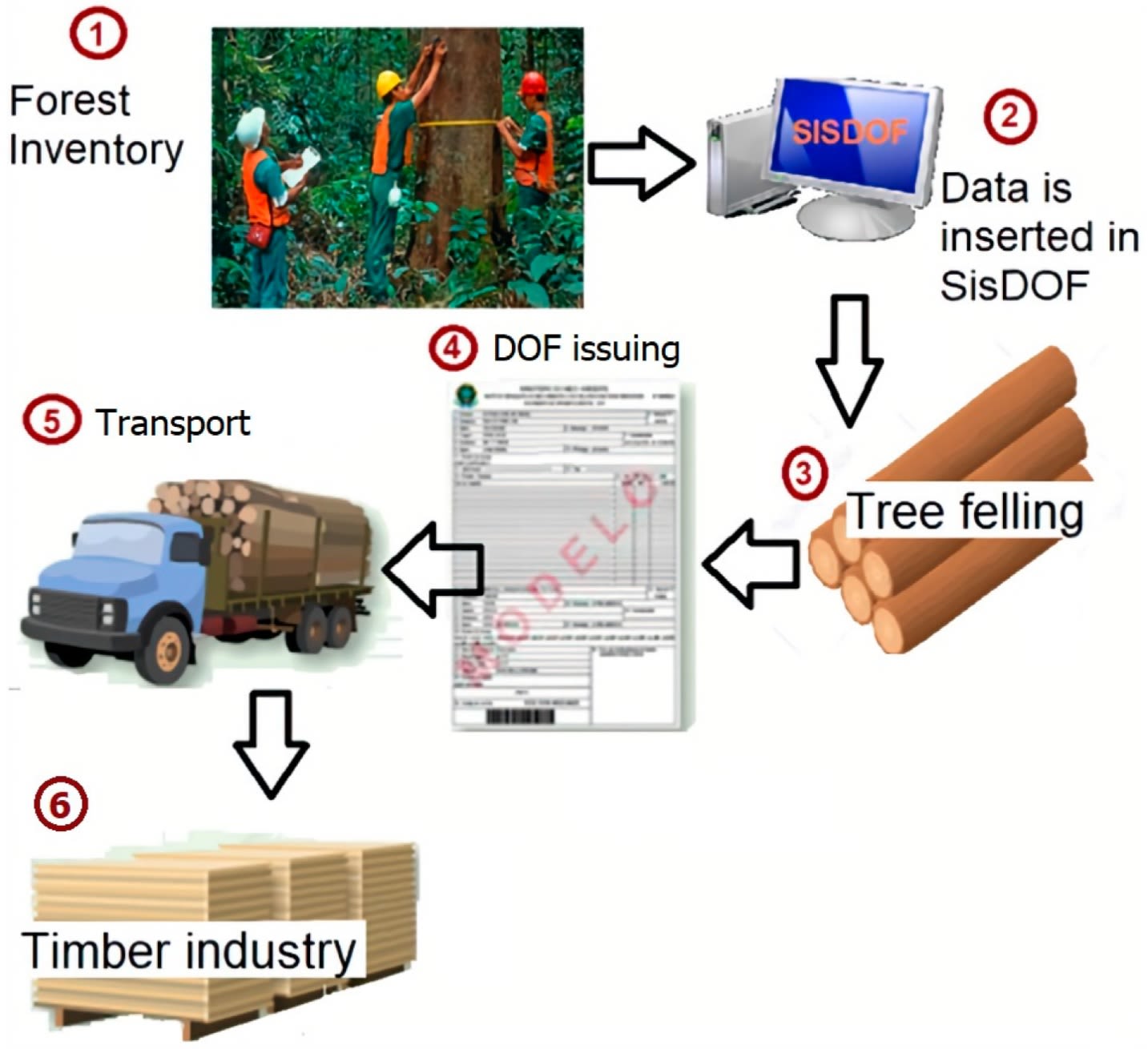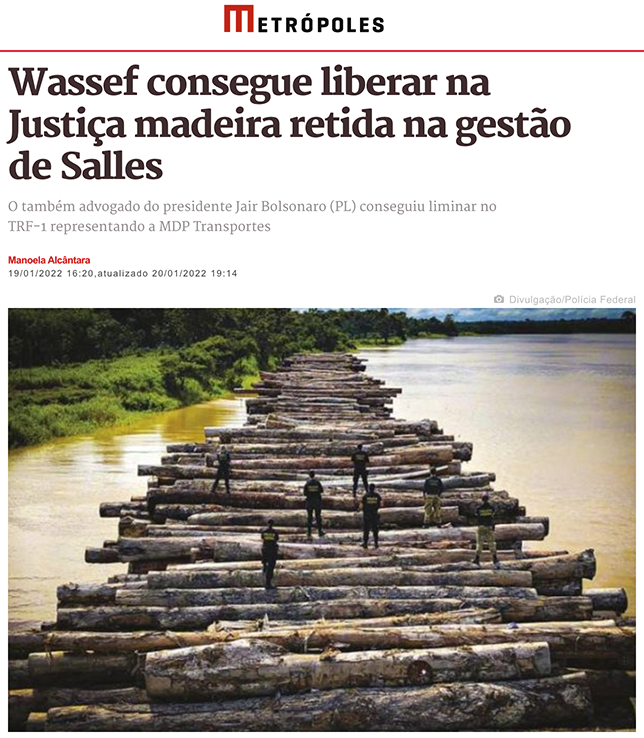The Fixers
How a failing US law allowed a Brazilian flooring giant to flood America with millions of dollars of suspect wood

Key Findings
- From the unique Atlantic Forest to the Amazon, Earthsight and Mongabay's year-long investigation reveals how exotic wood flooring linked to illegal logging, from a firm embroiled in multiple corruption cases in Brazilian courts, has been pouring into the US over the last five years.
- We detail how Indusparquet is charged with using fixers to illegally grease the wheels of its timber supply chains, how it has sourced wood from indigenous lands and from suppliers fined millions for illegal practices to make its products.
- The Brazilian firm's flooring has been sold by retailers all over the US, including major home store chains. One US firm was able to buy suspect wood despite having its purchases closely monitored by US authorities.
- The findings show a US law meant to prevent imports of stolen wood is failing and highlight the urgent need for further action to halt imports of 'forest risk commodities' from countries like Brazil
- Read the full list of key findings.
- Read Earthsight's recommendations.

The Fixer in Paraná

"We have already agreed. He will saw the wood, we just need you to sort things out."
"We had done some business with bracatinga [...] By request of a client in the United States who liked the wood, we went after buying more bracatinga."
A match made by God
These were hectic days for the residents of União da Vitória, a small town nestled in the Atlantic Forest, in Paraná in Brazil's south. It was September 2016 and municipal elections were scheduled to take place the following month. Like everywhere else in this South American country during this period, meetings between candidates and their supporters were part of the daily routine for many of its inhabitants.
As a politically active citizen, in his downtime from his day job as the regional head of the Paraná Environmental Institute, an agency tasked with licensing forest enterprises and handing out logging permits, André Aleixo was busy attending rallies promoted by his favoured candidate. What he probably didn't expect was that at one of these events, after a long day of work, he would meet Luiz Roberto Granatyr, the owner of a local sawmill. For him, it was one of those amazing coincidences or, in his words, proof of "how God does the right thing"1 by bringing to his door someone he was desperate to meet.
In a call involving the two that must have taken place soon after they shook hands and introduced themselves, Aleixo's excitement at meeting Granatyr is obvious. We know this because unbeknownst to the two men, the phone call was being tapped.
While a group of investigators from the public prosecutor's office in the nearby town of Guarapuava were looking for evidence of wrongdoing by public officials involving environmental licensing in Paraná2, they stumbled on something even darker: a suspected corruption scheme involving Aleixo and José Antonio Baggio, one of the owners of Brazil's largest flooring company, Indusparquet.
This first wiretap recorded a conversation that commenced at precisely 6.23pm on 26 September 2016 and connected Aleixo (and Granatyr who was with him) to an individual known as 'Sandro'. As the transcripts included in the two lawsuits later filed by Paraná's Prosecutor's Office suggest, the tone of the call was friendly and hints that a previous conversation may have already taken place between Aleixo and Sandro.
Court documents identify 'Sandro' as a person named Alessandro Faria, the manager of Masterpiso (also registered under the name of Compensados Império), an Indusparquet subsidiary based in the state of Paraná.
The matter under discussion that day was the purchase of bracatinga wood for an 'American client.'
Baggio, as Faria explained, was "a bit desperate" to get 250 cubic metres of bracatinga wood, a species endemic to the particular part of the Atlantic Forest where Aleixo was based, that he wanted delivered immediately.
Holding Faria on the line, Aleixo assertively asks Granatyr, who seemed to be in the same room as him: "Are you able to work if I can find the wood?"
Baggio, as Faria explained, was "a bit desperate" to get 250 cubic metres of bracatinga wood, a species endemic to the Atlantic Forest
Aleixo then turned back to Sandro to confirm that Granatyr had experience of working with bracatinga wood and explained that Granatyr wished for 700 Reais per cubic metre. Aleixo then said: "Actually, I was going to suggest 700 to see if he [Baggio] paid me a small commission, right?" and laughed.
Sandro suggested Aleixo should be more ambitious and charge 750 or 800 Reais so he could have his commission 'guaranteed.' Sandro explained that the sawn wood would be transported to Indusparquet's facilities, where flooring would be produced from it before being exported. They also discussed the production of bracatinga wood laminate, an indication this could be just the beginning of a promising business partnership.
Aleixo asked Granatyr if he had experience with producing laminates and while confirming he did, he told both Granatyr and Sandro he would help to finance Granatyr's sawmill and work as his partner on the production.
Aleixo said: "I'll make a partnership here with Luiz [Granatyr] and join his company".
Aleixo ended the call praising "God's will" for having had the opportunity to meet Granatyr out of the blue.
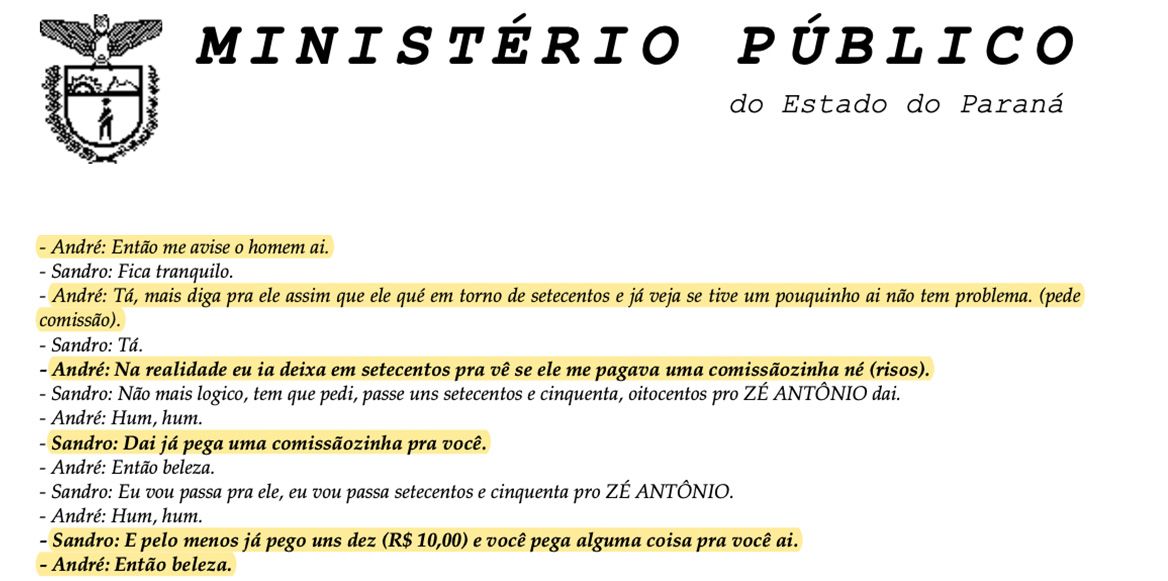
Snippet of the court document detailing a conversation between André Aleixo and Alessandro Fraria. Source: Paraná State Justice
Snippet of the court document detailing a conversation between André Aleixo and Alessandro Fraria. Source: Paraná State Justice
When the basic parameters of the deal had been discussed, Faria told Aleixo that Baggio himself would take over the negotiations from then on.
It did not take more than a few minutes. At 6.41pm on the same day, 26 September 2016, less than 20 minutes after the call with Faria, Baggio called Aleixo's mobile phone and was greeted as "my friend", an indication again that this may not have been the first conversation between these two men.
The man on the call, José Antonio Baggio, was none other than the co-founder of Indusparquet, veteran of the Brazilian timber industry of more than four decades. As teenagers, Baggio and his partner, cousin Luis Francisco "Kiko" Uliana would reportedly make parquet flooring in the week and install it for clients on the weekends.3 Since they founded the company in the 70s they had built relationships with a wide network of suppliers in Brazil4, with Baggio playing the primary role in handling wood purchases.5 It seemed clear that despite the company's considerable workforce (reportedly around 500 employees), Baggio was not above taking a personal hand in the running of his business, even at the lowest levels.
Aleixo was eager to brief Baggio about his meeting with Granatyr, but soon realised that it was neither fortuitous circumstance nor the will of the almighty that had put the sawmill owner in his path. In fact, it was Baggio himself who suggested that Granatyr should seek out Aleixo at the rally earlier that month. This wasn't a match made by God, it turned out, but one made by an experienced timber trader in the regular course of his business.
"I asked him [Granatyr] to speak to you," Baggio told Aleixo. Baggio then explained "We have already agreed. He will saw the wood, we just need you to sort things out."
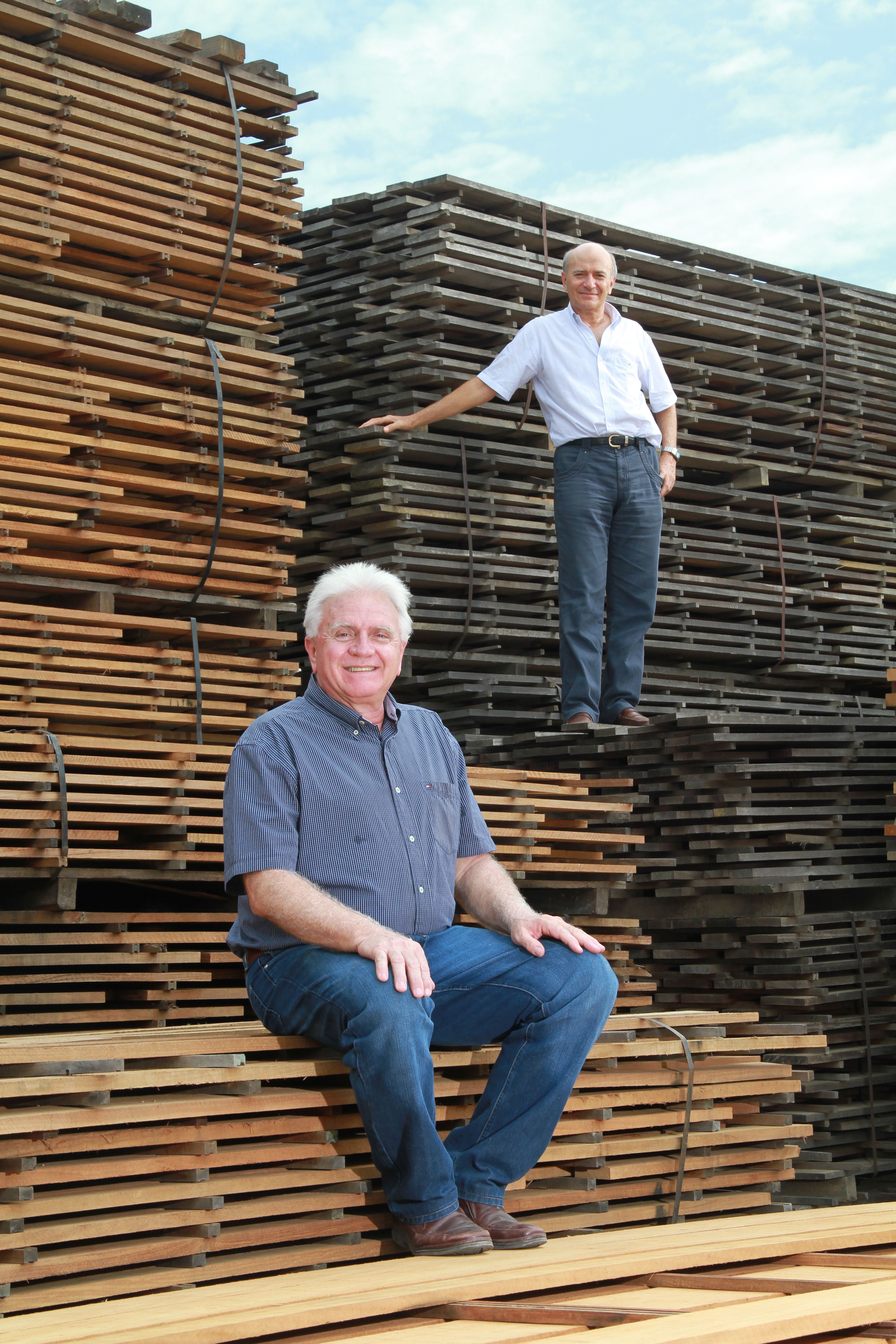
Indusparquet founders Luiz Francisco "Kiko" Uliana (right) and Jose Baggio (left). Source: Julio Vilela
Indusparquet founders Luiz Francisco "Kiko" Uliana (right) and Jose Baggio (left). Source: Julio Vilela
Prosecutor Juliana Mitsue Botomé asserts that to "sort things out" meant that Aleixo's role would be to identify rural producers of bracatinga in the region, who would need logging permits to cut the wood. And at the time, these permits just happened to be handed out to loggers by the very same agency Aleixo had a leading role at.6
Why else would Baggio tell Granatyr to look for the defendant André Aleixo? According to Botomé, "Obviously because the defendant José Antonio Baggio had full confidence that the defendant André Luis Aleixo had the necessary tools and knowledge to facilitate the acquisition of the wood, which could only be justified on the grounds of the public office he held".7
Another clue that using his position to sort out the required permits was expected to be Aleixo's role comes later in the conversation between Baggio and Aleixo. Aleixo tells Baggio that if Granatyr's challenge was to get the wood, he could help find someone producing bracatinga. Baggio had no time to lose and took it as a done deal.





Wire-tapped calls
After being tipped off about the court case that resulted from the sting by an anonymous source, Earthsight and Mongabay secured access to and analysed in detail more than four hours of footage, detailed witness testimony and timber transport documents from the court hearings in the civil case, plus additional transport documents obtained through freedom of information requests. This has allowed us to gain unprecedented insight into the negotiations between Indusparquet and one of its local suppliers, revealed here for the first time.
During the 43-day period between 26 September and 8 November 2016, dozens more conversations were intercepted revealing the progress of negotiations between defendants Aleixo, Baggio, Granatyr and Alexandre Puzyna, an individual brought into the scheme by Aleixo to act as an intermediary in the negotiations.
More than 30 extracts from these tapped calls would eventually be included in two cases – one civil and one criminal – filed by the state prosecutor as part of the corruption allegations. In the civil lawsuit, Aleixo, Baggio, Granatyr and Puzyna were charged with administrative improbity, defined as wilful and conscious action perpetrated by a public agent or benefiting non-public agents.8
The prosecutor also calls for Indusparquet and Granatyr to be punished under provisions of Brazil's anti-bribery law, the so-called Clean Company Act
The civil case was filed under sections of a law9 on public civil actions targeted at violations of collective interests such as the environment, consumers or cultural heritage and sections of the Brazilian Administrative Improbity Law which regulates10 the illicit enrichment of public officials. The prosecutor also calls for Indusparquet and Granatyr to be punished under provisions of Brazil's anti-bribery law, the so-called Clean Company Act.11
The criminal case meanwhile had all the elements of a classic bribery lawsuit. Aleixo was charged with illicit enrichment while in public office and Baggio was charged with offering a kickback to a public official in return for privileged information on wood suppliers with the right permits to supply it.12 Puzyna and Granatyr were also charged for their role in the alleged scheme.
In the criminal case, Baggio, Puzyna, Granatyr and Aleixo were all acquitted at first instance, and the decision was upheld following a ruling in August 2022. However, prosecutors say the case is not yet over, since they are currently seeking avenues for a further appeal. A civil case against him and his company remains ongoing. As detailed throughout this chapter, the hours of recorded telephone conversations were relied on in both the criminal and civil Paraná cases relating to the same alleged corruption scheme.
Although Alessandro 'Sandro' Faria, who set up the initial connection between Aleixo and Baggio, wasn't charged, he is intricately connected to the Indusparquet family as the son-in-law of Kiko Uliana, Baggio's cousin, and the other founder of Indusparquet. There is no suggestion that 'Sandro' had knowledge of any alleged corrupt scheme.
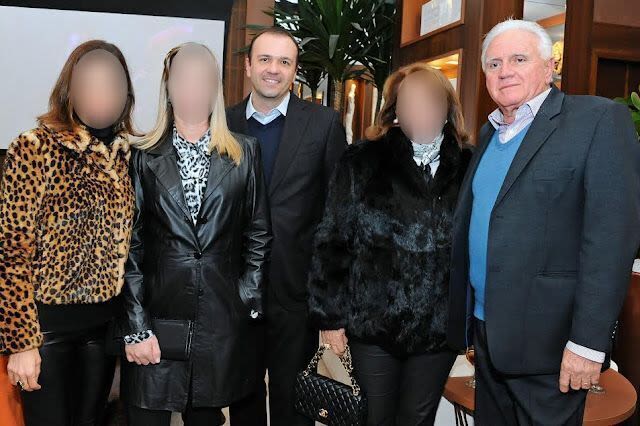
Alessandro Faria (middle) and Indusparquet co-owner Luiz Francisco Uliana (far right) promoting Masterpiso Engineered Floor in an event in Curitiba. Source: Raquel Lima
Alessandro Faria (middle) and Indusparquet co-owner Luiz Francisco Uliana (far right) promoting Masterpiso Engineered Floor in an event in Curitiba. Source: Raquel Lima
Baggio was recorded speaking to Aleixo twice by investigators, but his name is mentioned several times in the evidence filed by the Prosecutor, not only by Aleixo but also by the sawmill owner Granatyr, who became Baggio's main point of contact during the negotiations.
On October 7th 2016, for example, the sawmill owner tells Aleixo: "They are in a hurry, this week alone they called me three times. […] I told Zé Antonio [Baggio] that they can close a deal."13
A few weeks later, on October 25, Granatyr tells Aleixo that he was expecting to receive another call from Baggio, who was worried about the deadline for the lumber delivery: "Zé Antonio [Baggio] will certainly call me today… they had called me last Thursday."14
"Of course, this is logical. You can work as our representative in the region, because I hope we sell a lot of this wood"
In both the criminal and civil lawsuits, prosecutor Botomé asserts that Aleixo committed himself to guaranteeing the supply of wood for the sawmill for a commission, wood that would later be sold to Indusparquet.
According to the Public Prosecutor of Paraná's civil case, the payment of a 'commission' was requested and promised as part of the negotiations. In the call with Faria, as mentioned earlier, while discussing the price of wood, Aleixo had asked if he would be paid for his service. However, the promise was not just about a commission, but something even bigger.
The wiretaps revealed that Baggio also suggested that Aleixo could work as his agent in the region. In a conversation recorded on 29 September 2016, at 8.46am, after Aleixo's request for an email detailing his commission, Baggio replied, "Of course, this is logical. You can work as our representative in the region, because I hope we sell a lot of this wood".15
Pulling out all the stops
The investigation indicates that to meet timber giant Indusparquet's demand, Aleixo was ready to risk committing potentially illegal acts. He was the regional head of the environmental office in União da Vitória, an agency responsible for handing out forest permits and could not use this to benefit private interests. Intermediating in the commercial negotiations between lumber companies for a fee would be a conflict of interest. This might explain why Aleixo decided to bring Alexandre Puzyna into the talks.
The probe suggests that Puzyna was tasked with buying and transporting the wood from the rural producer to Granatyr's sawmill, while Aleixo would act behind the scenes, seemingly to avoid the risk of being discovered. At least, that is what he may have hoped.
On September 28 2016, Aleixo tells Granatyr: "Let's do the following, even if you find the guy who has the authorisation [logging permit], let's pass it on to Puzyna, I prefer that each one takes care of his own line."16
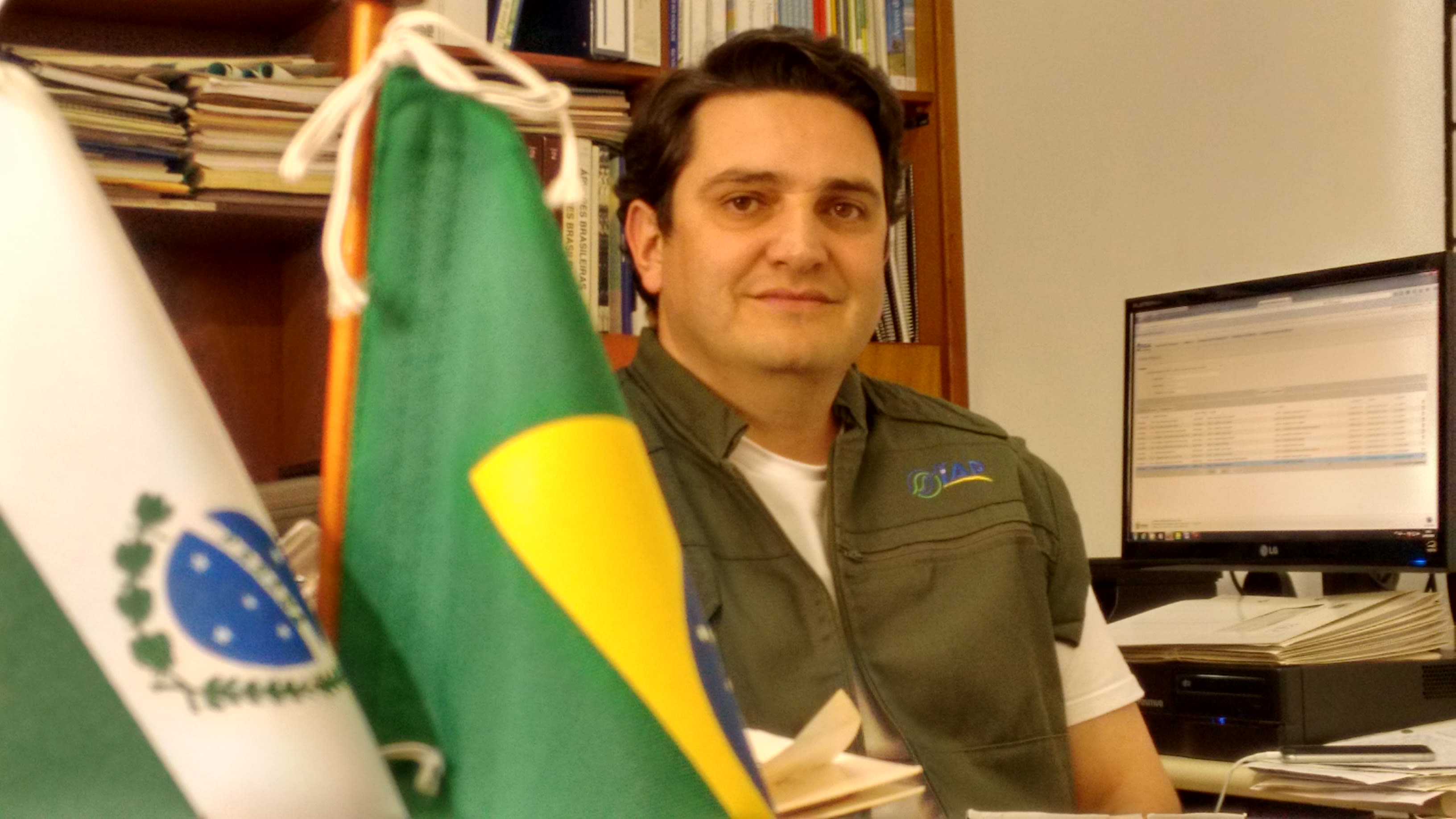
André Aleixo in 2016, when head of IAP regional office in União da Vitória. Source: Marciel Borges
André Aleixo in 2016, when head of IAP regional office in União da Vitória. Source: Marciel Borges
Aleixo had another major problem to be solved: obtaining the right authorisation for Granatyr's sawmill to receive and process the bracatinga. Although he did not have access to Sinaflor, Ibama's electronic system that monitors the exploitation and trade of timber, the wiretaps identified conversations that indicated that Aleixo was asking his co-workers to help him cut the red tape involved with obtaining the permit.
On one occasion, Aleixo even travelled with some documents to Curitiba, Paraná's capital, where the Environmental Institute's headquarters are located. On October 25 he tells Granatyr. "I am going to Curitiba tomorrow. […] I'll ask [him] to do it tomorrow, because now it's all done in Curitiba, so I'll be there tomorrow and then he'll get it fixed."17,18
While still waiting for the permit that would allow Granatyr to store and process bracatinga wood, the group contacted a rural producer in the region through a connection from Aleixo. The attempt, however, was fruitless, as investigations reveal. They concluded that the timber this contact could provide wasn't thick enough to be sawn. The trees were just too young.
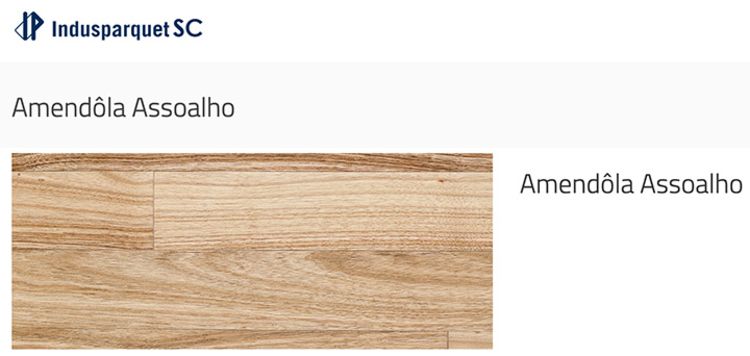
Indusparquet's Brazilian website features flooring made with bracatinga (also known as Amendôla). Source: Indusparquet SC
Indusparquet's Brazilian website features flooring made with bracatinga (also known as Amendôla). Source: Indusparquet SC
The problem of a permit for Granatyr's mill was finally resolved in early November and, a few days later, they managed to find another rural producer who was ready to sell them bracatinga.
Despite seemingly trying to keep a low profile in the negotiations, Aleixo was up to his neck in discussions about how the timber would be sourced and transported, even using his own office during working hours to meet with Puzyna and Granatyr and discuss the deal, the evidence suggests. He had travelled to Curitiba in an apparent attempt to help Granatyr’s sawmill get the right permits. On one occasion, he was even recorded asking for details about the lorry used to get the wood to Granatyr’s sawmill. “Do you have the lorry’s plate [license plate]?”, he asks Puzyna on 07 November 2016.
Meanwhile an anxious Baggio continued to push for the process to be speeded up.
"He needs it because the timber he has there is not enough for him to do what was agreed with his client. He is worried."
In a conversation between Granatyr and Aleixo the following day, Granatyr said, "Zé Antonio [Baggio] called me, it was not even eight o'clock, to give you an idea [...] He needs it because the timber he has there is not enough for him to do what was agreed with his client. He is worried."19
This was, in fact, one of the last conversations that investigators intercepted.
To learn whether Indusparquet was able to seal the deal, Earthsight and Mongabay obtained the receipts and DOFs20 (timber transport permits) issued to both the rural producer and the company that transported the timber through an information request. They reveal that the coveted bracatinga logs finally reached Granatyr's mill on December 2nd 2016.21
Five shipments then left Granatyr's sawmill for Indusparquet's headquarters in Tietê, São Paulo. They took place between December 2016 and March 2017 and totalled 35.64 cubic metres, a much smaller volume than the original 250 cubic metres discussed in the talks recorded in September that year.22
It is unclear how Baggio or Indusparquet felt about such a long and confusing negotiation. What was clear however is that by now, far from a match made in heaven, what was hoped to be a simple deal had not only failed to deliver all the goods, but had dragged, and would continue to drag, everyone concerned through hell.
From the horse's mouth
Baggio, in testimony given in 2017 during the civil proceedings, at first maintained that he did not remember any conversation with Granatyr and did not know and had never heard of anyone named Aleixo. However, just last year on 5 November 2021, something appears to have changed his mind and he was finally persuaded to appear in court to give a rather different account.
Regarding contact with Aleixo, Baggio admitted he had indeed called him asking for bracatinga and offering him the role of 'regional buyer,' contradicting his 2017 testimony. He claimed they stopped talking a few days later when he realised that no-one in the sector knew Aleixo. Baggio categorically denied knowing that Aleixo was a civil servant.
"We know very well, we have dealt with Ibama for a long time now, we follow the rules, a civil servant can never do that. We were ignorant of the fact he was a civil servant."23
Contradicting the 2016 wiretaps which indicated that Baggio had asked Granatyr to seek out Aleixo, Baggio testified that he did not know that Aleixo and Granatyr were even working together.
"I spoke with Luiz [Granatyr] to send me timber but I was not aware of the connection between the two of them."24
Curiously, no-one in the company seems to have done a simple internet search for Aleixo's name. Several websites carry information about Aleixo's appointment as head of the local environmental agency
He even tried to claim that the purchases of wood from Granatyr had taken place a few months before he talked to Aleixo, contradicting not only the recordings but also DOFs and receipts issued for the shipments of bracatinga from Granatyr to Indusparquet, dated from December 2016 to March 2017, after the wiretaps between Baggio and Aleixo discussing the deal.25
At the remote hearing that happened by video call in November 2021, Baggio appeared relaxed and comfortable. He informed the hearing that his company was planning to expand operations in Paraná: "We're going to open a factory now in Irati, which seems to be Judge Emerson’s hometown26, isn't it?"
The Judge confirmed this by nodding his head and a thumbs up. That Baggio should know where the Judge grew up is unremarkable. That he should mention Indusparquet's investment in that town during the proceedings raises obvious questions about what the defendant may have been trying to achieve by referring to his company's expansion in this context.
There is no suggestion that this exchange indicates any inappropriate relationship or corrupt influence of Judge Spak by Baggio and Indusparquet rejects any such insinuation as "absurd".
The long delays in the case seemed to be part of Baggio's defence team's plan, engineered so that the statute of limitations would expire. They persuaded Indusparquet employees and three of its suppliers to testify in Baggio's favour but the time taken to locate them from different states and elicit their statements prolonged the hearings even further.
Apart from the long delays, the strategy devised by the company's defence team in the civil case appeared to be centred on three points: highlighting how customary it is to ask for a commission in timber transactions; the informality with which Baggio is known and treated by Indusparquet's suppliers and finally, the fact that the company was unaware that Aleixo worked for the Paraná environmental agency.
This last point, in fact, was a topic exhaustively addressed by the witnesses, who emphasised how Indusparquet had tried to find out more about Aleixo. Curiously, no one in the company seems to have done a simple internet search for Aleixo's name. Several websites carry information about Aleixo's appointment as head of the local environmental agency and some of the activities he took part in while in office.27
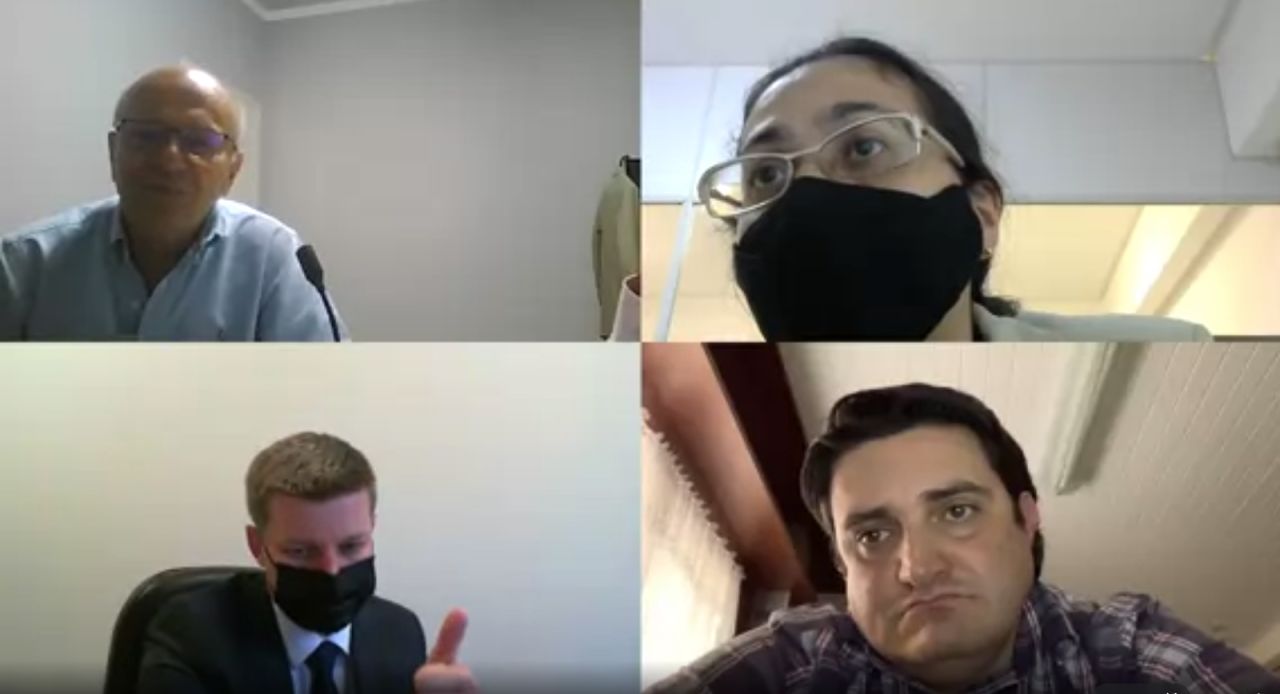
Baggio's hearing. Pictured are (clockwise from top left) Baggio, prosecutor Botomé, Aleixo, and judge Emerson. Source: Paraná State Justice
Baggio's hearing. Pictured are (clockwise from top left) Baggio, prosecutor Botomé, Aleixo, and judge Emerson. Source: Paraná State Justice
Three of the witnesses called by the defence to testify were loyal timber traders who have worked with Indusparquet for decades, according to their own account. All three uncannily parroted the same narrative, in the same sequence, a strong indication they may have been coached.
The timber traders claimed:
1. Baggio had contacted them asking if they were able to supply bracatinga timber
2. They all said they did not work with this wood

3. Sometime later, Baggio made contact again, this time to ask if they were acquainted with someone by the name of André Aleixo
4. They all said no, but offered to contact other timber traders and ask about Aleixo

5. They spoke once more after this, when they said that nobody had ever heard of this name before.28,29

The statements also tried to play down some of the other details highlighted by the lawsuits. They said that Baggio, despite being one of the owners of the largest flooring manufacturers in the country, was very accessible to all suppliers and spoke to them directly, usually being called "my boss" or "my friend".30
Meanwhile the three Indusparquet employees were eager to defend their boss. They all stated how common it is to discuss a commission on the first phone call, and repeated almost verbatim descriptions about how each of them received up to 30 calls a day from prospective suppliers, a very specific number which is another clue that they may have been coached with some guidelines moments before their hearings.31
Two and a half years had passed since Indusparquet's defence first made a request to call these witnesses in 2018, many located out of town – creating more legal complications – and the interrogation of the final witness, who testified in early 2021.
BRAZIL'S ATLANTIC FOREST: PROTECTING WHAT'S LEFT
"Brazil is seen as a huge Amazônia," environmentalist Mario Mantovani told Earthsight and Mongabay.
But along Brazil's south coast and inland areas, the Atlantic Forest, or Mata Atlântica, has become one of the country's most threatened forests.
Click here to read more
On the defendants' side,39 Aleixo denied asking for a commission or working as a consultant for Granatyr even though dialogues recorded by the investigators suggest the exact opposite. He claimed that he had planned to leave the environmental agency in early 2017, although this is irrelevant since the negotiations occurred while he was still in office. He stated he had decided to contact Indusparquet's subsidiary as part of an exercise of what he might do next.
He denied using his position to speed up the granting of the permit to store and process bracatinga wood at Granatyr's timber yard and explained that he decided to exit negotiations when he realised that Baggio was demanding a huge amount of wood to be delivered while he was still in office, contradicting evidence from the wiretaps.
In the civil case, Indusparquet's apparent efforts to delay the process seem to have borne fruit, as a judge sought to dismiss the case in May 2022 on the basis that the statute of limitations had passed. Prosecutors have appealed this decision. The case is ongoing.
Baggio still has a prominent role at Indusparquet
In the criminal case, judge Emerson Spak absolved Baggio, Aleixo, Puzyna and Granatyr of all corruption charges. He stated that the advantage promised (commission) was merely intended to remunerate Aleixo for a lawful service rendered in the context of private relations with Indusparquet and did not constitute a wrongful act.
Prosecutor Botomé appealed the decision, saying it violated commonly understood definitions of illicit enrichment by the Federal Supreme Court40 and that Aleixo's parallel activities were incompatible with his status as a public official.
In August 2022 her appeal was dismissed by the judges of the second criminal court in Paraná by unanimous vote. They said there was not enough evidence to prove a causal link between the advantage offered to Aleixo and the provision of privileged information to Baggio by him. However, sources in the prosecutor's office in Paraná, that Earthsight and Mongabay spoke to, say the case is not yet over, since they are currently seeking avenues for a further appeal.
Aleixo was removed from office in early 2017 following unrelated corruption allegations
In response to our allegations, Indusparquet states that Mr Baggio was cleared both in the trial court and court of appeal for the criminal lawsuit, and that the court of appeal ruling of the first instance, i.e. that of Judge Spak, was confirmed by a unanimous decision. Further, Indusparquet states that the court recordings "simply confirm a regular negotiation, with common language and tone, where prices, measures and sales commissions are discussed." They said that at no point did Aleixo identify himself as a public official and that Baggio and Faria only became aware of his position subsequently.
Aleixo, approached for comment, told Earthsight and Mongabay that the allegations of the Public Prosecutor's Office were "unfounded" and "cannot succeed." He stated that he had been cleared of criminal charges, a decision that was upheld on appeal, and that the civil case was dismissed in the first instance. With regard to the judicial decisions, he stated that we should "move forward, with the direction and provision of God."
Puzyna told Earthsight and Mongabay that he had not purchased and did not transport any bracatinga logs to Granatyr's sawmill. He pointed to the fact that the receipts and timber transport permits (DOFs) did not mention his name anywhere as proof of this. He stated that the public prosecutor's office had mistakenly filed a criminal complaint that was ruled totally unfounded by the judge in the first degree (Spak) and that this decision was upheld on appeal.
Earthsight and Mongabay spoke to local experts about the broader context of the Paraná cases in Summer 2022, and the situation with enforcement relating to logging and timber licensing in the area's forests. Mario Mantovani, head of an NGO that works to protect the Atlantic Forest, SOS Mata Atlântica, said in a phone interview that Paraná had "lost total control" over environmental enforcement. According to him, the region around União da Vitória – where the activity in the cases took place, has the highest deforestation rate in the state. "And what they did was dismantle the environmental agency… No more supervision. There is nothing else."
We spoke to Renato Morgado from Transparency International Brazil, who told us of the difficulty of prosecuting corruption cases in Brazil. As seen earlier, the lengthy time required to interview various witnesses in the Paraná civil case led to its dismissal on the grounds that the limitations period had lapsed. In October 2021, Brazil enacted changes to reduce the period of limitations for administrative improbity from eight to four years. Without that retrograde change, the civil case would have been able to freely run its course.
Referring to these changes, Morgado said, "What we are actually experiencing is a time of setbacks in the legal and institutional anti-corruption framework. This is happening very quickly. These setbacks clearly give a signal that corruption will be tolerated and not punished. This makes private and public agents more willing to commit acts of corruption."
In the meantime, life goes on in Brazil. Baggio still has a prominent role at Indusparquet and was recently giving interviews about the value of certification and the importance of tracking the origins of timber.41
Aleixo, who was removed from office in early 2017 following unrelated corruption allegations42, was invited to work for the state government again, this time as regional head of Paraná Secretariat of Justice, Family and Work.43 He spent almost two years in this role before leaving it and now has an office in União da Vitória, where he works as a self-employed lawyer defending – among other clients – those charged with environmental crimes.44
Our Man in São Paulo

Bribes in Bauru
Despite a long week at the office, Markus Otto Zerza, an analyst at Brazil's environmental agency, Ibama, was in a playful mood as he answered emails late one Saturday afternoon.45
The 56-year-old had worked at Ibama for more than a decade, most recently for the federal agency's Advanced Unit in Bauru, a city in the southeastern state of São Paulo. The work was not glamorous. But it earned Zerza a decent salary46, enough to keep him and his wife Marisa, a nurse one year his senior, and their son in their house in a residential neighbourhood in Bauru.
Yet Zerza wanted more. That evening, in a breezy message from one of his two personal email accounts47, he sought a little extra work, and shared Marisa's bank details with someone.
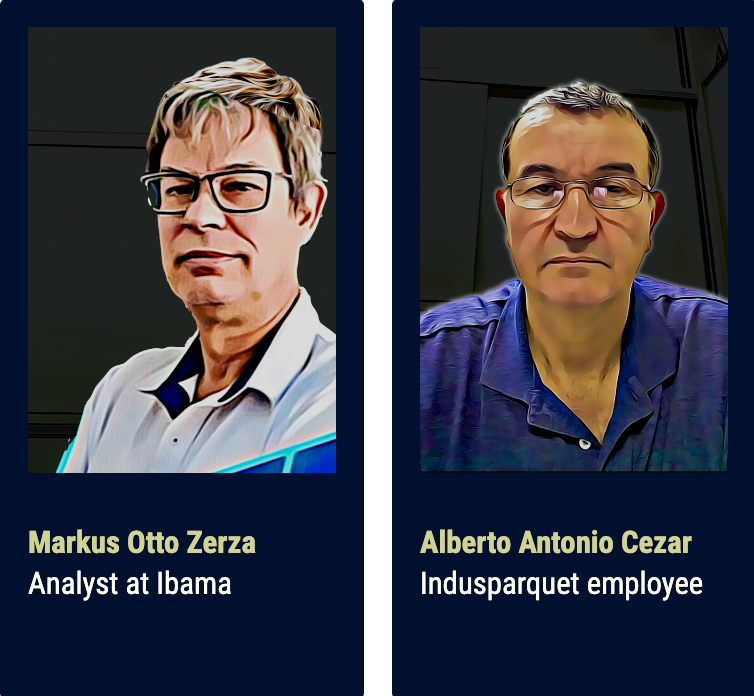
"See if you write down this address in your diary..." he wrote in the email, sent at 7.15pm local time on 29 March 2014, "you will use it a lot yet... hahahahahaahah [sic]"48
So it proved. The email he sent was to Alberto Antonio Cezar, a long-term employee at Brazil's largest flooring company Indusparquet, with connections to the firm's owners, as court records reveal.
With his man inside the Ibama system, Cezar, who is 6449, could rig the market in his paymaster's favour. Zerza, who later admitted to receiving bribes from Cezar, played this role with relish. Together the pair embarked on what is alleged to be a lucrative and highly illegal scheme which lasted for many years and embroiled Indusparquet and a tight cartel of business partners in its web.
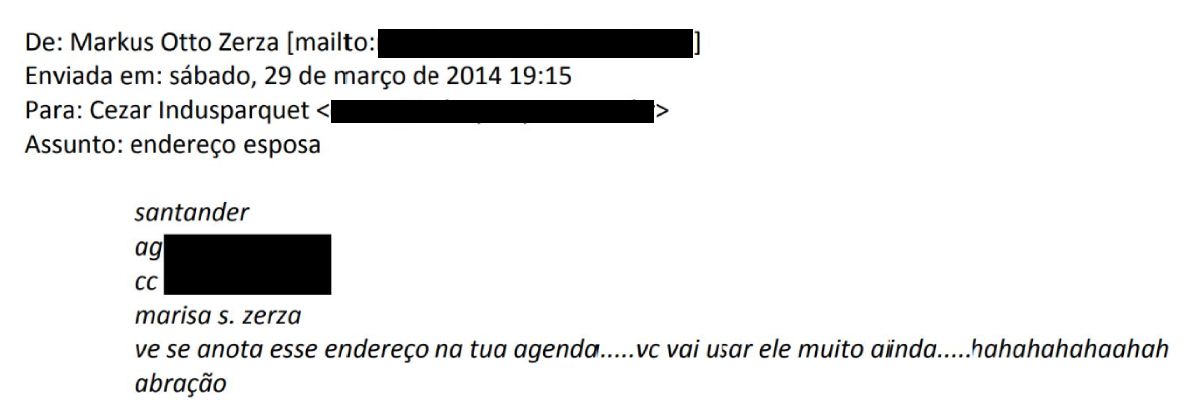
Zerza shared his wife's bank account details with Cezar in an email on 29 March 2014, joking that the Indusparquet employee would use them "a lot". Source: Federal Prosecutor's Office - São Paulo
Zerza shared his wife's bank account details with Cezar in an email on 29 March 2014, joking that the Indusparquet employee would use them "a lot". Source: Federal Prosecutor's Office - São Paulo
Documents unearthed by Earthsight and the environmental news website Mongabay including court files, police reports and email transcripts, contain evidence of Indusparquet's deep complicity in the allegedly corrupt dealings.
They expose how the firm profited handsomely from illegally bypassing rules meant to protect climate-critical forests.
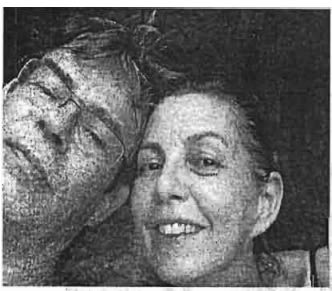
Photo of Markus Otto Zerza and wife Marisa in a Federal Police file obtained by Earthsight and Mongabay. Source: Federal Police / Federal Prosecutor's Office - São Paulo
Photo of Markus Otto Zerza and wife Marisa in a Federal Police file obtained by Earthsight and Mongabay. Source: Federal Police / Federal Prosecutor's Office - São Paulo
Cezar flooded the Ibama employee with requests, month after month, year after year. According to the prosecutor's filed statement, between 2014 and 2016 alone, the Ibama official performed at least 988 favours not only for Cezar's company Indusparquet but for many other "partners", including asking that "suspended yards" – timber seized by Zerza's own agency for violations of the rules – be released, or for timber stocks to be added, adjusted or their validity period and other parameters changed.50
The prosecution further directly linked more than 100 of these tasks to emails mentioning the payment of bribes.51,52 Despite the explosive evidence, investigators believe the money trail exposed is just the tip of the iceberg.
Recap
Operation Patio, a crackdown on fraudulent timber practices that had been long prevalent in Brazil, started strongly. Launched in May 2016, the joint investigation by Ibama and the country's Federal Police resulted in what the former described as the largest seizure of "illegal Amazon timber" in São Paulo state's history.
The haul worth $2.5 million came from Indusparquet. Accused of various illegal practices, the flooring giant received fines totalling R$995,762 ($259,030 at the time) and was temporarily banned from trading timber.53,54 Then the political winds changed.
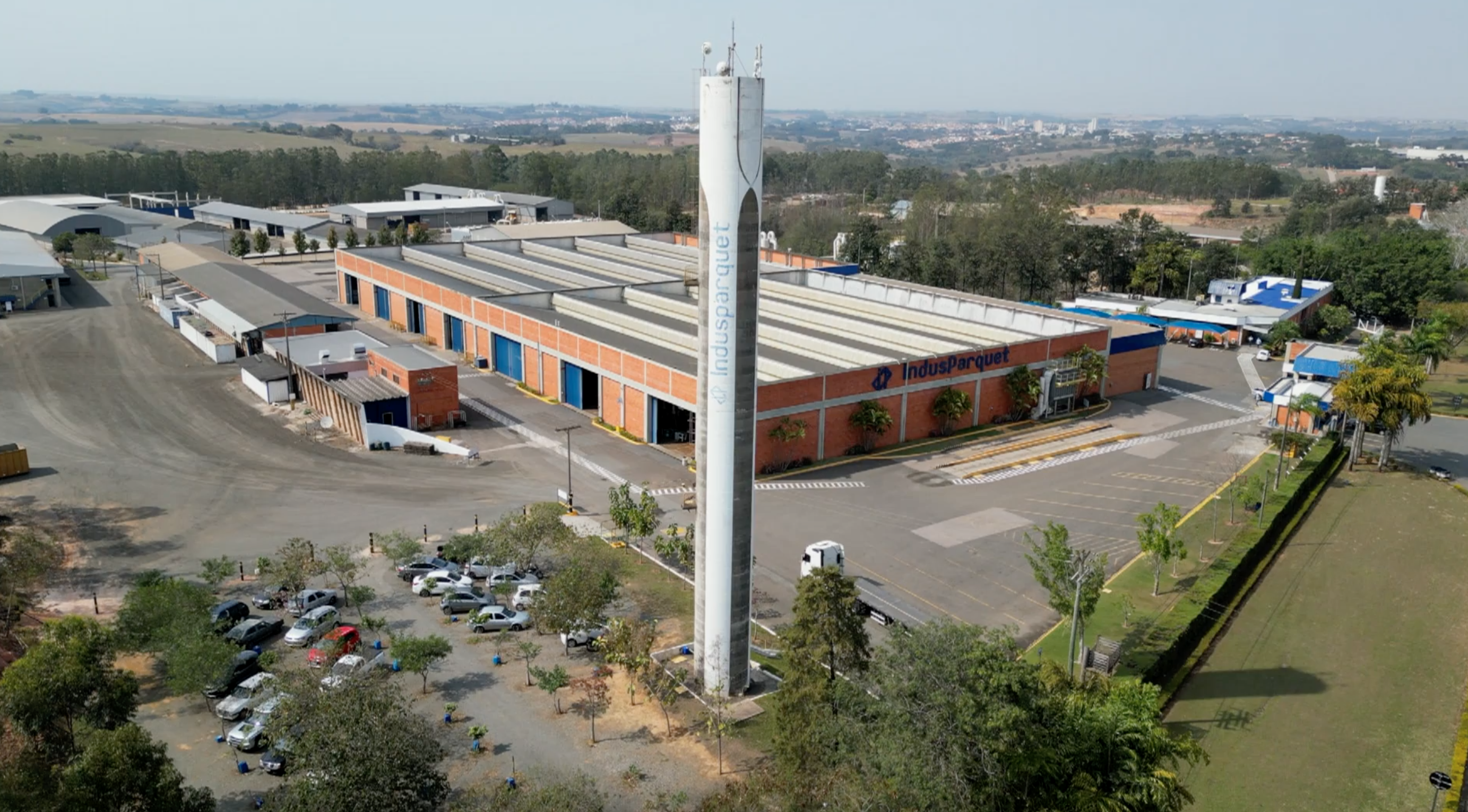
Indusparquet's headquarters in Tietê, São Paulo. Source: Earthsight
Indusparquet's headquarters in Tietê, São Paulo. Source: Earthsight
Earthsight previously reported how Ibama had first prompted Operation Patio by approaching the Federal Police in May 2016 with concerns that an agency employee was engaged in laundering timber.55 The resulting two-year probe took its name from the Portuguese term for the courtyard, or yard, used to store wood.
The Operation not only led to the record seizure in late May 2018, goods that Ibama said had not been accompanied by the necessary permits, but also uncovered an alleged fraud scheme that may have allowed Indusparquet to hide illegally-harvested timber among legal stocks.56
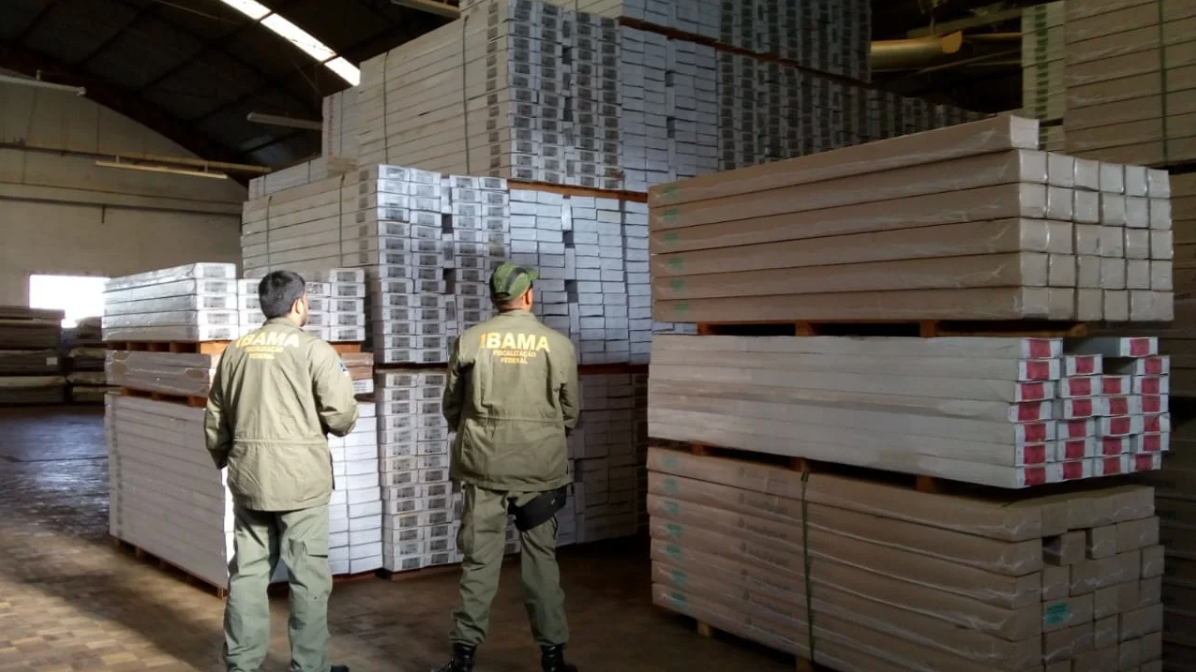
Ibama officials inspect an Indusparquet facility during Operation Patio. Photo: Ibama
Ibama officials inspect an Indusparquet facility during Operation Patio. Photo: Ibama
Ibama's electronic system Sinaflor/SisDOF57 is supposed to keep a close eye on logging and timber trading across Brazil. It operates in a similar way to how money moves between bank accounts, allocating virtual credits to forest concession holders detailing the species and volume of wood authorised to be cut, tokens that pass to whoever buys the goods.
By law, each transaction must be accompanied by a document of origin, or DOF, attesting to the wood's origin and legality. Moving or holding wood without the proper papers or credits is illegal. Given the difficulties of policing its vast forests at source, this system is the country's most important tool for trying to deter illegal logging. It is intended – in theory at least – to prevent illegal wood from being traded and sold, and thereby eliminating any incentive to cut it in the first place.
How Brazil's timber trade is supposed to work. Source: Perazzoni et al., 2020
How Brazil's timber trade is supposed to work. Source: Perazzoni et al., 2020
In the Indusparquet case, Ibama initially reported it had uncovered 10,740 cubic metres of fictitious timber credits – a serious breach of Brazilian law. The flooring giant's main warehouse in Tietê, São Paulo was temporarily banned from trading timber, and more fines followed.
But, as Earthsight later revealed, Indusparquet's largest fine was cancelled and its confiscated timber returned under strange circumstances in June 2019.58 The U-turn, branded "shameful" by Elisabeth Uema, the head of a national association representing environmental civil servants, was one of countless instances of Ibama officials appointed by the administration of president Jair Bolsonaro, who took office in January of that year, apparently undermining efforts to enforce environmental laws.
Indusparquet's largest fine was cancelled and its confiscated timber returned under strange circumstances
However, Indusparquet remained under scrutiny. Elsewhere in the state of São Paulo, a federal prosecutor was connecting the dots between the flooring giant, its man in São Paulo, and his lapdog inside the system.
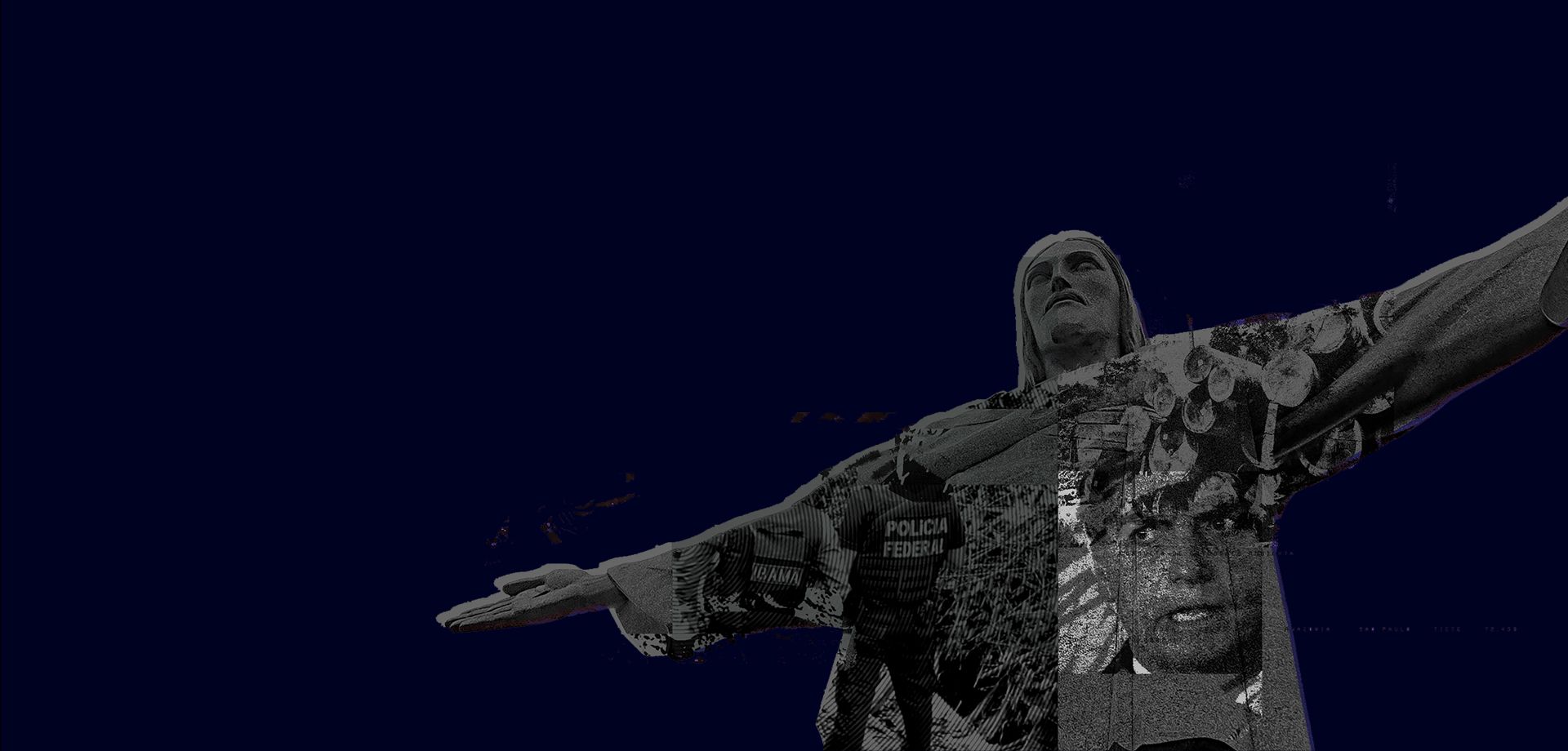
Credit cartel
Federal prosecutor Pedro Antonio de Oliveira Machado eventually filed a civil lawsuit in Bauru in late March 2021 against Indusparquet and six firms that it did business with to follow up on the findings unearthed by Operation Patio.59 Earthsight and Mongabay obtained a copy, together with a cache of court files that show that Zerza and Cezar had indeed been busy.
Listed alongside Indusparquet as co-defendants are the companies Baurupisos, Thais Cristina Teixeira Brasil, Ulimax Esquadrias de Madeira, Indústria Madeireira Uliana, Demarchi & Co, and Faurtil Fábrica de Urnas Tietê (also called Jonacir Amorim).
Prosecutor Machado has also filed criminal charges against Zerza and Cezar for bribery. Both civil and criminal proceedings remain ongoing.

Cezar confirmed he worked for Indusparquet when questioned by police, according to a Federal Prosecutor's Office document obtained by Earthsight and Mongabay. Source: Federal Police / Federal Prosecutor's Office - São Paulo
Cezar confirmed he worked for Indusparquet when questioned by police, according to a Federal Prosecutor's Office document obtained by Earthsight and Mongabay. Source: Federal Police / Federal Prosecutor's Office - São Paulo
Drawing on hundreds of pages of Federal Police records generated under Operation Patio, the prosecution alleges that these firms got Zerza, the Ibama employee, to manipulate the Sinaflor timber credits system "in a totally unlawful manner".60
These documents are central to the prosecution's case. They show the Ibama official requested and received bribes to perform these services from Indusparquet employee Cezar, who was charged with serving as the middleman between the Ibama employee and the companies.
When questioned by police, Cezar confirmed he worked in Indusparquet's purchasing department,61 while court filings allege that he also worked as a kind of fixer, or environmental advisor/consultant for the other defendants.62,63 According to Machado, there is evidence that Cezar specialised in resolving "DOF blocks", or helping timber move through the market.64
Court filings show Cezar also worked as a kind of fixer, or environmental advisor/consultant for the other defendants
Through the Indusparquet staffer, the flooring giant's business partners are charged with having sought to grease the wheels of Ibama's timber credits system to their commercial advantage. Despite his apparent lowly official role, Cezar, with his network of contacts at public bodies65, is charged with acting on Indusparquet's behalf throughout this process – and to its benefit.
Returning seized wood, releasing timber stocks for trade, "adjusting" a company's credits, among other requests – he is alleged to have left his agency's database awash with "false and improper data".66
Ibama identified at least 106 services performed by Zerza between 2014 and 2016 that were "directly related" to emails mentioning bribes
Ibama identified at least 106 services performed by Zerza between 2014 and 2016 that were "directly related" to emails mentioning bribes, according to an internal report contained in the court files and dated 2017.67 Further analysis by the environmental agency revealed "inconsistencies" in all of these records, the report adds.68
As the Ibama report points out, this was probably just the tip of the iceberg, as many more transactions likely took place. Email correspondence became less frequent over the period studied, leading the agency to assume that other means of communication – it cited Skype and the encrypted messaging application WhatsApp – became the go-to tools for conducting business.
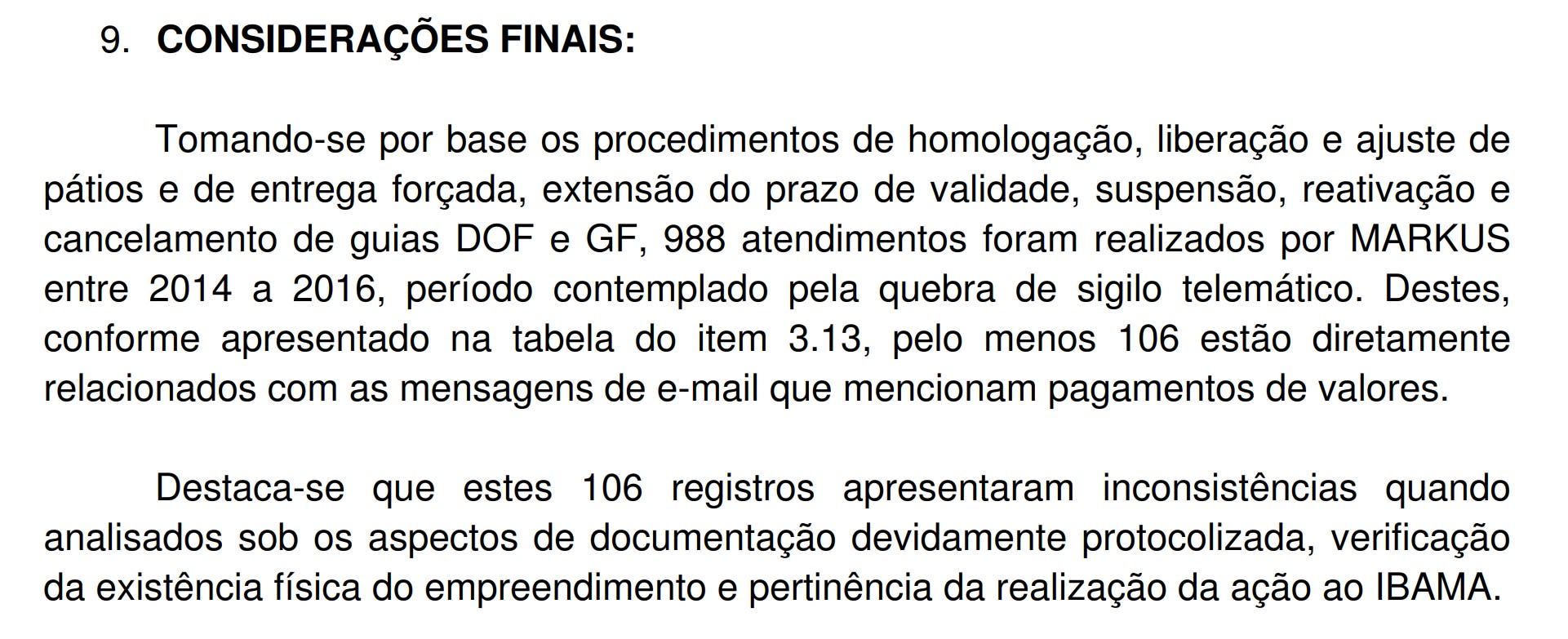
Excerpt from internal Ibama report linking services performed by Zerza between to emails mentioning bribes. Source: Federal Police / Federal Prosecutor's Office - São Paulo
Excerpt from internal Ibama report linking services performed by Zerza between to emails mentioning bribes. Source: Federal Police / Federal Prosecutor's Office - São Paulo
Ibama's report drew on emails the police obtained through a Federal Court order, covering messages sent to and from Zerza's two personal email accounts between 2014 and 2016. It ends on a chilling note.
"In 2017, a period not covered by the breach of telematic confidentiality," it says, "69 more calls were made, showing the same inconsistencies, evidencing the continuity of the modus operandi, which persists to the present date."69
Email logs
After his and Cezar's arrests in late May 2018, the Ibama employee Zerza admitted to police to receiving bribes through his wife's bank account to facilitate the release and manipulation of timber stocks for Indusparquet employee Cezar.70
He also confessed to gaming the system long after he should have lost access to Sinaflor in late September 2014, when management duties passed to São Paulo state's environmental secretariat.71
The emails uncovered by the Federal Police between the two men formed key evidence in its investigations and, later, in the federal prosecutor's lawsuit.
Ibama official Zerza admitted to receiving bribes to facilitate the release and manipulation of timber stocks for Indusparquet's employee
Prosecutor Machado told Earthsight and Mongabay that if the Federal Police had not gained access to the emails they would only have been able to identify that Zerza "made improper entries in the system, but never that he had received a bribe".72
These candid exchanges, informal and sometimes comic, helped the Federal Police identify five small bank transfers totalling R$2,900 (about $540) from Indusparquet's man Cezar to Zerza's wife's account in 2014 and 2015, the lawsuit states. Officers also found 15 larger transfers totalling R$173,945 (about $34,400) from unidentified sources between 2014 and 2017, which are likely linked to the bribe scheme.
In one court file, the federal prosecutor's office said that "dozens" more payments to Marisa’s account have yet to be traced.73

Zerza admitted to police to receiving bribes through his wife Marisa's bank account to facilitate the release and manipulation of timber stocks for Cezar, according to a Federal Police document obtained by Earthsight and Mongabay. Source: Federal Police / Federal Prosecutor's Office - São Paulo
Zerza admitted to police to receiving bribes through his wife Marisa's bank account to facilitate the release and manipulation of timber stocks for Cezar, according to a Federal Police document obtained by Earthsight and Mongabay. Source: Federal Police / Federal Prosecutor's Office - São Paulo
Meanwhile, under investigation, Cezar denied paying the kickbacks – a brazen move, given Zerza's confession, the money trail leading to his door and the breezy email that kicked everything off, the one in which Zerza sent Cezar his wife's bank details and joked "you will use it [the bank account] a lot yet".
A few months after this message, on 25 August 2014, Cezar had forwarded the Ibama employee a message from Ulimax's accounts department in reply. The Ulimax representative had told Cezar they would send over a spreadsheet and what they described as "the application", as well as transferring an agreed sum of R$2,200 (about US$425).74
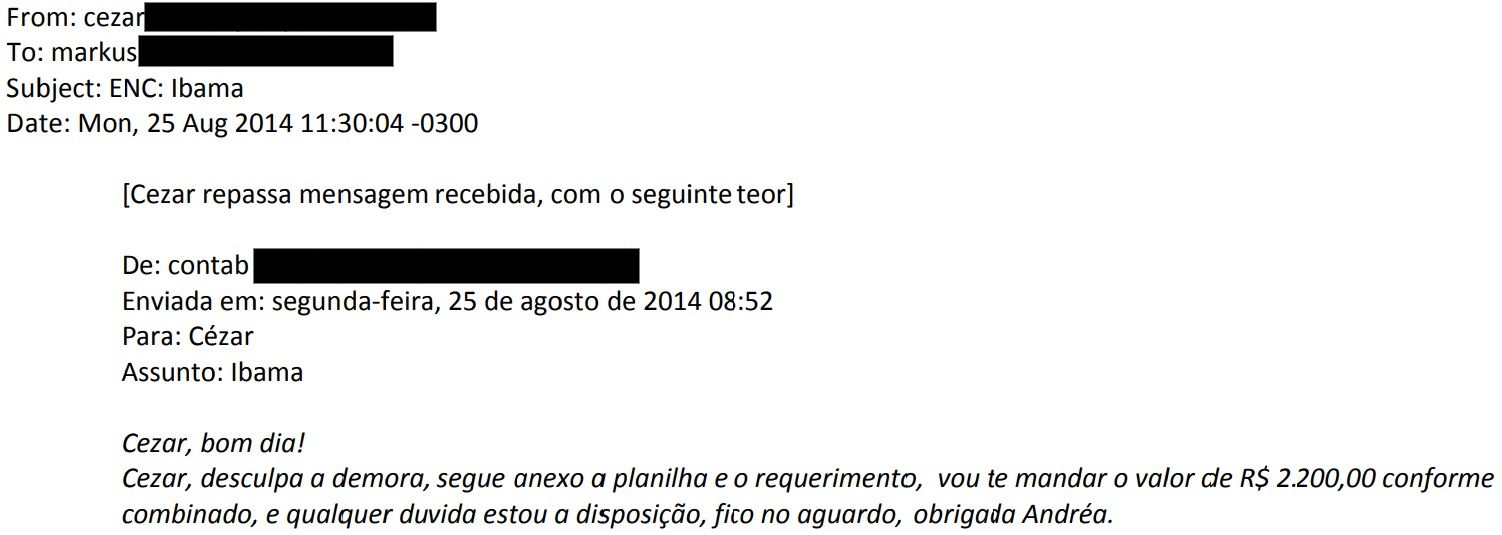
Email from Ulimax's accounts department Cezar forwarded to Zerza in August 2014. Source: Federal Police / Federal Prosecutor's Office - São Paulo
Email from Ulimax's accounts department Cezar forwarded to Zerza in August 2014. Source: Federal Police / Federal Prosecutor's Office - São Paulo
This looked like more smoking-gun evidence of corruption. But Cezar had a creative explanation, telling police he had asked Zerza to buy a used mobile phone in Bauru, where Zerza worked.75 The purchase, he said, was never carried out.76 He did not explain why he had wanted an Ibama employee to buy a second-hand mobile phone at all, or why he had had to pay him to make that purchase.
Correspondence from January 2015 indicates that one of the companies charged in the federal prosecutor's lawsuit, Thais Cristina Teixeira Brasil, wanted Zerza to carry out the illegal release of the company's timber stocks. On 30 January 2015, Cezar forwarded the public servant an email with the subject line "Desbloqueio de pátio" ("Courtyard unblocking"). It contained no text in the message body but four attached image files: three contained the relevant details on the company; the other, the first page of its application to release the stocks.
Zerza contacted Cezar early on 27 January of that year, saying Skype didn't work and requesting to talk via email. "Nothing yet?" he asked.77
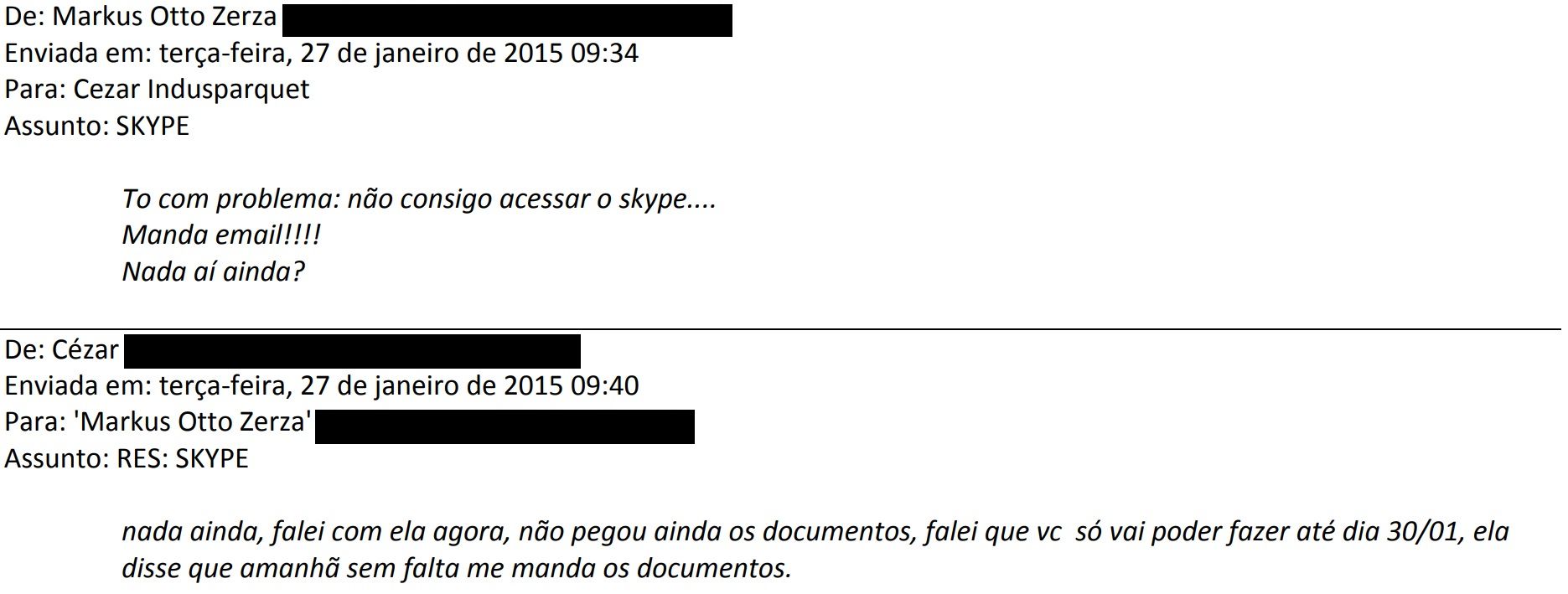
Email records from January 2015 indicate that one of the companies mentioned in the federal prosecutor's lawsuit, Thais Cristina Teixeira Brasil, wanted Zerza to carry out the illegal release of the company's timber stocks. Source: Federal Police / Federal Prosecutor's Office - São Paulo
Email records from January 2015 indicate that one of the companies mentioned in the federal prosecutor's lawsuit, Thais Cristina Teixeira Brasil, wanted Zerza to carry out the illegal release of the company's timber stocks. Source: Federal Police / Federal Prosecutor's Office - São Paulo
"Nothing yet," Cezar replied six minutes later. "I talked to her now," he said, referring to the corporate client, adding: "I said that you will only be able to do [the release] until 30/01” – 30 January – "she said she'll send me the documents tomorrow."
Similar emails obtained by Earthsight and Mongabay indicate a consistent pattern: Cezar emails the corrupt official documents to carry out a company's request – his own or another – before charging the firms concerned for this service.78
Indusparquet employee Cezar told Earthsight and Mongabay that he was wrongly targeted by the investigation, which was opened to look into the conduct of an Ibama official. He stated that some of the his messages obtained in the investigation had been interpreted out of context, that neither he nor his company had anything to do with the alleged scheme, and that he will have the opportunity to prove as much to the judge.
Ibama employee Zerza did not respond to requests for comment.
Puppet master
Although Indusparquet is named alongside other companies in the lawsuit, the prosecutor's case is that it masterminded the alleged scheme, and that it stood to gain the most.
Many of Indusparquet's co-defendants share close ties with it, being owned by members of the Uliana family which co-founded Indusparquet, trading timber with it or functioning as distributors for it.79 The prosecutor states that three of them – Baurupisos, Uliana and Faurtil – "maintained partnerships and/or commercial ties" with Indusparquet.80
In one instance, Ibama official Zerza obligingly "adjusted" Ulimax's timber credits in August 2014, wiping out 1,722 cubic metres of wood from its stocks, according to the prosecution. Two months later, he repeated the favour for Uliana – twice. Another 3,848 cubic metres of wood tampered with.
The prosecutor calculates that Indusparquet derived benefits amounting to R$154,372,773 (equal to almost 30 million USD today)
The prosecutor points to four other firms benefitting when Zerza released timber stocks that had been suspended due to inactivity: Demarchi (which at the time held 297 cubic metres of wood valued at R$575,510), Faurtil (twice, in February 2014 and again in February 2015), Baurupisos (which derived benefits estimated at R$1,636,317) and Thais Cristina Teixeira, in February 2015.81
Cezar's employer, Indusparquet, was alleged to be the biggest beneficiary by far however. On three separate occasions – in June 2014, October 2014 and February 2015 – when the flooring giant was awaiting its new operating licence, Zerza registered "conversion licences" that allowed it to process sawn timber to other products. Case filings analysed by Earthsight assert that to make it even easier for Indusparquet to manipulate the national database to its advantage, during this period the company was allowed access to the DOF system itself, to convert credits from one specific product to another.
The prosecutor calculates that Indusparquet derived benefits amounting to R$154,372,773 (equal to almost 30 million USD today) as a result. From Zerza's first illegal data entry in June 2014 until January 2017, Indusparquet manufactured 19,753 cubic metres of timber credits generated through 591 conversion transactions, nearly double the volume of fictitious credits Ibama agents had initially uncovered during Operation Patio.82
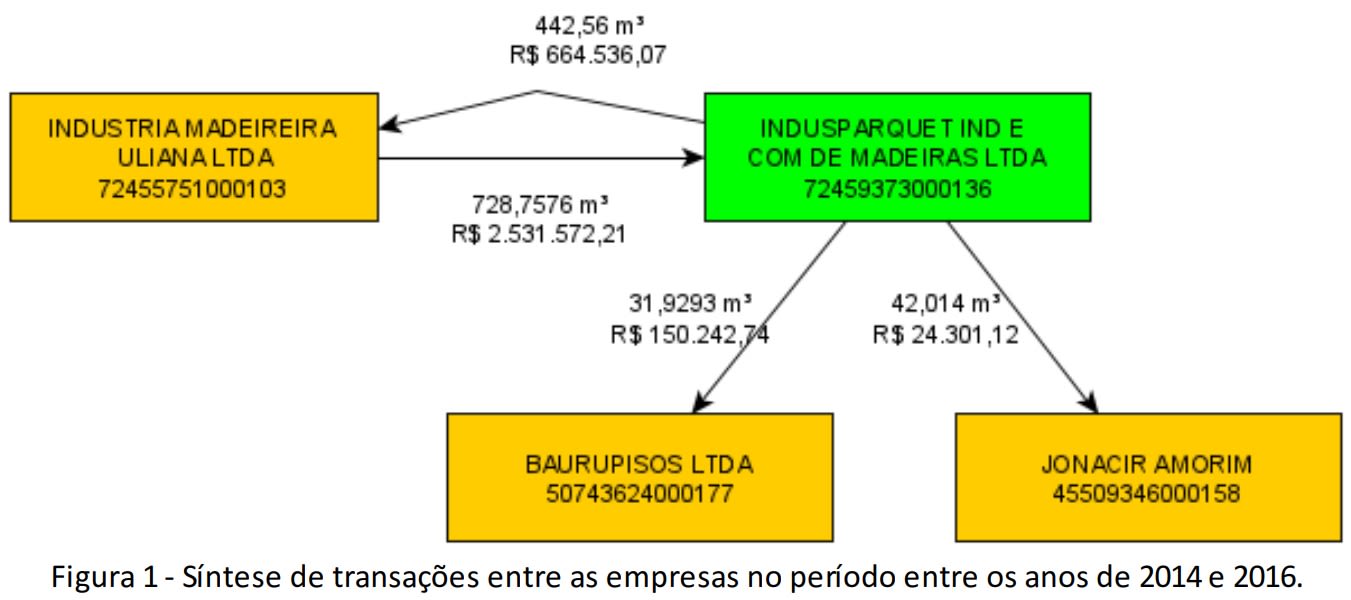
Diagram in a Federal Police document summarising timber trading between Indusparquet and the other firms named in the federal prosecutor's lawsuit from 2014 to 2016. Source: Federal Police / Federal Prosecutor's Office - São Paulo
Diagram in a Federal Police document summarising timber trading between Indusparquet and the other firms named in the federal prosecutor's lawsuit from 2014 to 2016. Source: Federal Police / Federal Prosecutor's Office - São Paulo
Court files also allege that Indusparquet regularly traded timber with its fellow-accused. In a reply to queries from the federal prosecutor's office, Ibama said it had identified 74 transactions between the flooring giant and the other firms mentioned in the legal action from 2014 to 2016.83
For example over this period, the companies exchanged 1,245 cubic metres of wood worth R$3,370,652. Indusparquet supplied 517 cubic metres of the stuff – 443 cubic metres to Uliana, 42 cubic metres to Faurtil and 32 cubic metres to Baurupisos – and received 729 cubic metres worth over R$2.5m from Uliana.84 Considering this only includes what federal investigators were able to track, the real volumes of timber traded between them is likely far higher.
Referring to the flooring giant, the prosecution states: "It should be noted that the defendant does not deny that its proposed agent Alberto Antonio Cezar offered, promised and delivered an undue advantage" – meaning bribes – "to former public servant Zerza, through his wife, so that timber could be released and patios approved in the Sinaflor system for companies that had a commercial relationship/partnership with it".85
Cezar said he responded "directly" to Baggio on a day-to-day basis, adding that Baggio was "more directly involved in purchases"
When the whole scheme was uncovered, Cezar, Indusparquet's billing clerk, reached out to none other than Indusparquet's co-owner Baggio for help, a curious piece of evidence that may indicate the alleged timber laundering scheme had had sign-off at the highest levels, and had been occurring with the full blessing of its veteran co-founder. Why else would a billings clerk reach out to a person with such a high status in a company with more than 500 employees when arrested?
Taken into custody on 24 May 2018, Cezar, says a Federal Police report, "contacted José Antonio Baggio, director of the company Indusparquet, to communicate about his arrest and to know if the company would appoint a lawyer" for him.86 On a day-to-day basis, he said, he responded "directly" to José Antonio Baggio as the latter was "more directly involved in purchases."87

Taken into custody in May 2018, Cezar, says a Federal Police report, said he responded "directly" to Indusparquet co-founder José Antonio Baggio. Source: Federal Police / Federal Prosecutor's Office - São Paulo
Taken into custody in May 2018, Cezar, says a Federal Police report, said he responded "directly" to Indusparquet co-founder José Antonio Baggio. Source: Federal Police / Federal Prosecutor's Office - São Paulo
Desperate race
Pedro Antonio de Oliveira Machado, the federal prosecutor, now faces a race against time to pursue their case against Indusparquet and its co-defendants.
The civil lawsuit contains damning charges: both active and passive corruption by the parties, fraudulent misrepresentation, and entering fake data into a government database to try to obtain undue benefit. It also argues that their actions damaged public governance by hindering the environmental agency Ibama's ability to enforce the law.
Rumbling alongside it is the still-ongoing police probe. Wary that Brazilian law allows corruption accusations to be thrown out for exceeding the statute of limitations (in this case five years since the first elements were revealed), the prosecutor's office is sifting through hundreds of pages of evidence to file cases in time. The pile grows every 90 days, when updates on the police's enquiries arrive.
If convicted, Indusparquet and its co-defendants would face a major blow. Possible penalties in the civil case include fines of up to one-fifth of the companies' gross revenues, compensation for moral damages, and the loss of goods, rights or benefits obtained through their infractions. They may also face suspension from activities like trading timber, using Ibama's credits system and timber yards for at least two years. They could also be banned from receiving subsidies or loans from public bodies for between one and five years.
In an interview with Earthsight and Mongabay, the prosecutor spoke of another hurdle: a local judge in Bauru's June 2021 order to split the civil suit into multiple cases, a ruling upheld on appeal.
Machado fought on, filing several different criminal and civil lawsuits against the defendants
"This separation will be bad for the public civil action," he said.88 "Why? Because there is a link between these companies: the link is the employee of Indusparquet itself" – alleged fixer Cezar – "and the link is the fact that these companies do business with Indusparquet."
"There is a reason why I left all of them in the same action."
Machado fought on, filing several different criminal and civil lawsuits against the defendants. The initial civil case that forms the subject of this report remains ongoing, although it now lists Indusparquet as the sole defendant. Separate civil lawsuits have been opened against all other companies involved in the alleged timber laundering scheme except Uliana.
Although details of the criminal cases, including the parties named in each, fall under secrecy laws, Ibama ex-employee Zerza, his wife, and Indusparquet's employee Cezar have been charged with corruption and, if convicted, this could lead to up to 12 years in prison. These cases remain ongoing.
To the federal police's charges, Marisa defended herself by saying she thought the money transferred to her bank account was related to Zerza's consulting work, an explanation that hasn't convinced Machado.
"He [Zerza] is the one that has to inspect and fine in case of any irregularities. But he goes and advises the company and charges for it. It is something totally incompatible [to his role]. He violates the duties of loyalty to the administration. One of the duties that public servants have is loyalty to the public administration," Machado said.
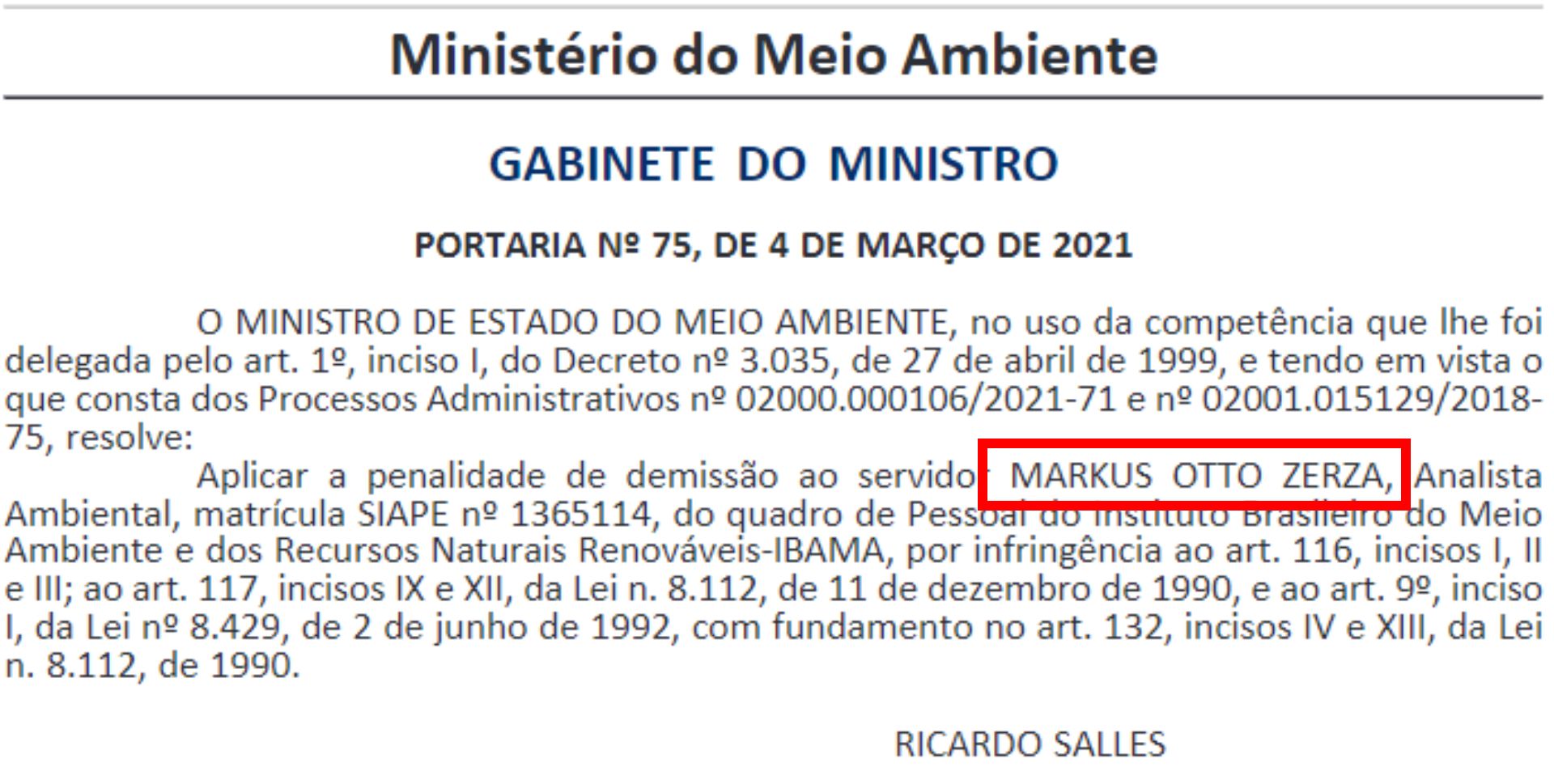
Zerza was fired by a state ministerial decree in March 2021. Source: Brazil's Official Gazette
Zerza was fired by a state ministerial decree in March 2021. Source: Brazil's Official Gazette
The civil actions against Indusparquet and the other timber companies, meanwhile, centre on the 2013 Brazilian Anti-Bribery Law making legal entities responsible for corruption regardless of whether their managers or directors knew what was going on.89
This law, nicknamed the Clean Company Act, stems from two international treaties – the Mérida Convention on tackling corruption and the Palermo Convention on transnational organised crime – and permits lawsuits if prosecutors have evidence that the company involved benefitted from corruption or an act that impeded inspection.
The case of Zerza meets these conditions, argues Machado, who explained the legal framework with the example of bribing a bureaucrat.
"Legally, corruption exists if I offer a bribe," he said. "I don't even need to pay – just the fact that I offer it is already a crime of passive corruption of the public official".90
"The public official, in turn, he does not need to receive [the money]. If he requests, he has already practiced the crime of active corruption".
Cezar continues to work at Indusparquet's headquarters in Tietê, São Paulo
Contacted for comment on the case, Indusparquet denied wrongdoing and stated that there was no link between Operation Patio and the federal prosecutor's lawsuit. It pointed out that the lawsuit does not show any environmental damage caused by Indusparquet and involved "mere questions on administrative information provided to Ibama." It maintains that it had no illegal relationship with Ibama employees.
In response to a request for comment, Uliana stated that it was available to clarify the facts once the case had been processed, but until it had, reporting on it could cause irreparable damage to the company.
Ulimax told Earthsight and Mongabay that it had not been proven that Zerza had acted on behalf of its firm or that it had contracted Zerza's services to commit unlawful acts. It does not deny it used Zerza's services however, stating that the hiring of the Ibama employee took place only "to assist the company in adjusting the stock kept in the Ibama system" and that such adjustments had not been possible to make due to inconsistencies in the system itself. It disputed the extent of penalties called for by the prosecutor, stating that if the penalties involved were properly calculated according to relevant legislation, "the amount of the fine, if due, falls considerably."
Baurupisos told Earthsight and Mongabay that given the evidence in records made accessible to the "civil public" and police investigation, there was no information in our allegations that was new to the company or its employees. However, it also stated that the evidence in the case was under judicial secrecy and that in view of this, it reserved the right to use legal measures against anyone publishing information from it that was damaging to the company.
The prosecutor confirmed that files in the civil case, which forms the basis for this report and which contain evidence of the charges against Indusparquet and its co-defendants, including Baurupisos, were freely accessible and are still free for Earthsight and Mongabay to use as they were obtained before they were placed under secrecy. The set of new cases filed by prosecutors against individual companies including Baurupisos, were placed under secrecy subsequently.
We did not receive a response from Demarchi, Faurtil or Thais Cristina Teixeira.
Despite admitting receiving bribes from Cezar to game the DOF system through his wife's bank account, Zerza remained a salaried Ibama employee for almost another three years, until 4 March 2021, when he was fired by a state ministerial decree.91
Describing Ibama as very cooperative with the investigation, prosecutor Machado nonetheless alleges that the agency had sat on evidence of crime within its ranks for years. He is now determined to finish the job. Not far from Machado's office, meanwhile, Cezar continues to work at Indusparquet's headquarters in Tietê, São Paulo.
***
The evidence furnished in the São Paulo civil case offers an insight into how an Indusparquet employee allegedly worked with a government official to game Brazil's national timber accounting system, at regular intervals, over years. The evidence in the case stops in 2017. However timber laundering via government databases remains common in Brazil today. Ibama continues to issue fines to companies for manufactured timber stocks and for discrepancies between the actual and declared volumes and species of timber in firms' possession every month. The next chapters reveal how Indusparquet's suppliers in other parts of Brazil have also been similarly fined for dealing in wood of dubious origin.
From Paraná in the South, and São Paulo in South-Eastern Brazil, the story now shifts to the heart of the Amazon rainforest in Pará state.
Friends in High Places

Busted
The Lucinilde Soares was crawling up the thick waters of the Mamuru river. Less than 50 kilometres on, the river would empty itself into the mighty Amazon. It was mid-November in the Parintins municipality of Amazonas state, the hottest month of the year. The ferry was sluggish under the weight of a heavy cargo – thousands of freshly cut ipê and massaranduba trees.
Then the usual sounds of the forest, interrupted by the occasional rumble of logging or other machinery, were broken by a more unusual sound – the drone of a rapidly approaching aircraft. It was a helicopter from the special aviation support branch of Brazil's Federal Police (PF). It had been deployed as part of Verde Brasil 2 (Green Brazil 2), a new inter-agency effort to crack down on illegal logging that Bolsonaro was forced to launch in response to the unprecedented international attention to soaring levels of deforestation in Brazil triggered by the forest fires of August 2019.
Within just a few hours, the ferry was swarming with PF agents, its documents checked and the discovery made that its precious cargo was wholly illegal. Police seized 3,418 cubic metres of wood lacking the correct information on the accompanying permits of timber origin (or DOFs) that day. They discovered high value tropical logs (which are also often more endangered) being declared as timber of species with much lower market values, a common ruse used by loggers the world over. The timber was reportedly on its way to Belém, a port on the Amazon river across the state border in Pará, from where it was due to be exported.
"We turned the satellite over there, started to look at that area and took them [the vessels and timber yards] down one after the other, in sequence."
The former police chief of Amazonas state who had masterminded the operation, Alexandre Saraiva, recalled how it began in a recent interview with Earthsight and Mongabay.
"In the week of November 15th, around the 12th [2020], agents came to me and said: 'The satellite is showing a great movement of ferries there in the south of the state, in the rivers. You can't be absolutely sure that it's wood, but everything suggests that it is.'"
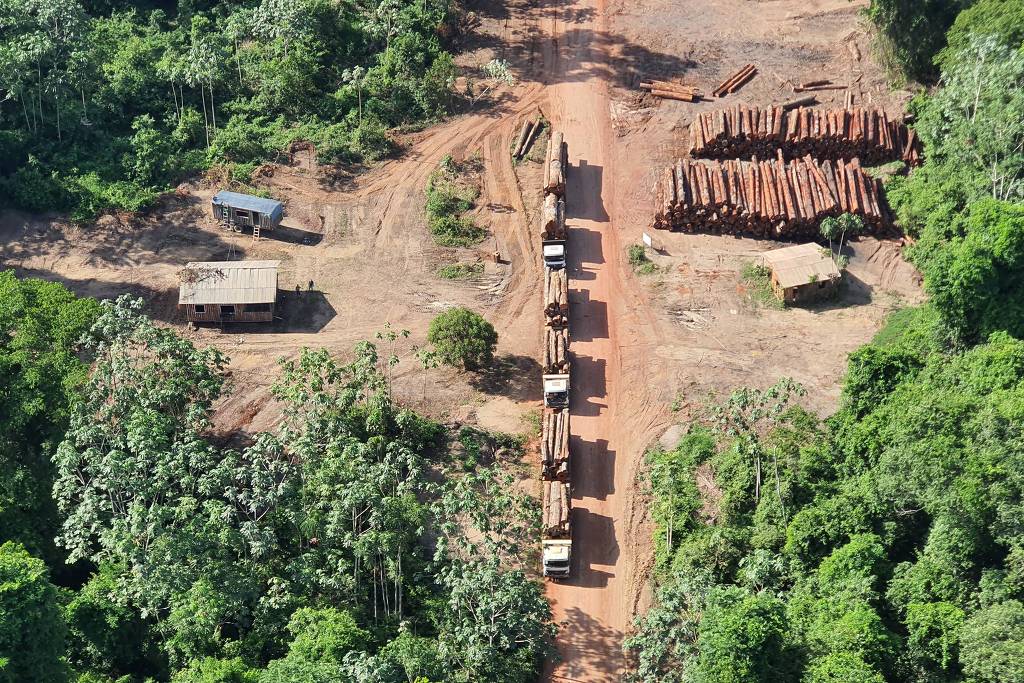
The Federal Police seized wood on the border between the states of Amazonas and Pará in March 2021 as part of Operation Hadroanthus. Photo: Federal Police in Amazonas state via Smoke Signal
The Federal Police seized wood on the border between the states of Amazonas and Pará in March 2021 as part of Operation Hadroanthus. Photo: Federal Police in Amazonas state via Smoke Signal
"We arrested the commander because what was in the Guia Florestal [the term for timber transport permits in Pará], was not what was being transported on the ferry. We turned the satellite over there, started to look at that area and took them [the vessels and timber yards] down one after the other, in sequence."
The seizure of wood from the L. Soares triggered a series of other busts across Amazonas and Pará and marked the start of Operation Handroanthus, named after one of the most sought-after timbers in Brazil, the wood of the ipê tree.
Operation Handroanthus had officially become the largest timber seizure in the history of the Brazilian Amazon.
By the end of December 2020, the media was already reporting that a whopping 131,000 cubic metres of timber had been seized by police during the operation. And by April 2021, that number had leapt to 226,760 cubic metres of wood. Operation Handroanthus had officially become the largest timber seizure in the history of the Brazilian Amazon. The total value of the apprehended timber across all log yards and other areas – primarily located in the Amazonas and Pará states – was estimated by officials at more than 25 million US dollars. By Earthsight's reckoning, its retail value when sold as finished flooring overseas would have been an order of magnitude higher, at $448 million – nearly half a billion US dollars.92
A man of action
Ricardo Salles was on the move. His phone had been ringing off the hook for months and his diary was full of meetings with agitated members of Brazil's timber lobby. Operation Handroanthus had shaken timber suppliers up and down the Amazon to the core. Loggers had orders to fulfil. The only problem was, much of their timber had now been seized, put under guard by Brazil's Army (which played a collaborative role in Operation Handroanthus) while its fate was decided by the courts.
But Salles was not a man to wait for justice to be meted out by the courts. In fact, since his appointment as Brazil's Environment Minister in January 2019, he had been certain to miss no opportunity to use his position to grease the wheels for Brazil's timber industry and to help those involved avoid finding themselves on the wrong side of the law.
He had already had two meetings with a group of particularly concerned individuals, a young man named Rafael Dacroce among them. Dacroce, who was the elected councillor for a small town in Santa Catarina state in Southern Brazil, and a group of other politicians and loggers with investments in Pará had been eager to meet with Salles to discuss the seizures.
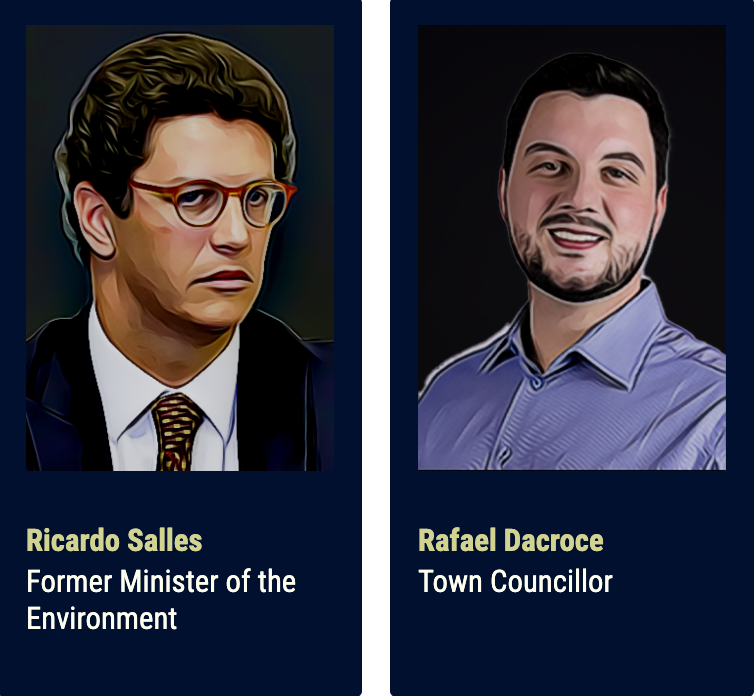
Rafael Dacroce is the grandson of Walter Dacroce, the owner of a farm named Francine II in Pará state. Francine had been among the targets of the Police's timber seizures during Handroanthus. Dubbed "professional land squatter" by media outlet Istoe, the Dacroce family’s partriarch [Walter Dacroce] was part of a wave of settlers to occupy land in Pará during the last 15 years.
It was at this meeting in mid-March 2021 that Salles reportedly made plans to visit Pará, to assess the situation with the logs seized during Handroanthus.
Rafael Dacroce posted a picture with Salles just after the meeting.
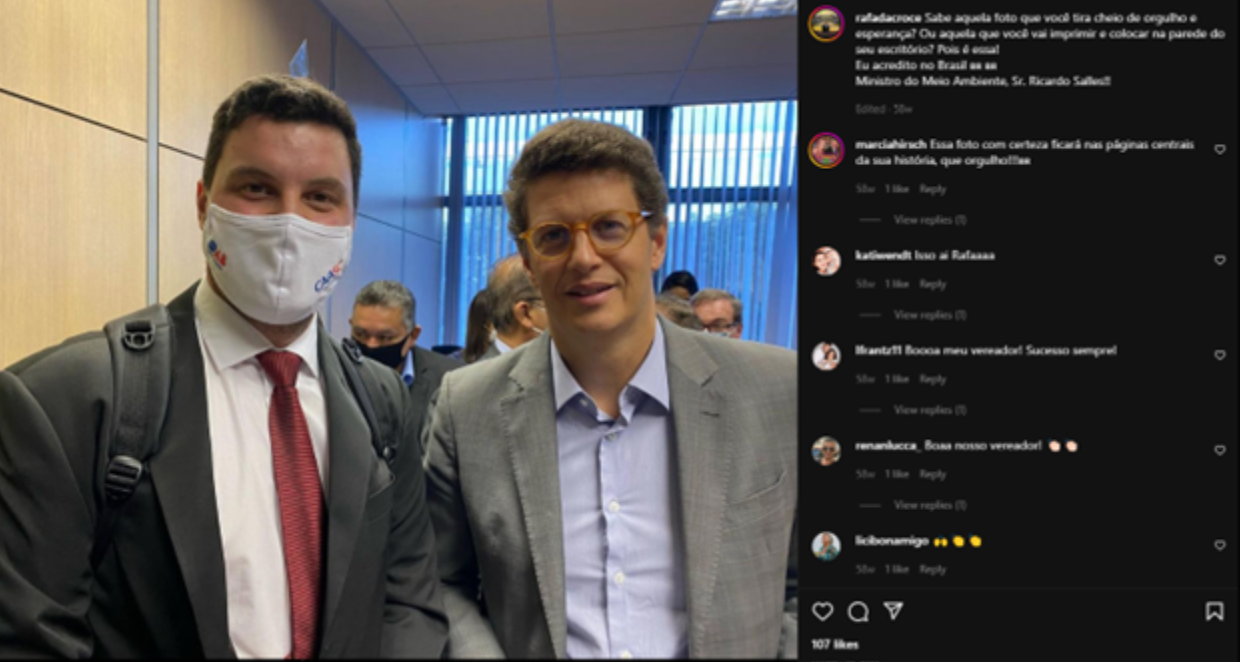
Dacroce shared this photo of himself and Salles on Facebook in 2021. The caption reads: "You know that picture you take full of pride and hope? Or the one you're going to print and put on your office wall? Well that's it! I believe in Brazil Minister of the Environment, Mr. Ricardo Salles!!". Source: Rafael Dacroce / Facebook
Dacroce shared this photo of himself and Salles on Facebook in 2021. The caption reads: "You know that picture you take full of pride and hope? Or the one you're going to print and put on your office wall? Well that's it! I believe in Brazil Minister of the Environment, Mr. Ricardo Salles!!". Source: Rafael Dacroce / Facebook
Questioned about the meeting later, Rafael Dacroce told reporters that Salles had promised to look into his case and to invite the head of Ibama and other politicians to do so too. "He wanted to understand, but at no time did he make a pre-judgment, look, oh, you're right, so we'll release the wood tomorrow."
But as it turns out, that was exactly what Salles tried to do.
The first stop on Salles' journey was a small village in the Santarém municipality in Pará state. Meeting some members of the timber sector there, he posted a Tweet on March 31 announcing that he had personally checked the origin of some wood there, and had verified its legality.
"There are serious people doing the job right. It is not right to demonize the entire timber sector. It is necessary to identify the criminals and punish them harshly, but without generalising," he declared on another social media post the same day.
The first stop on Salles' journey was a small village in the Santarém municipality in Pará state
A week later Salles returned to Pará with an entourage of politicians. The group included Zequinha Marinho, a Senator representing Pará state. Also along for the ride was the president of the House of Representatives' Environment Commission and part of the Brazilian delegation to COP26 in Glasgow in 2021.
Marinho and several other politicians had been pleading with Salles to do something about Handroanthus for weeks. In fact, Marinho's own press office admitted that he had sought out Salles after being requested to help by influential Brazilian timber lobby groups the Association of Wood Exporting Industries of the State of Pará (Aimex) and the Association of the Forest Productive Chain of the Amazon (Unifloresta).
The party finally made its way to the log yard, or 'patio' by the River Aruã where timber from the Francine farm was deposited before being loaded onto rafts and sent to be processed at various local sawmills. This had been one of the sites of the police raids. In fact, more timber was seized from the yards in this area than from any other – 18 per cent of the total.93
Posing in front of a sign portraying the name of the farm the log yard belonged to, Salles appeared to vouch for the legality of the seized wood: "You can see the patio [is organised] by property. Each property is tagged to identify the plot, the section within each plot, and the tree within each section. The tree has a number, which in turn has an exact location, a geolocation of the trees."
Alexandre Saraiva, the police chief who orchestrated the seizures, described the scene to local media soon after Salles' visit. "Salles arrived in a helicopter in one of Dacroce's farms used for the illegal extraction of at least 43,000 logs that were harvested illegally."
Rafael Dacroce took to Instagram again the very next day, unable to contain his excitement at the official visit. "Yesterday we had the pleasure of receiving in Santarém the Minister of the Environment, Mr. Minister Ricardo Salles, together with other authorities to supervise the legality of the extraction of wood in the State of Pará, coming from Sustainable Management Projects! This is the Brazil we want," he said.
Salles' interference in the Handroanthus operation would come back to haunt him
As it turned out, Salles' interference in the Handroanthus operation would come back to haunt him very soon.
Unable to stomach Salles' meddling, Saraiva wrote a letter to the Supreme Court a week after the Minister's visit to the Francine timber yard. In his letter dated April 1494, he outlined the evidence Operation Handroanthus had unearthed, and accused Salles of defending loggers and working to discredit police investigations. He said Salles acted "like a true advocate for the logging cause."
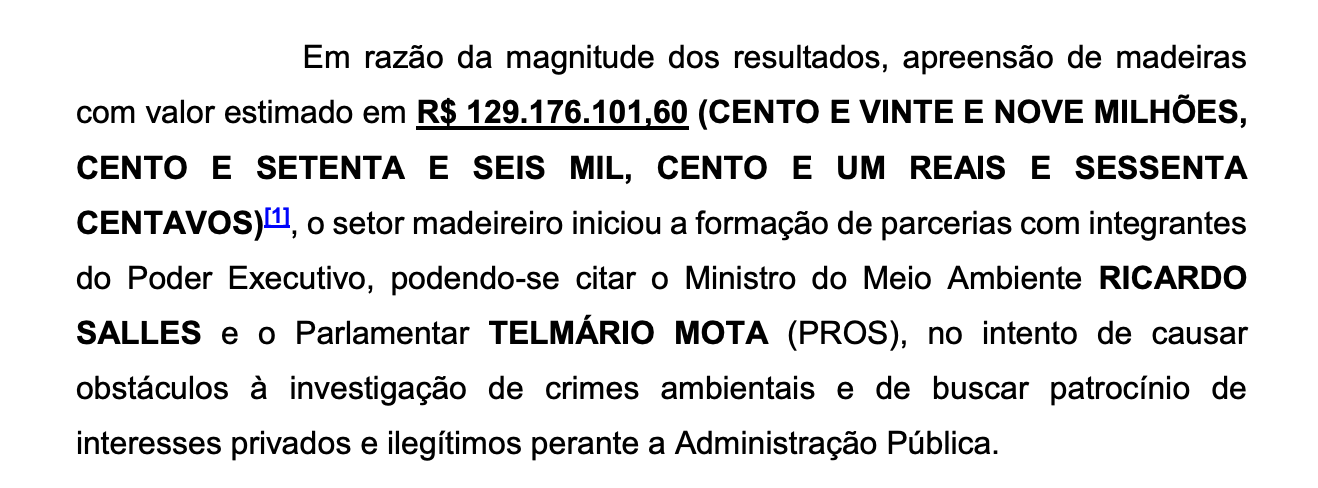
Excerpt from Saraiva's letter to the Supreme Court detailing the timber sector's collaboration with Salles in an attempt to impede the investigation. Source: Alexandre Saraiva
Excerpt from Saraiva's letter to the Supreme Court detailing the timber sector's collaboration with Salles in an attempt to impede the investigation. Source: Alexandre Saraiva
Saraiva was removed from his position as Head of Police for Amazonas state and demoted the very next day.
In bad company
The police superintendent's allegations were soon confirmed. Later that same month, in an interview to one of Brazil's largest news radio stations, Salles admitted that he had been pressured to act to release the wood seized in Handroanthus at the request of several politicians, including Marinho.
In May 2021, courts in Pará and Amazonas ruled that the timber seized in Operation Handroanthus should be released. The Amazonas judge's order was proudly shared by Salles on his Twitter account. The order by the Pará judge came the very same week that Salles visited Pará yet again, this time to supervise Ibama and police operations there.
Sempre fomos e continuamos sendo defensores da celeridade, devido processo legal e ampla defesa. Se estiverem errados que sejam punidos. Vejam, era mentira que ninguém tinha aparecido como dono da madeira e que não havia procurado a Justiça. Essa sentença de hoje desmente isso. pic.twitter.com/9IBQeMwBiB
— Ricardo Salles 2250 (@rsallesmma) May 5, 2021
Even that was not the end of the matter – in June, following a police request, Supreme Court Judge Carmen Lucia ordered the suspension of the decisions of the Amazonas and Pará judges to release the timber. She said that the police request had presented "very serious facts" and that the decision to release the "proceeds of the investigated crimes" was "premature" and could harm the investigation.
Later that month the National Council of Justice (CNJ), a watchdog which monitors judicial independence and conducts disciplinary hearings when wrongdoing is detected, began an investigation into Judge Antonio Campelo's conduct. Campelo was the Pará judge who had ordered the timber be released. On 12 December 2021, the CNJ decided he should be removed from his position as a federal judge in Pará.
Their probe found that Campelo's decision to summarily order the release of the wood had occurred while the judge was on vacation, that his hasty intervention had violated the judiciary's code of conduct, and that he had failed to act impartially and accurately.
Brazil's Supreme Court authorised an investigation into whether Salles obstructed a police probe into illegal logging in the Amazon, especially Pará
As for Salles himself, Saraiva's letter to the Supreme Court may have cost the police chief his job, but its detailed account had rung alarm bells among top prosecutors in Brazil's capital, spurring them into action. In early June 2021, the Supreme Court authorised an official investigation into whether Salles had obstructed a police probe into illegal logging in the Amazon, especially Pará.
Two weeks before this, another unrelated criminal investigation was launched against Salles for his alleged participation in illegal logging schemes "of transnational character."
Facing mounting pressure as a result of the two Supreme Court investigations, Ricardo Salles resigned from his post on June 23rd 2021. His days of helicopter rides following police raids in the Amazon had been brought to an abrupt halt.
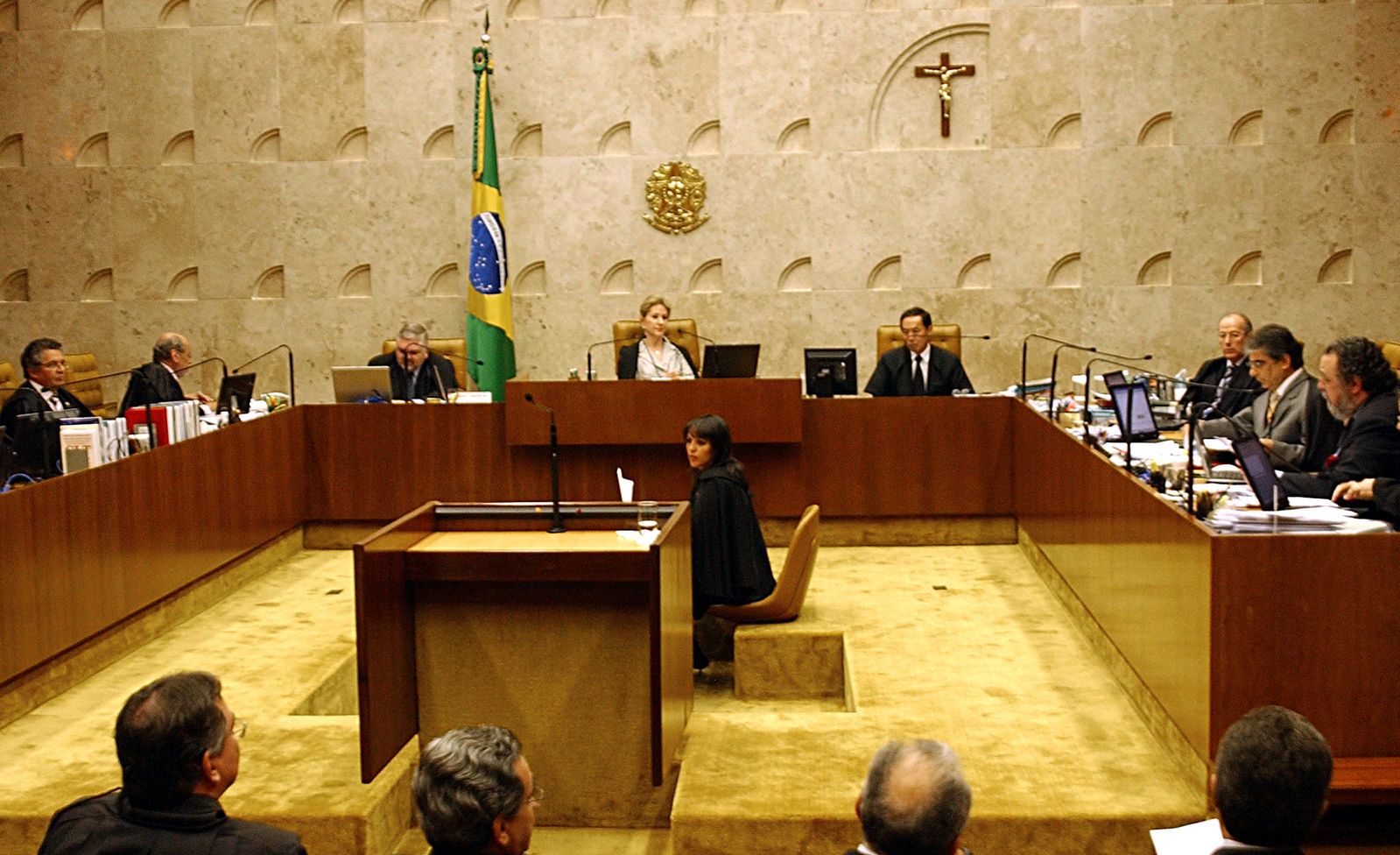
There is no smoke without fire
A minister had resigned, a police chief been demoted, and some of the seized wood released under highly dubious circumstances. But Operation Handroanthus was not done making waves.
Despite the controversy surrounding the seized wood, in January 2022 President Bolsonaro's own lawyer Frederick Wassef stepped in to secure a court order to release part of it. Wassef wasn't representing Bolsonaro on this occasion, but a timber company named MDP Transportes, one of the firms whose timber had been seized in the operation.
President Bolsonaro's lawyer stepped in to secure a court order to release some of the seized wood
Federal Prosecutor Raquel Branquinho criticised the decision. She said their investigation had been hampered by the decision to release part of the timber apprehended in the operation. She added the release should only have been made once the wood had been properly identified, since loggers' attempts to legalise wood of dubious origin had been the very subject of the criminal investigation.
Earthsight decided to do a little more digging into the case, including exploring where the timber associated with the scandal might have ended up. We took a closer look at two farms in Pará whose wood was seized during Handroanthus, and in both cases our path led us back to none other than our old friend, Brazilian flooring giant and scandal-magnet Indusparquet.
Article on the court order by Brazilian news website Metrópoles. The headine reads "Wassef manages to release wood retained in Salles' administration in court". Source: Metrópoles
Article on the court order by Brazilian news website Metrópoles. The headine reads "Wassef manages to release wood retained in Salles' administration in court". Source: Metrópoles
MDP Transportes, the timber company Frederick Wassef was representing, operates a concession in Pará and had been among the firms that had its wood seized. In summer 2021, Federal Police in Amazonas had detected that, in the wake of the Handroanthus seizures, some of the seized logs had started disappearing or were sold within the yards of the companies targeted by the operation – even though they were supposed to be under guard.
Police documents obtained by media outlet CartaCapital showed that between June and August 2021, 31,500 cubic metres of wood were moved from the log yard of MDP Transportes in Pará. This was several months before the release order Wassef helped the company secure in January 2022, and in violation of the Supreme Court suspension in June 2021 that had reversed previous orders to release the logs.
Even as the police were looking into the mysterious case of disappearing wood from MDP's log yard, an analysis of official documents by Earthsight shows that the company was busy selling its wood on to willing customers. It sold 550 cubic metres of Jatobá (Brazilian cherry) logs to two sawmills in July and August 2021, the very period the police investigation covered.
Our path led us back to none other than our old friend, Brazilian flooring giant and scandal-magnet Indusparquet
Earthsight discovered that wood of the same species, sourced from the MDP farm, was then sold on by these two local sawmills into Indusparquet's supply chain just a couple of months later – in October 2021, Indusparquet bought 44 cubic metres of sawn jatobá harvested on the farm from them.95
We cannot be certain this was the same wood previously seized. But either way, MDP Transportes should have raised red flags. A closer look at publicly available Ibama records relating to one of the sawmills that supplied this wood reveals it has been fined a total of nearly 200,000 USD for numerous irregularities in recent years, including falsifying information about timber origins and volumes entered in official timber databases.96 MDP Transportes did not respond to requests for comment.
The second farm we looked at was Francine II, the Dacroce-owned farm targeted by Operation Handroanthus and which Salles subsequently visited. The farm had other problems too. The process by which the Dacroce family had acquired ownership of several properties in Pará, including Francine II, is mired in controversy. Numerous parties have accused the Dacroces of land grabbing.
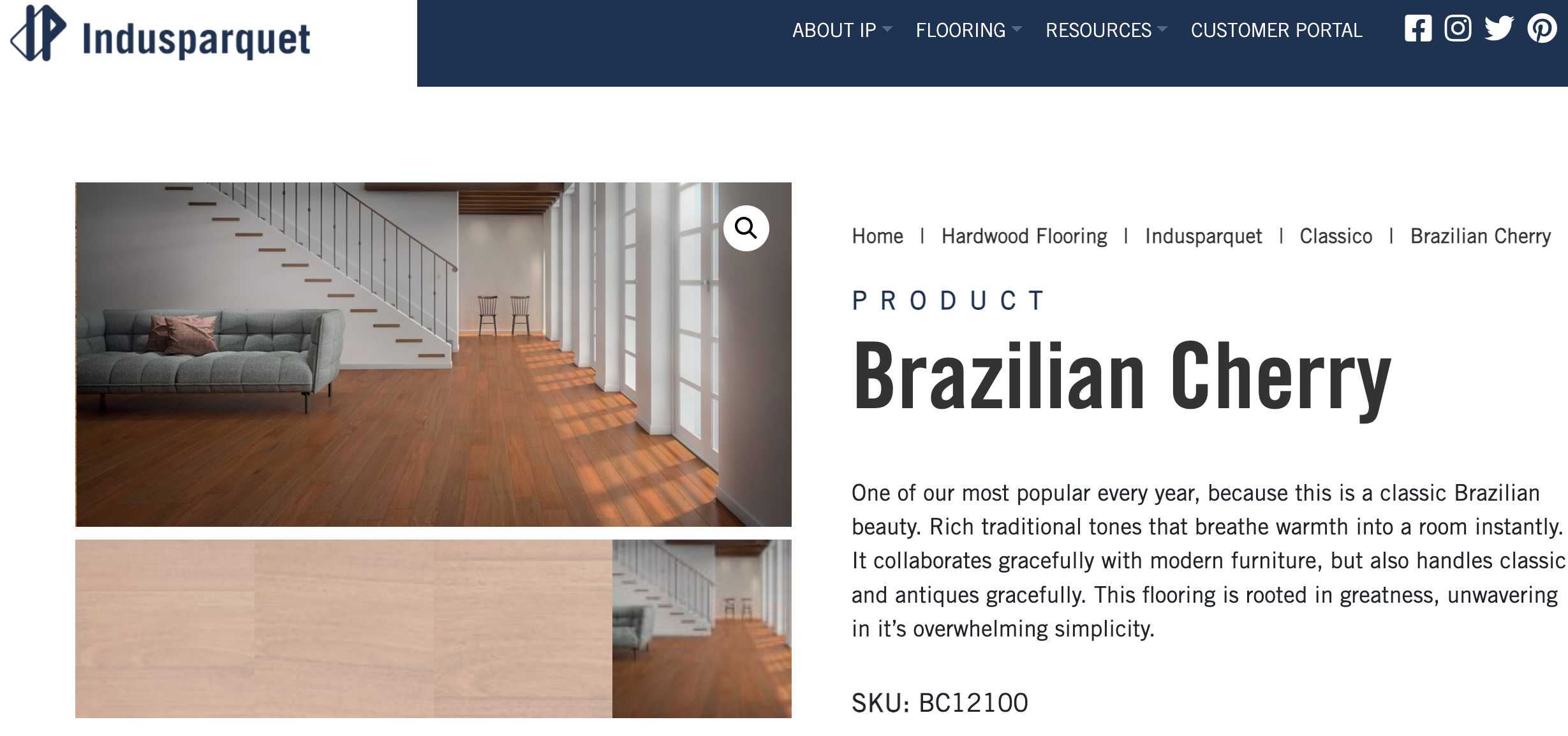
Indusparquet's website advertises its Brazilian Cherry flooring. Source: Indusparquet
Indusparquet's website advertises its Brazilian Cherry flooring. Source: Indusparquet
According to ex-police chief Saraiva, the fact that the legality of their land title was in question was enough to nullify all logging permits issued for the land.
"It's a grotesque, grotesque land grab," Saraiva told Earthsight and Mongabay.
Our digging has uncovered that although the Dacroce family owns 11 other properties in the region, Francine II, named after Rafael Dacroce's sister Francine, is the only one authorised to conduct logging operations.
The Francine II concession, or 'farm,' is a 600-hectare area of dense forest in Pará state. Sandwiched between the Mamuru, Tapajos and Amazonas rivers. It contains over 20 species of tropical trees97 such as ipê, jatobá, angelim, cumaru and tauari, some of which are in decline and all of which are highly prized by the timber industry.
MDP was fined nearly $200,000 for falsifying information about timber origins and volumes in official databases
But Saraiva's report to the Supreme Court accusing Salles of meddling in Operation Handroanthus had also contained information that casts the legality of the farm's logging permit into question. The letter describes multiple flaws in Francine II's Forest Management Plan, a legal document on the basis of which all logging operations in Brazil are authorised.
The former Police chief pointed out that in addition to illegal land titles, the federal agents had also identified environmental crimes, such as logging in protected areas, known as Permanent Preservation Areas (APPs).98
Saraiva details how the plan omits declaration of several protected areas and how in other instances, logging in sites that were demarcated as protected areas in the plan was observed.
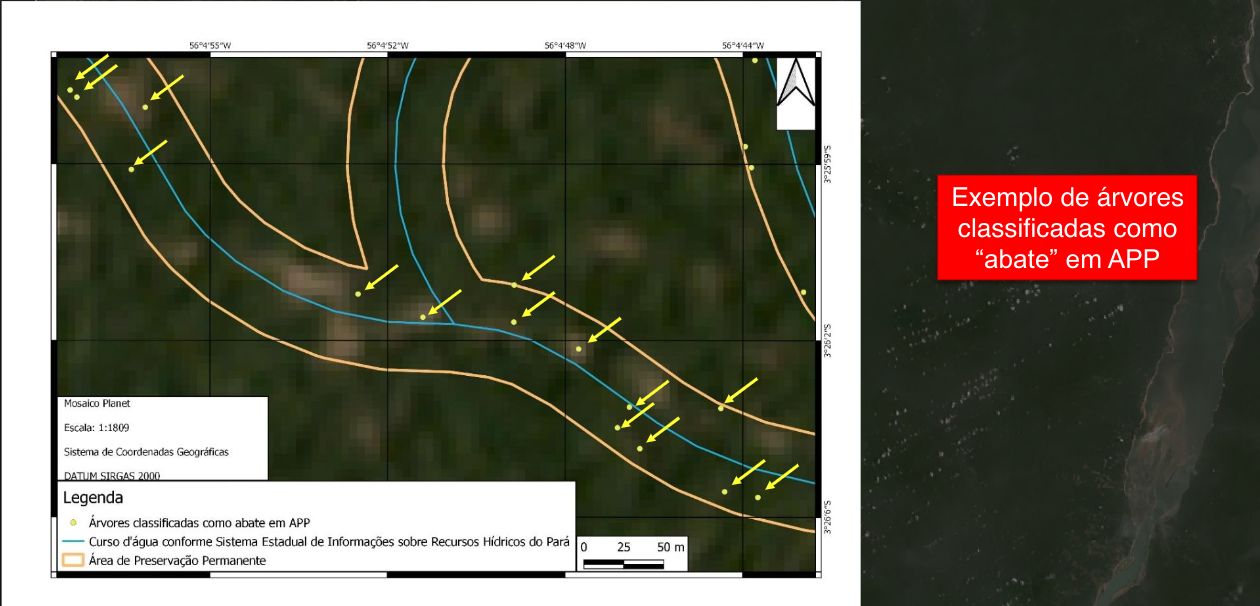
Example of logging in a Permanent Preservation Area at Francine II Farm. Source: Saraiva's complaint to the Supreme Court, April 2021
Example of logging in a Permanent Preservation Area at Francine II Farm. Source: image taken from Saraiva's complaint to the Supreme Court in April 2021
Earthsight also uncovered fresh evidence which shows that even as the scandal surrounding the beleaguered ex-Minister reached its peak in June 2021, the owners of Francine had been busy selling its wood to various local clients. Among them is a sawmill named R.S.K Industria Comercio de Madeiras ('RSK') located 800 kilometres to the east, near Belém, the 'gateway to the Amazon.' As it turned out, much of that was also destined for Indusparquet.
An analysis of timber transport documents shows that Francine sold 200 cubic metres of cumaru (Brazilian teak) logs to RSK following the seizures, in June 2021. Then, between June and August 2021, the sawmill sold 110 cubic metres of sawn timber of the same species, originating from the Francine farm, to none other than Indusparquet.99
RSK, it turned out, was a regular Indusparquet supplier. This despite, like Francine, being no stranger to scandal. An analysis of data made available by Brazil's environment agency Ibama – and readily accessible to Indusparquet itself had it been minded to check – shows that between 2015 and 2018, the RSK sawmill was fined on no fewer than 12 occasions. RSK offered no response when contacted about these allegations.
RSK's sawmill was fined on no fewer than 12 occasions between 2015 and 2018
The fines are for timber laundering: not having the documents required to be able to prove the legal origin of its timber, not having the correct storage permits for timber, entering false information in the official timber tracking databases for Pará state, discrepancies discovered in the volume of timber credits (amount of wood the company is legally authorised to sell) and volumes declared on harvesting permits… the list goes on and on. The fines total 1.586 million Brazilian reals – a whopping 320,000 US dollars.
The Dacroce family responded to requests for comment to deny all wrongdoing. They state that they had all the documents and licenses needed in Brazilian law from environment and land registers, including a cutting permit, that sustainable management rejuvenates the forest and was not deforestation and that they received no notifications about their wood being irregular or of Saraiva's allegations.
They state that the intent of Rafael Decroce's meeting with Salles had been to bring to the attention of the competent authorities the erroneous and maliciously reported information (about the seizures) but that Salles had never visited the Francine farm or its courtyard. In reply to our findings that RSK had supplied wood from the Francine farm to Indusparquet their response asks, "Is there a Brazilian law that prohibits the sale of legal wood?"
Indusparquet did not specifically respond to the findings of this chapter, including fines levied against RSK and MDP Transportes or the allegations of land grabbing and illegal logging pertaining to the Francine II farm and the Dacroce family, when reached for comment.
An Earthsight analysis of Indusparquet's wider supply chain in Pará reveals that RSK is its biggest supplier in the state and continued to supply wood to the company until at least August 2021. The sawmill sold more than 3,100 cubic metres to Indusparquet between 2018 and 2021.100 This means RSK accounted for nearly 20 per cent of the total volume of wood the company purchased from its more than 81 suppliers in the state. If they did know about the firm's reputation, and they certainly should have, Indusparquet's wood buyers apparently didn't care.
Invasive Species

Kingdom of the dammed
In the middle of the Amazon, a settler enthusiastically cheers on his favourite football club in one of the nightly national league matches shown on TV while drinking a bottle of cold beer that came straight from his fridge.
The ceiling fan is on in the next room, where the children are getting ready for bed. Through the window they see that lights are shining in other parts of the forest. The total darkness that existed before is a thing of the past and the silence of the night is now broken by sounds from a distant radio and a washing machine. Power cables that have provided electricity to their new houses are also lighting up unpaved roads with newly installed lamp posts. Things have changed dramatically in the last four years within Ituna Itatá Indigenous reserve, located in the Xingu river basin in the state of Pará.
Funai issued the restriction after signs uncontacted indigenous people inhabited the forest
The electricity grid is just one of the changes to have come to the region after the arrival of several waves of land grabbers, miners and loggers despite a restriction imposed by the Brazilian Institute for Indigenous People, Funai, a government body responsible for policy related to Indigenous peoples, in January 2011101, which prohibits outsiders from accessing the land.
The Funai restriction was issued after signs that uncontacted indigenous people inhabited the forest and that further studies on their presence needed to be carried out. Along with the restriction ordinance, Funai officially named the region the 'Ituna Itatá Indigenous Territory.'
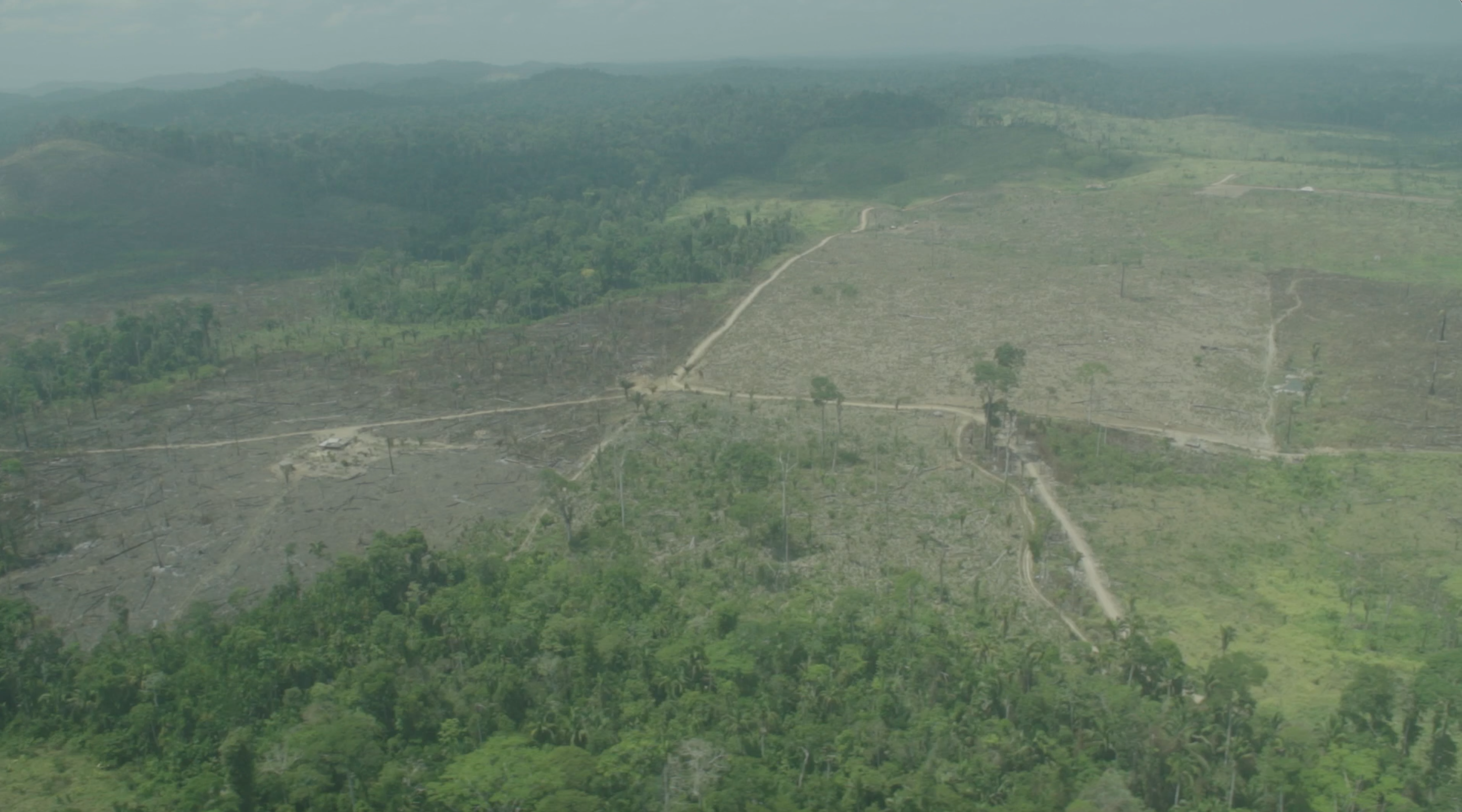
Image still from Greenpeace footage showing deforestation on Ituna Itatá indigenous land. Source: Greenpeace
Image still from Greenpeace footage showing deforestation on Ituna Itatá indigenous land. Source: Greenpeace
It covers 142,000 hectares, spread across the two municipalities of Altamira and Senador José Porfirio in the State of Pará. The reserve functions as the entrance to the Mosaic of the Middle Land – a network of 24 million hectares of protected forests102 created to combat widespread land grabbing, illegal logging, gold mining103 in the region. The area is almost the size of São Paulo, Brazil's financial hub and one of the most populated cities on the planet. However, Ituna Itatá was meant to remain an inviolate part of the country, covered by dense forests, nearly untouched rivers and streams and great biological diversity.
The decision to create the Indigenous Territory in 2011 was not a product of the benevolence of the left-wing government in office during those days. In fact, it was taken following a court battle over the construction of the controversial Belo Monte Hydroelectric dam in the heart of the Amazon, the proposed building of which had made headlines all over the world and prompted denunciations by celebrities from Sting to Sigourney Weaver the year before.
Along with workers and investors, the Belo Monte dam also attracted illegal invaders
A study carried out by utilities companies during the planning of the dam and released in September 2009 confirmed that uncontacted peoples had been observed there since the 1970s.104 Although the permit for the construction of Belo Monte was supposed to have been issued only after the process of official declaration of all indigenous lands affected by the dam was complete, this demarcation never took place.105 As a result, Funai's access restriction has to be renewed periodically. Ituna Itatá continues to lack the higher protections offered by more formal declared status, which needs sign-off by the President.
The advent of the dam brought more than just economic opportunities to the region. Along with workers and investors, it also attracted illegal invaders. Altamira in Pará, where the dam was later built, saw its population double – from 77,000 in 2000 to more than 148,000 a decade later.106 There was no room for so many new migrants and the stage was set for the forests around the city to become an area to be exploited, not only for housing but for their seemingly limitless quantities of minerals and timber.
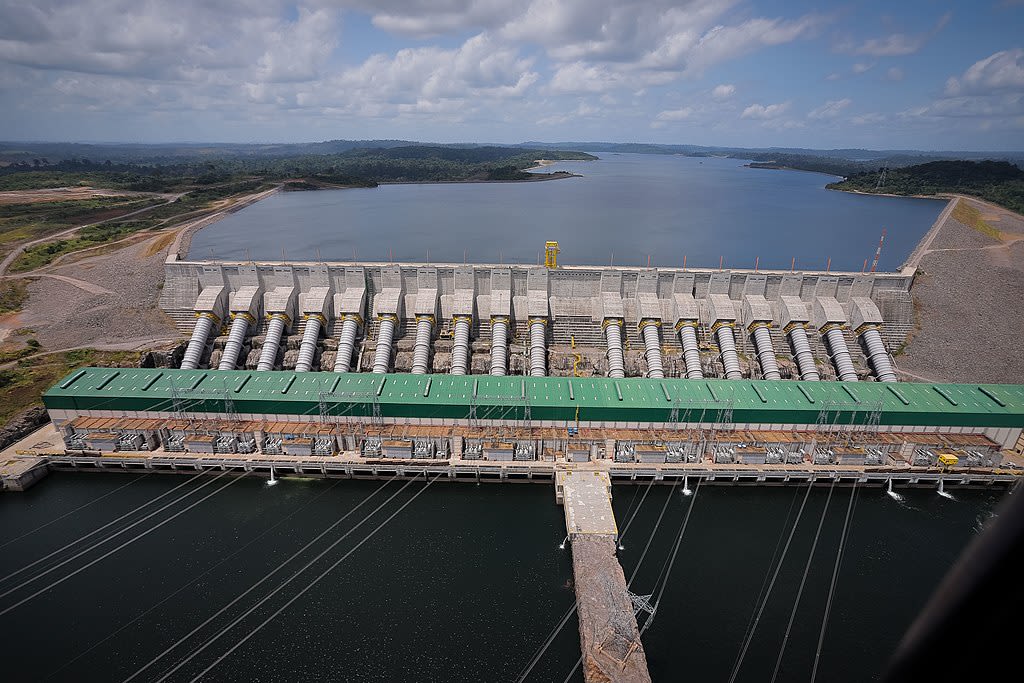
The Belo Monte hydroelectric dam on the Xingu River in the state of Pará, Brazil. Source: Bruno Batista / VPR (licensed under CC BY 2.0)
The Belo Monte hydroelectric dam on the Xingu River in the state of Pará, Brazil. Source: Bruno Batista / VPR (licensed under CC BY 2.0)
Timber tantrums
Two new settlers to come to the area in the late 2000s were dreaming of pulling off a coup. They had set their sights on Morro Alto Farm, a 3,829-hectare landlocked property in the middle of Ituna Itatá (representing 2.6 per cent of its territory).
Evandro Carlos de Oliveira and Wilson Paulo da Mota were no strangers to the region. They had previously claimed ownership of two other properties in the same Indigenous Territory. Together, the Sossego and Serra Dourada farms have an area of 6,431 hectares and Morro Alto is located between the two. The deal to acquire their third piece of land was signed in October 2009, just one month after the indigenous component analysis report was released by Funai, by which time the presence of uncontacted indigenous populations in the area was already known.
The two settlers now needed to be patient. Soon they would be able to make money from selling trees logged on the properties, probably the real purpose behind acquiring the land. But to get hold of a logging permit (known as an Autorização para Exploração Florestal – AUTEF), they had to complete a lengthy process required by SEMAS, Pará's State Environmental Agency.
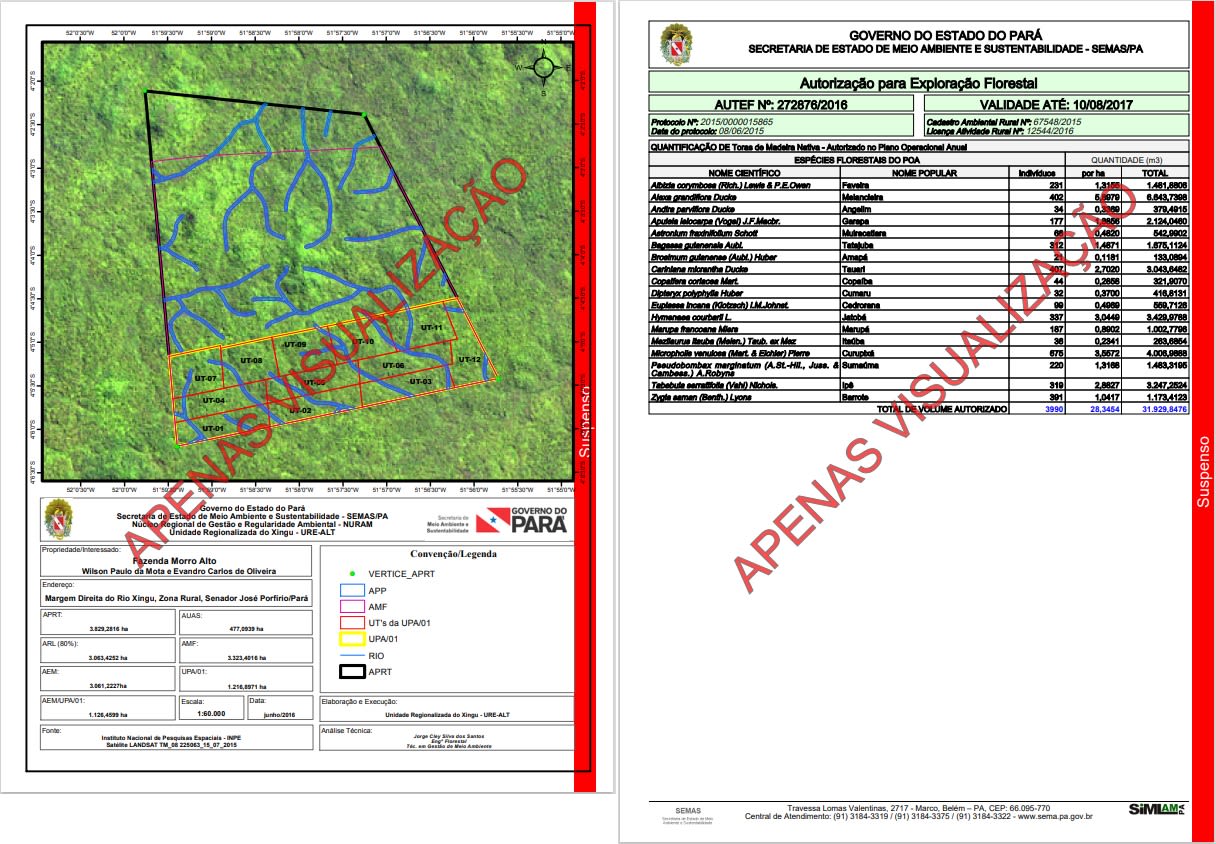
Pages from Morro Alto farm's logging permit (or AUTEF). Source: SEMAS/PA
Pages from Morro Alto farm's logging permit (or AUTEF). Source: SEMAS/PA
Given the sensitivity of the area, the process was a lengthy one. They finally managed to obtain a logging permit in August 2016 – seven years after they first applied.
The extensive and complex analysis, made by some of SEMAS' senior civil servants and experts, was however still negligent in one shocking and important respect. It completely failed to take into account an irrefutable piece of evidence – the fact Funai had denied any access to the land to outsiders since 2011. In fact the analysis published by the state had gone so far as to say that the cutting permit could be issued because there was "no overlap of the area with any indigenous territory." As we will see, the state acknowledged that the area did overlap with indigenous peoples' territories only a few months later.
Logging began as soon as the permit was issued in 2016. For each tree felled, there was no shortage of clients, as the region was now dotted with dozens of sawmills. MadBrasil Eireli EPP and Canoer Industria e Comercio Importação e Exportação Eireli EPP were two of these brand new businesses that had arrived in the Xingu river basin in 2016.
Logging began soon after the permit was issued in 2016
Both sawmills are located in Anapu, a town that attracted international attention in February 2005 when the American missionary Dorothy Stang was murdered, allegedly for defending the legalising of land tenures for rural workers' families and for protesting against the violence of invasions by land grabbers, loggers and ranchers.107
Earthsight found a very familiar name among the buyers of Evandro and Wilson's wood. Based on official timber trading documents issued by Pará's Environmental Agency, Earthsight discovered that these two mills acquired three different species of timber cut on the Morro Alto farm. This timber would be shipped to a client located miles away from the forest and, from there, it could reach the world. That client was none other than Indusparquet.
The transactions between the sawmills and the flooring giant's HQ in São Paulo took place over January and February 2017, generating a volume of 137.69 cubic metres of timber from the indigenous territory.108
Stopped in their tracks
In February 2017, the same month Indusparquet was buying wood from within the reserve, the farm's owners received the first of several nasty shocks. Funai sent a letter to the environment agency in Pará, requesting the suspension of its timber extraction permit (or AUTEF), based on which all logging in the reserve was conducted.
The decision to do so was published by the local authorities in early February 2017, instantly suspending logging in the area.
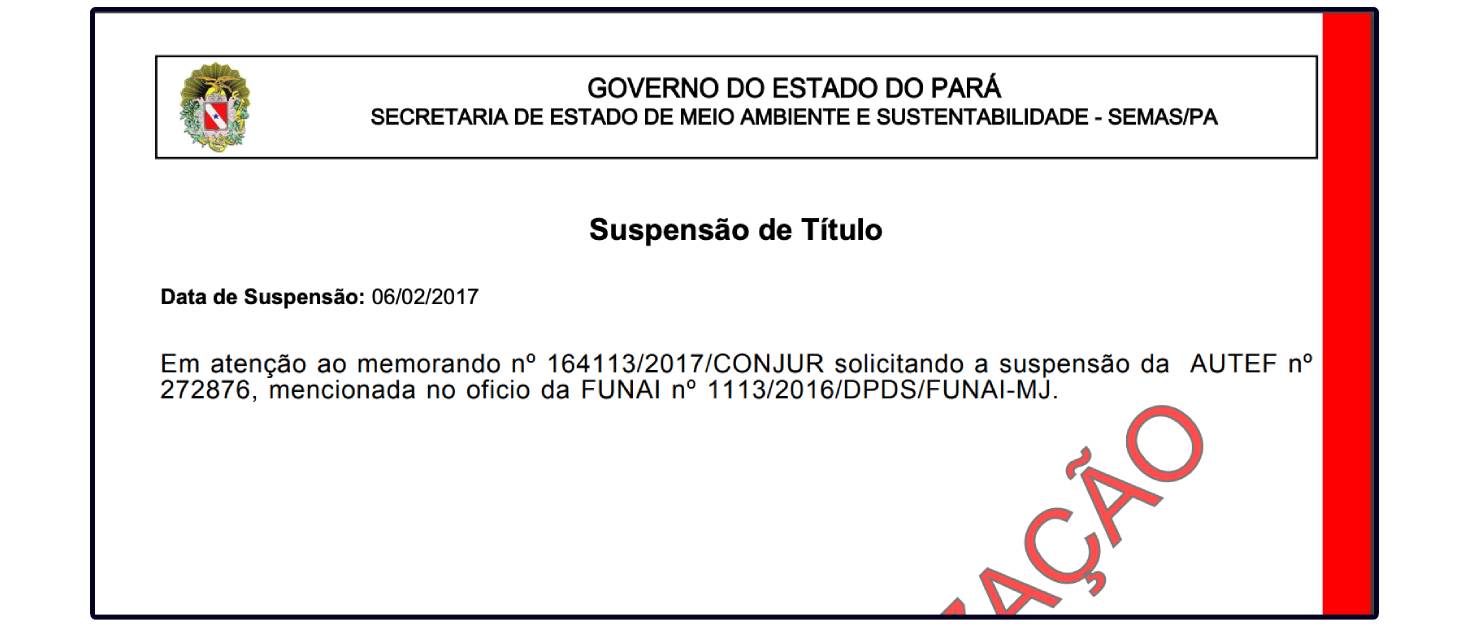
Morro Alto farm's cutting permit (or AUTEF) was suspended in February 2017. Source: SEMAS/PA
Morro Alto farm's cutting permit (or AUTEF) was suspended in February 2017. Source: SEMAS/PA
It is unclear what would have continued to be traded between Indusparquet and these two sawmills had the environmental authorities in Pará not revoked Morro Alto farm's logging licence.
There is no indication that Indusparquet has purchased timber from Morro Alto farm or other sources through these sawmills since 2017. However, this is not a guarantee that illegally harvested timber in the Indigenous Territory is not part of the hundreds of products the company is still buying from Pará.
The same month Indusparquet was buying wood from the farm within the reserve, Funai requested the suspension of its logging permit
A closer look at the sawmill that had supplied Indusparquet with most of the timber from the reserve, MadBrasil, reveals that it was fined BRL 673,000 (USD 129,000) by Ibama for providing false information on the environmental agency's timber tracking system for hundreds of cubic metres of timber. Two of these fines were issued in April and May 2017, mere months after the company sold timber to Indusparquet. It is not clear whether it relates to these shipments.
Both sawmills were fined again in 2020 to the tune of BRL 1,724,836 (337,198 USD) for not having the right permits for wood they processed and for entering false information about the true origin of wood in official databases, on the basis of which all documents of sale and transport are issued.
Neither MadBrasil nor the owners of Morro Alto farm, Evandro Carlos de Oliveira and Wilson Paulo da Mota, responded to our invitation to comment on these statements. Canoer waltalso did not respond to requests for comment.
Morro Alto farm's two owners were fined a total of $2.76 million for violations including the destruction of almost 1,000 hectares of native forest within the indigenous reserve

Ibama applied two sanctions against Wilson in 2021. Source: Ibama
Ibama applied two sanctions against Wilson in 2021. Source: Ibama
Then a few years later in 2021, following a spike in deforestation and increased pressure from environmental and indigenous groups regarding continued encroachments, the two farm owners were penalised for various violations including the destruction of almost 1,000 hectares of native forest within the indigenous reserve, destroying forests not covered by a licence, including within Morro Alto itself, and violating access restrictions for an area where uncontacted indigenous peoples are present. An area of 388.98 hectares within Morro Alto was placed under embargo. The fines issued against the two owners for these breaches total 2.76 million dollars.109
Contacted for comment, Indusparquet did not deny our findings of wrongdoing about the Pará suppliers
Indusparquet did not comment on the findings of this chapter or the fines levied on their suppliers Canoer and MadBrasil. In relation to its suppliers in general it stated only that it has strict policies for the selection of suppliers and document collection and that it was dedicated to enhancing supplier assessment mechanisms. It said that it was implementing a compliance department to manage and map risks and was using the help of various partners to provide risk assessments and improve transparency.
Ituna Itatá indigenous land,
December 2016
Ituna Itatá indigenous land,
December 2020
Malignant intentions – the continued threats to Ituna Itatá
While restrictions on access to Ituna Itatá are still in place, a recent report published in January 2022 by COIAB, the Coordination of the Indigenous Organisations of the Brazilian Amazon, an umbrella group, and OPI, the Human Rights Observatory for Uncontacted Indigenous People revealed that a whopping 22,000 hectares of forests in Ituna Itatá has been devastated since 2011 – 15 per cent of its area.110 An analysis of satellite imagery by Earthsight reveals that deforestation has continued inside Morro Alto farm from where Indusparquet sourced its wood, with more than 700 hectares lost since 2017.
This means thousands of cubic metres of wood have been harvested illegally, in direct contravention of the 2011 Funai order and possibly sold on domestic and international markets.
The record breaking levels of forest fires in the region could also be linked to the growing number of invaders.111 Satellite analysis by indigenous organisations also detected construction of an illegal road to the south of the territory, in a region where isolated indigenous people are thought to be settled.112
.gif)
Deforestation on Ituna Itatá indigenous territory. Photos: Hugo Loss / Ibama
Deforestation on Ituna Itatá indigenous territory. Photos: Hugo Loss / Ibama
It is estimated that 289 km of roads have been opened within the reserve. As in the case of the properties captured by Evandro and Wilson, more than 200 other settlers have used the Rural Environmental Registry (Cadastro Ambiental Rural – CAR), a compulsory but completely self-declaratory registration of rural properties, to claim their rights over land in Ituna Itatá. As a result, estimates suggest that 94 per cent of the Indigenous reserve has now been claimed as private land.113
Cerqueira de Oliveira, the Executive Secretary of one of the Indigenist Missionary Council (CIMI), one of the largest indigenous rights organisations in Brazil, spoke to Earthsight earlier in the year about what indigenous status meant for the legality of land titles within the area. "The Constitution is clear. As soon as the land is recognised as traditional indigenous land based on a Funai study, all [private] titles over it are to be considered void."
Greenpeace said in 2021 that if the squatters were allowed to remain in Ituna Itatá, it would set a very dangerous precedent, that would contribute to "the extermination of more than 100 groups that live in isolation in other indigenous lands and under the same condition in Brazil."
The invasions into Ituna Itatá are spurred on by the anti-indigenous agenda promoted by the federal government and its supporters. Senator Zequinha Marinho is one such politician representing Pará state who is not only Bolsonaro's ally, but also has strong connections with the loggers and miners who have been lobbying for the revocation of the ban on outsiders accessing the land. (Marinho is the same politician who was lobbied by the timber industry to come to its aid in the wake of the Amazon's largest timber bust, Operation Handroanthus, see 'Friends in High Places'.)
According to a report presented by OPI, it was the Senator's idea to halve the Ituna Itatá territory.114 He later suggested to cabinet ministers that an expedition be organised to prove that there were no uncontacted groups in the region. The expedition went ahead in 2020 amidst harsh criticism due to the risks it posed of transmitting disease to indigenous peoples, as the country was severely affected by Covid at the time.115
-932x1411.jpg)
Senator Zequinha Marinho (far right) with President Bolsonaro (second left) and others. The two are close allies. Source: Marco Feliciano / Instagram
Senator Zequinha Marinho (far right) with President Bolsonaro (second left) and others. The two are close allies. Source: Marco Feliciano / Instagram
The group of experts spent three weeks in the region but Marinho's plan suddenly backfired. The group did identify evidence confirming the presence of uncontacted indigenous peoples in the area visited.116 Although they suggested the need for further analysis and the organisation of a new expedition, the matter was declared closed by the government, and it did not consider the evidence collected in the expedition.
As no direct visual contact was made with any of these indigenous peoples, Funai president Marcelo Xavier determined in January 2022 that sufficient reasons existed to revoke the ban on non-indigenous people in the territory.117 Dozens of NGOs and experts managed to mobilise the Pará Prosecutor's Office in protest, which eventually decided to renew the restriction the following month. The government had no choice but to renew the restriction for another three years. However, as seen previously, even the renewal of the access restriction has not stopped continued deforestation from occurring within the reserve. Reports in summer 2022 show continued incursions.
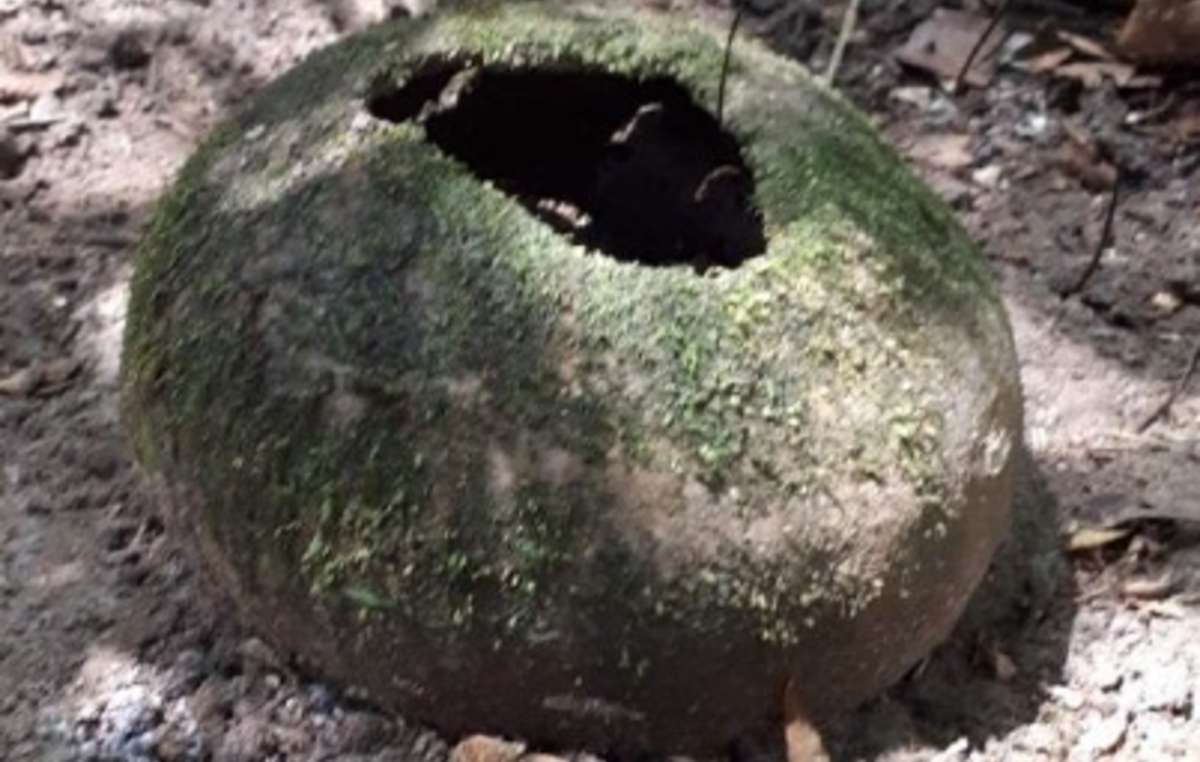
Uncontacted tribe's pot discovered inside Ituna Itatá Indigenous Territory, August 2021. Source: Funai via Survival International
Uncontacted tribe's pot discovered inside Ituna Itatá Indigenous Territory, August 2021. Source: Funai via Survival International
For now, those profiting from the exploitation of Ituna Itatá – including on Evandro and Wilson's properties – are doing so in breach of the Brazilian Constitution and should be held accountable for environmental crimes. Those who have profited from the sale of the timber from the region like Indusparquet are likewise complicit in the problem. Until the protected status of the reserve is formalised, there is no stopping the impacts of land grabbing. Miles of roads will be opened, and sawmills will be set up in the middle of the forest.
Brazil is home to more uncontacted tribes than anywhere else on Earth, yet with the Bolsonaro government recently proposing a raft of anti-indigenous bills to promote increased exploitation of indigenous lands and incidents of violence towards these communities increasing and being allowed to take place with impunity for the assailants, the issue has never been more urgent.
The uncontacted groups in Ituna Itatá have been protected so far, but there will be no room for relocation if the Ituna Itatá territory ceases to be. The end of the forest represents the end of their existence.
From Forest Floor to Flooring

Landmark case – or one-hit wonder?
It was about to be a historic day for prosecutors from the US Department of Justice and US Attorney's office in Norfolk, Virginia. All arguments heard, a sentence in the 'Lumber Liquidators' case was about to be handed down by the district judge at any moment. The company, one of the biggest box stores in the country, had already pleaded guilty to 'knowingly' importing timber cut illegally in the Russian Far East and to making false declarations about the origin of its wood purchases on import declarations. It was now about to hear the consequences of its actions. When the sentence came in February 2016 it was emphatic – the firm was ordered to pay out more than $13 million118 (including $7.8 million in criminal fines) and forced to implement a detailed compliance plan to ensure it did not fall foul of the 'Lacey Act' again.
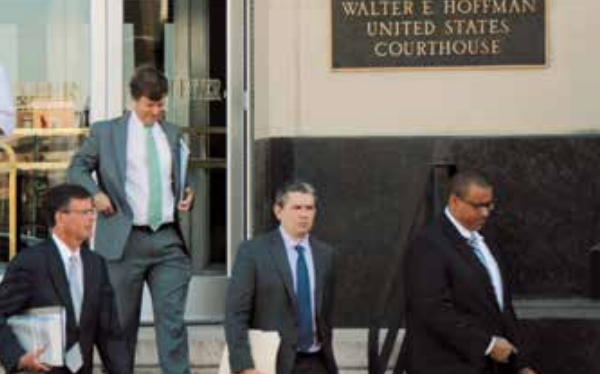
Lumber Liquidators in October 2015 pleaded guilty in federal court to five counts related to illegal logging. Source: Environmental Investigation Agency
Lumber Liquidators in October 2015 pleaded guilty in federal court to five counts related to illegal logging. Source: Environmental Investigation Agency
The first law to ban the trade in wood products produced illegally overseas, a 2008 amendment to the century-old Lacey Act prohibits US companies from importing wood in violation of foreign laws. Penalties vary based on how much the company knew about the crime. If found in breach of its provisions, companies must show they exercised 'due care' on their purchases, to avoid the worst penalties. The legislation was pushed through congress by a bipartisan coalition in response to numerous case studies exposing US consumer complicity in the destruction of the world's forests. Lumber Liquidators' sentencing in February 2016 became a landmark fine for a Lacey Act violation. The illegal wood case, alongside another scandal relating to findings of unsafe levels of formaldehyde in its products, led to the company's stocks plummeting by 90 per cent.
When the court's sentence came, it was emphatic
Dan Ashe, the Director of the US Fish and Wildlife Service, one of the federal agencies responsible for enforcing the Act, had said in the wake of the Lumber Liquidators case that by "knowingly and illegally" sourcing timber from vulnerable forests around the world, the firm had made American consumers "unwittingly complicit" in the "ongoing destruction of some of the world's last remaining intact forests."
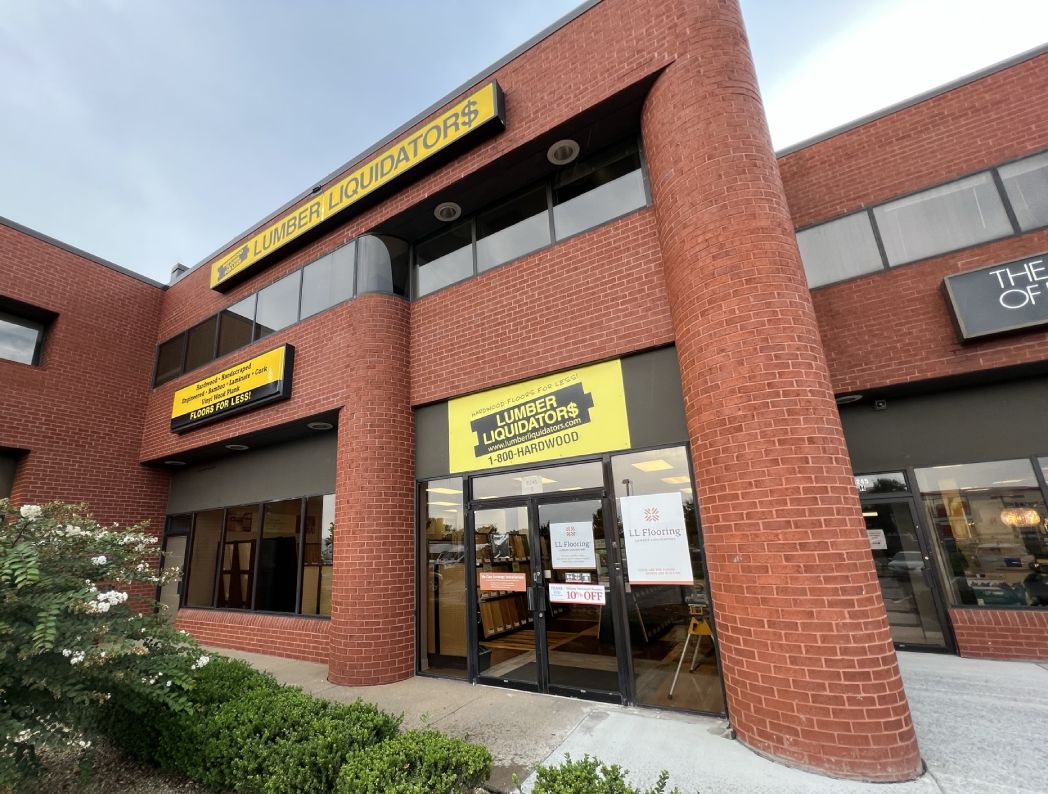
LL Flooring outlet in Northern Virginia. Source: Earthsight
LL Flooring outlet in Northern Virginia. Source: Earthsight
The historic amendment to the Lacey Act on illegal wood was supposed to have ended that complicity in forest destruction and the multitude of affiliated environmental and human rights abuses overseas.
In the 14 years since America's illegal wood ban took effect, there have been just a handful of cases brought for breaches of it, of which the Lumber Liquidators case was by far the largest. Each case took years to build. In pursuing just a tiny number of cases but ensuring that they are big and high-profile, US authorities hope to achieve a deterrent effect, driving better Lacey compliance across America's wood product industry.
The Lacey Act was supposed to end US complicity in forest destruction.
It has failed
The punishments, the theory goes, don't just change the practices of the guilty firms, but scare competitors selling similar products, or buying other wood products from risky parts of the world.
But this approach has signally failed. And nowhere provides a starker example than the case of Indusparquet and wood flooring from Brazil.
The United States' growing importance as a market for risky Brazilian wood
What led the US to ban illegally sourced wood was a series of scandals regarding illegal logging around the world and the complicity of Western consumers. These scandals all related to hardwoods from tropical rainforests. Some of the most high-profile of these scandals related to Brazil, home to the world's largest such forest.119 Mounting evidence showed rampant illegality in the country's logging sector. When the ban was passed in 2008, therefore, one of the first places one might have expected to see an effect was in relation to the South American nation. But that was not to be.
Overall, since the Lacey Act amendments took effect in 2008, Brazil's exports of wood to the US have more than doubled (see chart below). In 2021 Brazil set a new all-time record for the value of its exports of timber and wood products abroad, of almost $14 billion. The massive jump in exports from the previous year was almost entirely down to growth in two major markets: the US and the EU/UK.
Last year, the US overtook China to become the world's largest consumer of Brazilian wood
Not all of this is tropical wood: indeed, a majority is non-tropical products like pine and eucalyptus lumber and plywood, grown in monoculture plantations. Though highly controversial in other ways, such wood is at low risk of having been sourced illegally. However, trade in tropical wood from Brazil to the US has been rising just as fast, if not faster. In 2009, the year after the Lacey Act amendments took effect, the US imported 22,481 cubic metres of tropical lumber from Brazil. By 2019 imports had risen by 160 per cent, hitting a record of 58,345 cubic metres. They have remained at a similarly high level since, despite the impact of the Covid-19 pandemic.
Last year, the US even overtook China to become the world's largest consumer of Brazilian wood. It racked up imports of timber, pulp, paper and wood furniture from the home of the Amazon worth a record $3.8bn in 2021, a massive 36 per cent hike on the year before. Twenty-seven per cent of Brazil's timber and wood product exports were destined for the US that year; a further 20 per cent were shipped to the EU/UK.
This rapid growth has continued into 2022. Brazilian exports of wood-based products (excluding wood pulp and paper) in June 2022 were worth $483.5 million, up 22 per cent on the same month the previous year. The highest risk categories were rising fastest. Sawn hardwood exports during the month grew 91 per cent from US$14.1 million to US$26.9 million compared with the same period the previous year.
This contradiction cannot be explained by illegal logging becoming less of a problem in Brazil.
Quite the opposite. The ex-chief of police for Amazonas state who supervised the largest illegal timber bust in the Amazon's history and led other major operations to combat export fraud estimates that 90 per cent of wood leaving the nine states that are home to the so-called 'Legal Amazon' is illegal.
Studies show many Brazilian wood species in high demand in the United States are at most risk of being illegally logged
Scientists have pointed to a surge in 'fake legal logging' in the Amazon in recent years with widespread existence of fraud in timber accounting systems giving an appearance of legality to illegal wood. Other analyses show that many of the species in most demand in the United States are also at most risk of being illegally logged. Such findings point to the need to adopt a highly precautionary approach to sourcing wood from Brazil.
There is one other possible explanation for how growing imports of wood from a country suffering from rampant illegal logging can be possible if the Lacey Act is working. Perhaps US buyers, rather than avoiding Brazilian tropical wood altogether, have just become very adept at sifting the good from the bad?
Enter Brazil's largest flooring exporter
Indusparquet is one of the largest exporters of high-risk tropical wood to the US. The firm's wood is all over America. Pick a city on the US map and type it into Indusparquet USA's handy 'store locator' function, and chances are, a store stocking tropical wood products manufactured by Brazil's largest flooring company is just a short drive away.
The US is by far the most important market for the Brazilian giant – accounting for 90 per cent of Indusparquet's timber exports. The firm claims to have pretty much single-handedly driven a huge surge in popularity among US consumers for Brazilian tropical hardwood flooring.120 Indusparquet boasts that its flooring has been used in numerous prestigious locations, such as the Mirage Hotel in Las Vegas and the house of actress Jennifer Aniston (and, farther afield, even the Taj Mahal). But this belies the real secret of its success: how with its bargain basement offers, it has made what was once an expensive, niche product truly mass market.
Indusparquet's wood is all over America
The 2018 seizures of timber by Brazilian authorities nicknamed Operation Patio should have raised serious concerns about Indusparquet to prospective US customers. The other scandals the firm has become involved in were also no great secret for those bothering to look, and should have also triggered red flags, and perhaps shifted US buyers to alternative suppliers.
Instead, as the scandals surrounding Indusparquet multiplied, US imports of wood from the company actually increased. Previous analysis by Earthsight showed how despite Indusparquet's involvement in Operation Patio, for example, exports of timber afterwards rose by 15 per cent.
Between January 2017 and August 2022, Indusparquet exported a total of 27,590 tonnes to the United States. The total weight of all that wood is more than the Statue of Liberty, including its concrete base.121 It is flooring with a retail value of approximately $250 million: a quarter of a billion dollars.122 Twenty-three per cent (by weight) of this total was multi-layered 'engineered' flooring (with a thin top layer of tropical wood) produced by Indusparquet brand Masterpiso in the southern Brazilian state of Paraná. The rest was solid tropical hardwood flooring made at the company's headquarters in Tietê, São Paulo. This is the same location that was raided as part of Operation Patio by Brazilian authorities in 2018, as a result of which the company was prosecuted for bribery, in a case that is still ongoing (see 'Our man in São Paulo').
Indusparquet boasts that its flooring has been used in the Taj Mahal and the Vatican
The products on offer to the US market include flooring made from several over-exploited hardwood species growing in the Amazon such as Cumaru (Brazilian teak), Tauari, Jatobá (Brazilian cherry), Sucupira (Brazilian chestnut), Ipê (Brazilian walnut), and Angelim.
Who are the US companies who continue to buy this disreputable Brazilian firm's goods, despite the legal risks?
Indusparquet has sold a quarter of a billion dollars' worth of exotic wood flooring to the US
More than half of Indusparquet's US exports are shipped to its own subsidiary in the country – Florida-based BRW Floors. This US arm was co-founded by veteran Indusparquet owners José Antonio Baggio and Luiz Fransisco Uliana and is managed by Baggio's daughter. BRW does not sell this flooring directly to consumers but distributes it to thousands of flooring retailers across the United States.
Some customers are so big they choose to import direct, however.
The American client
In the first of the four scandals involving Indusparquet revealed in this report, 'The Fixer in Paraná', wiretaps uncovered evidence which implicates the firm's co-owner and a Brazilian official in an alleged corruption scheme to secure supplies of bracatinga, a wood species endemic to Brazil's last remaining Atlantic Forest. The court case transcripts revealed that the hunt to obtain this wood had been triggered by an unnamed 'American client' of Indusparquet, which was demanding increased volumes of flooring of the species.
"We had done some business with bracatinga [...] By request of a client in the United States who liked the wood, we went after buying more bracatinga," Indusparquet co-owner José Antonio Baggio had told the court hearing the case in the southern Brazilian state of Paraná in November 2021.
But the question remained – who was the mystery client in the US whose demand for bracatinga had caused the whole fuss in the first place?
Earthsight's research strongly suggests Baggio's American client is the largest specialist flooring retail chain in the US
Further research by Earthsight strongly suggests that the client Baggio was referring to is none other than America's largest specialist flooring retail chain, Floor & Decor.
Headquartered in Georgia and with nearly 90 shops throughout the US, Floor & Decor had sales worth $3.4bn in 2021, up a massive 41.5 per cent on the year before.123 Shipment records obtained and analysed by Earthsight reveal that the firm has been selling Indusparquet-made Brazilian tropical flooring since 2015, and that in the period since – during which all of Indusparquet's scandals took place – it was the firm's single largest US customer.
Floor & Decor is also one of only two firms in the US which Earthsight found offering flooring made from bracatinga (scientific name Mimosa scabrella) for sale online. It stocks a 'Bracatinga Merida' distressed engineered hardwood flooring product under the 'Quest Exotic Hardwoods' flooring line.124
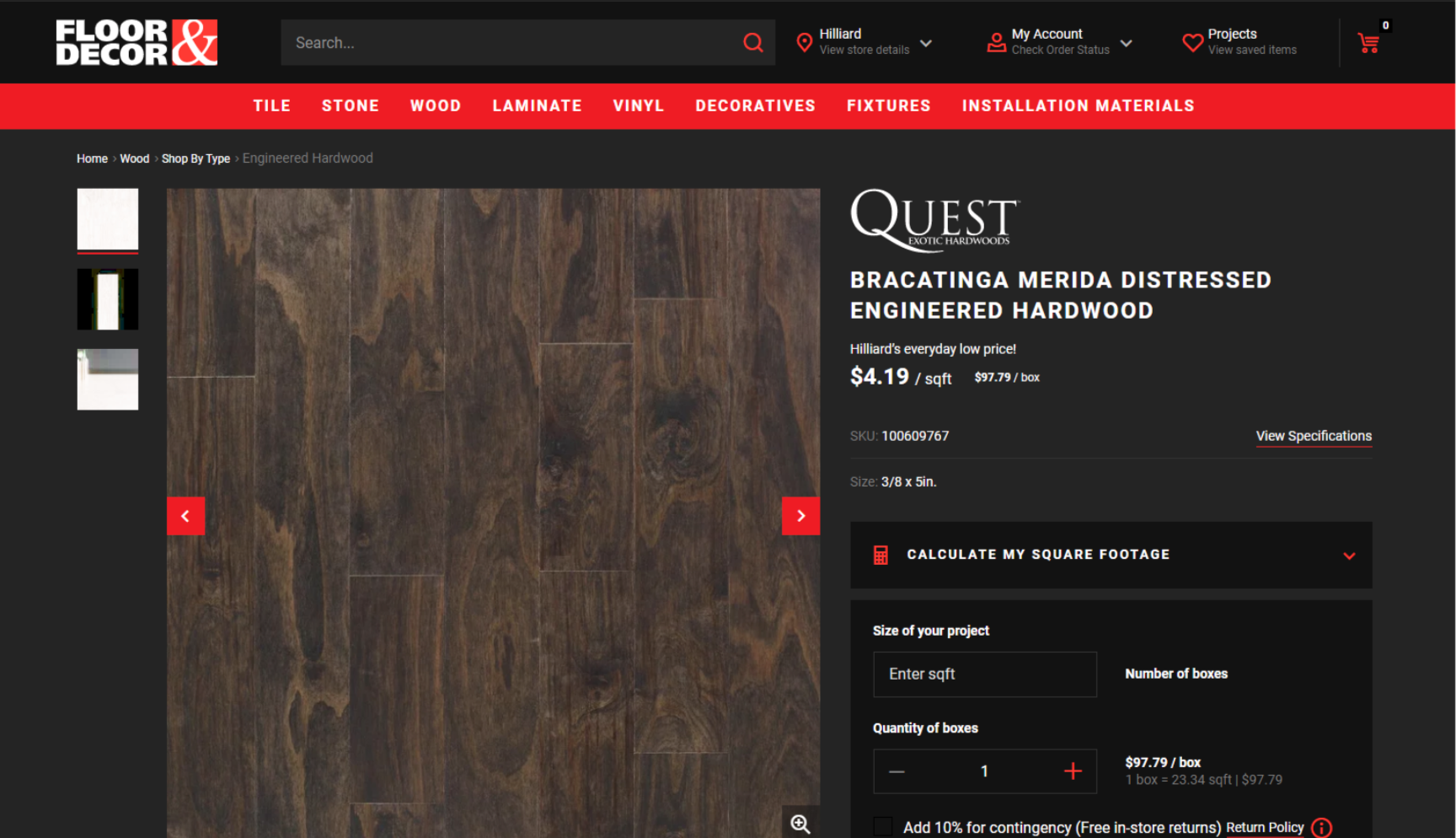
Bracatinga wood flooring on sale on Floor & Decor's website. Source: Floor & Decor
Bracatinga wood flooring on sale on Floor & Decor's website. Source: Floor & Decor
Once we discovered that Floor & Decor also had a bracatinga range, we took a closer look at shipment records and found more telling clues.
We identified at least four shipments of bracatinga wood flooring weighing 96 tonnes sent by Indusparquet's subsidiary in Paraná (Compensados Império or Masterpiso), to the United States, received by two US freight forwarders. From past exposés, Earthsight knew these same freight firms had been used as intermediaries by Floor & Decor for its Brazilian imports from Indusparquet.
Then the clincher. Although the ultimate consignee isn't named, the bracatinga merida branded flooring line exclusively sold by Floor & Decor is specifically referenced in the description of the shipments' contents.
Earthsight was able to purchase a box of Indusparquet-made bracatinga flooring, manufactured in 2019, from Floor & Decor
The Paraná case, which Floor & Decor likely unwittingly triggered, isn't the only scandal it somehow managed to overlook.
In November 2018, Earthsight exposed how Floor & Decor continued to buy wood from Indusparquet in spite of the widespread publicity surrounding the company's involvement in the massive timber bust nicknamed Operation Patio (see 'Our man in São Paulo', above).
Though the firm continues to advertise the bracatinga merida product for sale on its website, shipment records suggest in November 2019 Floor & Decor finally stopped importing from Indusparquet.
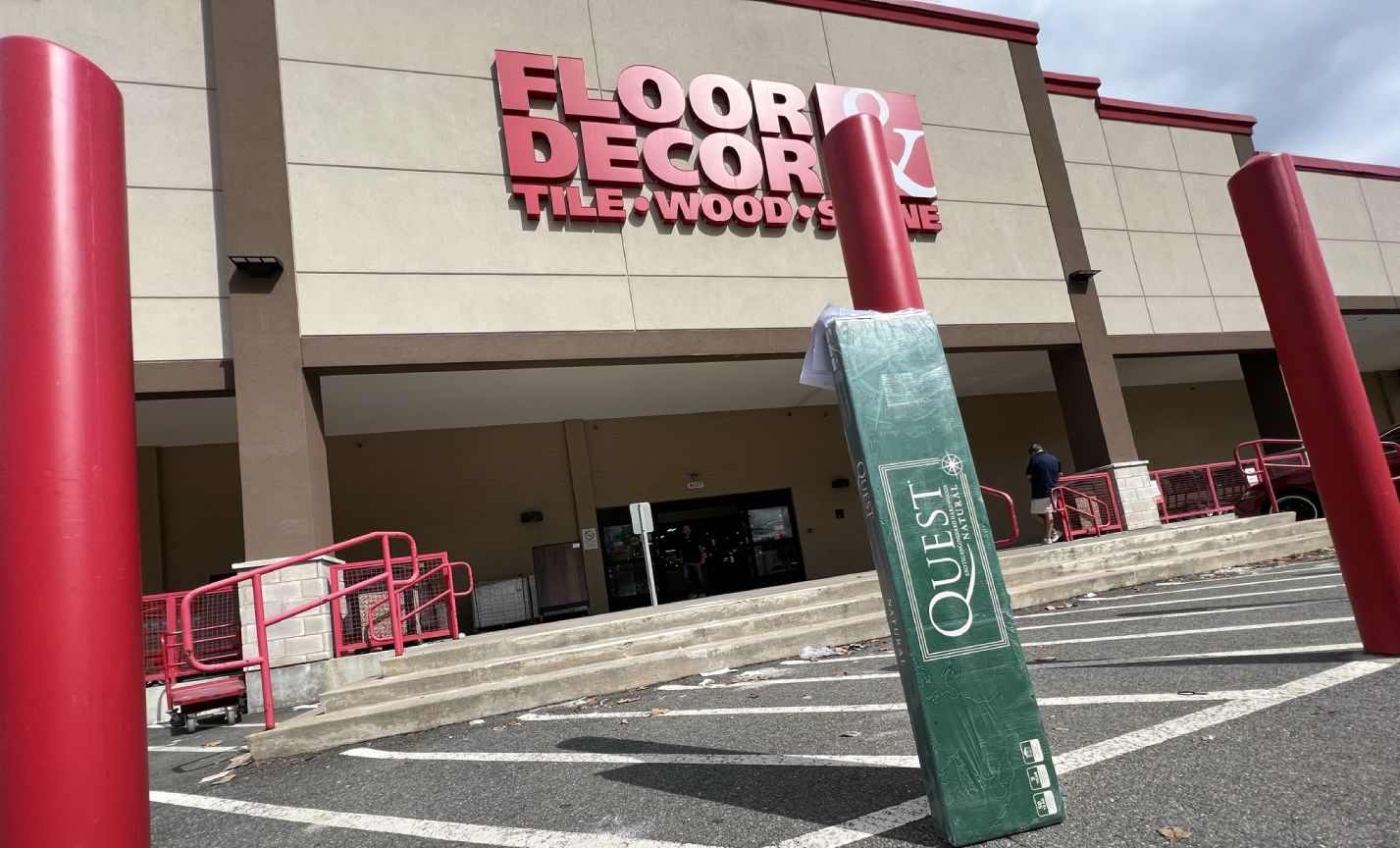
Box of Indusparquet-made 'Bracatinga Merida' flooring purchased by Earthsight from a Floor & Decor store in Northern Virginia in September 2022. Source: Earthsight
Box of Indusparquet-made 'Bracatinga Merida' flooring purchased by Earthsight from a Floor & Decor store in Northern Virginia in September 2022. Source: Earthsight
Challenged specifically by Earthsight by Earthsight on whether it was, or could be, the mystery American client referred to in the Paraná court case, Floor & Decor stated that it was committed to responsible sourcing practices and that it had not purchased any Brazilian-made flooring from Indusparquet and its affiliates since 2019. It told us that it last purchased the 'bracatinga merida' product in 2019 and that this line has since been discontinued. It stated that while the product cannot now be found by searching its website, there is a residual product page for it found in internet searches, which it is attempting to resolve. We do not allege that Floor & Décor was aware of the alleged corruption scheme to procure bracatinga wood described in this report.
While the firm may not have purchased any new flooring from Indusparquet of late, the scandal-prone Brazilian firm's products continue to be sold by it. Earthsight was able to purchase a box of 'bracatinga merida' flooring, manufactured in 2019, from Floor & Decor's store in Northern Virginia in September 2022.
One might have thought that the loss of its largest US client would have been a major blow to Indusparquet, and perhaps even encouraged it to consider mending its ways. But as it turned out, it had already lined up a replacement client of similar stature. A surprising one.
Repeat offender
In April 2018, the same month that lawsuits were filed against Indusparquet and Baggio regarding the Paraná corruption scandal, and just a month before Ibama swooped on the firm's headquarters in São Paulo in an unrelated investigation, the first shipments from Indusparquet to a prestigious new customer began arriving at US ports.
Despite being under probation after being found guilty of knowingly buying stolen wood, its purchases supposedly under the careful watch of independent auditors and the US Department of Justice, that new client was none other than Floor & Decor's arch-rival Lumber Liquidators.
Lumber Liquidators (now called LL Flooring) had promised to clean up its supply chain
Under the compliance plan Lumber Liquidators agreed with the court alongside its $13 million in fines and other penalties, it had promised to take additional steps to clean up its supply chain. Its performance against this agreed plan during the four-year-long probation period was to be periodically assessed by an independent auditor, with the results reviewed by the US Department of Justice.
The plan required the firm to set up a specialised Lacey compliance team, and conduct detailed risk assessments of all its wood suppliers, with those in Asia and South America taking priority: an obvious recognition from the drafters that these are particularly high-risk regions. Factors listed in the plan as flagging a supplier as 'high-risk' included reported incidents of illegal or unethical logging and corruption in the country of harvest or relating to the species concerned. They also included the level of vertical integration between forest and supplier, and 'legality concerns noted by government'.125 If considered high risk, a supplier would be subject to even more rigorous checks, including on-site inspections at least every quarter.
REVEALED: US firms bet big on risky Brazilian timber imports after a helping hand from Bolsonaro
— Earthsight (@earthsight) February 2, 2021
A new @earthsight report reveals how a 🇧🇷 flooring giant fined $250,000 for alleged illegal timber practices was let off the hook by the gov't#UntamedTimber https://t.co/lIYLQbN2pW
Given what was well known at the time about Brazil in general, about Indusparquet in particular, and about the tropical species it was supplying, it is hard to see how the firm could have been classified as anything other than high-risk. Yet Earthsight's research shows that if it was, the supposedly rigorous checks this required somehow failed to capture obvious red flags. It is also hard to see how the independent audits failed to spot a problem. It doesn't help that the reports have largely remained secret. Only one of four court mandated audit reports – prepared by law firm Grant Thornton and covering the period January 2017 to May 2018 – is publicly available, and even that is heavily redacted. What remains, which does not make a single mention of Brazil, let alone Indusparquet, offers few clues.
Lumber Liquidators started purchasing Indusparquet engineered floors in April 2018 despite plentiful warning signs, and continued after the May 2018 seizure, despite news about illegal timber scandals involving the company being well publicised, including by Earthsight. In 2019 its purchases from the scandal-prone firm were more than double those of the previous year. Between May 2018 and the end of Lumber Liquidators' probation period on 6 October 2020, the company imported at least 6.3 million square metres of this flooring, with an approximate retail value of $6 million.
Lumber Liquidators imported $6 million of flooring from Indusparquet between May 2018 and the end of its probation period
Even the publication of Earthsight's report Untamed Timber in January 2021, which showed how Indusparquet had evaded the payment of several fines for illegal logging under highly dubious circumstances, did not deter the company from remaining a loyal Indusparquet customer. Its purchases of engineered flooring from Compensados Império, Indusparquet's sister company in Southern Brazil, continued until at least as recently as October 2021. These included products made with surface layers of Brazilian Oak (Tauari) and Brazilian Cherry (Jatobá) and sold under the product line names 'Forest Hill', 'Esperanza', 'Bandera' and 'Padre'.
Earthsight wrote to Lumber Liquidators (now called LL Flooring) to give it an opportunity to comment. It did not respond.
Expanding influence across the US
Despite the publicity surrounding Operation Patio, and details of the numerous other serious court cases against the firm documented in this report being publicly available to any qualified lawyer through a searchable Brazilian database, in 2021 Indusparquet's sales in the US hit a record high. The firm shipped 6,234 tonnes of flooring to US ports – up 23 per cent compared to 2020, and up seven per cent on 2019 (pre-Covid). This is flooring with a retail value of approximately $50 million.126 It is enough precious tropical wood to floor the Pentagon five times over.
If the Lacey Act was working as intended, US importers and retailers should have been well aware of the risk inherent in these products and avoided them like the plague. But the opposite seemed to be the case.
That's enough precious tropical wood to floor the Pentagon five times over
Lumber Liquidators wasn't the only big new US client Indusparquet managed to pick up in spite of the growing scandal surrounding the company. In 2019 the firm began supplying large volumes to Bison Innovative Products, a Colorado-based firm which specialises in selling external decking 'tiles', especially those for use on rooftops. It sells these in a range of South American tropical species like the highly threatened Ipê, Cumaru, Massaranduba and Garapa.
The firm boasts that its products have been used to build government facilities, as well as well-known libraries, hotels, children's hospitals and parks. Its clients include the University of California, the Hyatt Regency hotel chain, the AT&T Performing Arts Center in Dallas and the Museum of Modern Art in New York City, to name but a few.
Bison's name disappeared from shipment records in March 2021, soon after Earthsight published its previous report on Indusparquet, Untamed Timber. By that time the firm had notched up 3,571 tonnes of purchases. However, an almost equal monthly volume of Indusparquet shipments continued to be imported into the US until December to an anonymous buyer, with the same commodity descriptions, and shipped through the same port. Bison did not issue a substantive response to a request for comment, saying only that it would review the information provided.
Indusparquet has also continued to pick up new distributors for the products it imports into the US on its own behalf. In July 2019, Indusparquet USA signed a deal with Dallas-based US flooring firm Fuzion to distribute its products across southern states like Texas, Oklahoma, Louisiana, Arkansas, Mississippi and western Tennessee. In 2021, it expanded its distribution agreement with Galleher, one of the largest flooring manufacturer/distributors in the US. Neither Fuzion nor Galleher responded to requests for comment.
One of the 'big three' US box stores, Menards, is an Indusparquet client
In what appears to be Indusparquet's biggest retail coup to date, Earthsight has even found evidence to indicate that major US DIY chain, Menards, is stocking its flooring. The company, which reported $10.7bn in revenue in 2020, is one of the 'big three' US box stores alongside Lowe's and Home Depot.
Earthsight found that the only tropical species of solid wood flooring on sale at Menards is one supplied by Indusparquet (and branded with the name of the firm's US subsidiary, BRW Floors). It is made from what it calls 'Brazilian Pecan', the common US trade name for the tree species Guaiuvira (Patagonula americana) which like bracatinga grows in the Atlantic Forest.127 Markings on a sample of this product purchased by Earthsight in September 2022 indicate it was made not in Brazil but across the border in Paraguay, which is also home to these forests. It is offered at the bargain basement price of just $22.84 per square foot. We reached out to Menards for comment about the scandals linked to its supplier but received no response.
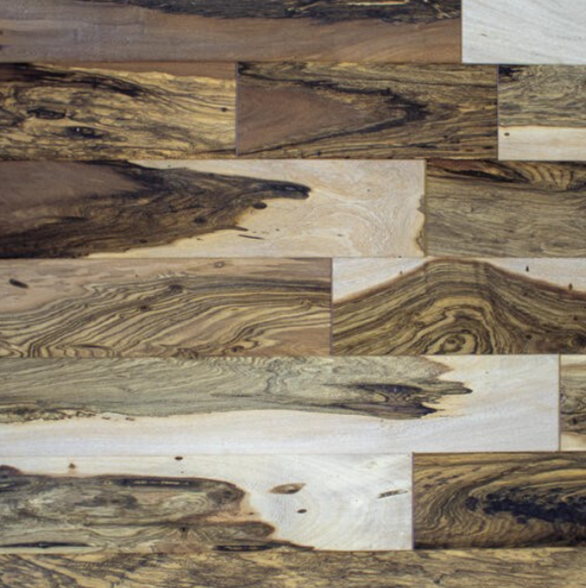
Brazilian Pecan made by Indusparquet on sale on Menards' website. Source: Menards
Brazilian Pecan made by Indusparquet on sale on Menards' website. Source: Menards
European customers
Though the US is by far the most important market for Indusparquet, it is not the only one.
Across the pond in Europe, Indusparquet's subsidiary in France, CPF Parquet has kept its European clientele supplied for 15 years. About four per cent of Indusparquet's exports are to Europe, and most of those are to this French subsidiary. Its showroom near Nice ensures the needs of individuals are met too. Earthsight also identified another French Indusparquet subsidiary named Casabrasil Biotech Sanches, which sells exotic woods directly to professional and private clients.
While Earthsight was not able to trace Indusparquet's products to any high-profile retailers in Europe, they have certainly been used in high-profile projects there. The firm boasts of having supplied tropical flooring for use in the Vatican in Rome and Dolce and Gabbana stores in Milan.
Indusparquet sales to Europe have remained roughly steady over the last few years, at around 20 tonnes or one container per month, mostly of outdoor decking. It is hard to see how these can be compliant with the EU equivalent to the US Lacey Act – the EU Timber Regulation – which goes beyond it, by not only banning import of stolen wood but also requiring firms to ensure the risk of sourcing such wood is reduced to a 'negligible' level.
European firms are also connected to Indusparquet in other ways. French-owned European DIY retail giant Leroy Merlin, for example, which has 464 stores across the world, sells Indusparquet flooring at its branches in Brazil. Leroy Merlin's failure to address the environmental risks associated with Indusparquet's products may well be in breach of France's 2016 Duty of Vigilance law, which compels large French firms to take action to avoid complicity in environmental damage and human rights abuses, including overseas. Leroy Merlin did not respond to requests for comment.
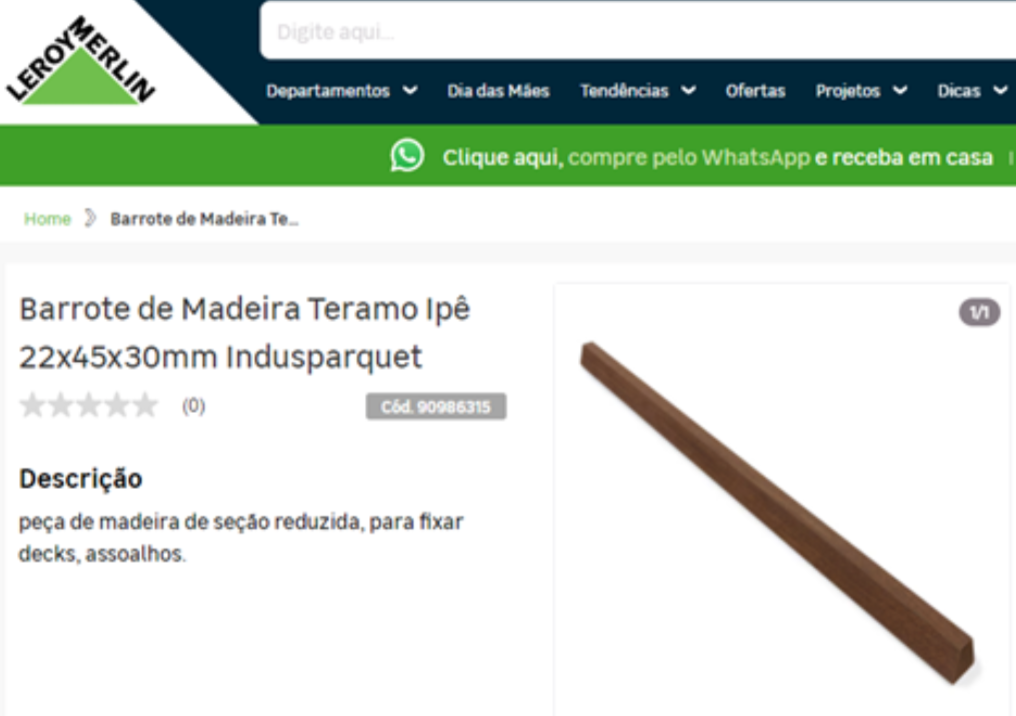
Indusparquet product made from Ipê on sale at Leroy Merlin in Brazil, 2022. Source: Leroy Merlin Brazil
Indusparquet product made from Ipê on sale at Leroy Merlin in Brazil, 2022. Source: Leroy Merlin Brazil
Red flags everywhere
That Lumber Liquidators was able to source from a firm like Indusparquet despite having the most closely monitored wood purchases of any firm in America is even harder to understand when one considers the other red flags which were readily available to the firm and those charged with policing it, as well as to Indusparquet's other US customers, including Menards and Floor & Decor.
Indusparquet's co-owner was recently giving talks on the importance of traceability of timber supplies and of wood certification but it is hard to take such words seriously when the company's sourcing patterns are scrutinised more closely. Brazilian records obtained by Earthsight and accessible to any company making enquiries show that in the last six years Indusparquet has received wood from 416 different sawn wood suppliers, and that figure only includes suppliers in four Brazilian states for which we were able to obtain data.
Each sawmill is likely to be receiving logs from numerous different places in turn, so the ultimate number of forest sources from which the flooring firm is getting its wood is likely an order of magnitude higher still. And these are just the official figures – from a system which is known to be heavily gamed and subject to widespread fraud.
Indusparquet has received wood from 416 different sawn wood suppliers in the last six years
A closer look at just a small fraction of Indusparquet's sub-suppliers this report covers shows they have collectively notched up 3.7 million dollars in fines for falsifying information on official documents about the origin or volume of timber, not having the right permits to cut or store timber and a number of other violations. These suppliers have sourced wood from protected areas, threatened indigenous reserves and have been charged by prosecutors in major illegal timber cases involving allegations of bribery and large-scale manipulation of the databases that manage timber credits.
Affidavits given by Indusparquet's staff in the Paraná case in 2021 underline the mind-boggling complexity of the firm's supply chains in Brazil. Three separate staff claimed to each handle over 30 calls a day from prospective wood suppliers.
There is general consensus among supply chain experts that environmental, social and governance risks (such as sourcing illegal wood) increase dramatically as supply chain complexity and diversity rises, while the ability to conduct meaningful due diligence reduces.
These suppliers have sourced wood from protected areas, threatened indigenous reserves and have been charged by prosecutors in major illegal timber cases
It can only be assumed that the legality auditors employed by Lumber Liquidators to assess the riskiness of its purchases from Indusparquet felt that this risk was fine because the documentation provided by the government's DOF system traced all the wood back to the place of harvest.
But it has been clear for many years that this system cannot be trusted. The cases involving allegations of fraud in the system involving Indusparquet are the tip of an iceberg which goes back many years.
Earthsight and Mongabay spoke to Renato Morgado of Transparency International Brazil, who told us that corruption "is a structural problem in the timber sector. Especially in the native wood exploitation sector, corruption ends up being a factor that makes illegal logging possible."
He told us there were three commonly used practices seen in the timber sector that were of most concern: fraud in the system that controls the movement of wood in online databases such as Sinaflor; corruption and collusion between public and private agents (whether to issue fraudulent licenses, to change environmental rules or at the inspection stage); and money laundering.
As far back as 2008, it was discovered that logging companies had hacked into the database and adjusted the data, allowing 1.7 million cubic metres of illegal logs from the state of Pará to be laundered.128 This was likely the single largest illegal timber case in the history of planet Earth.
It has been clear for many years that this system cannot be trusted
In 2014 and again the following year, Greenpeace published further shocking findings revealing systematic fraud within Brazilian wood tracking and legality assurance systems. One of the many case studies they exposed focused on a single licensed forest in Pará in the Amazon, from which implausibly vast quantities of precious Ipê timber were claiming to originate. Authorities discovered that these claims in the DOF system were fraudulent, and that illegal wood with an ultimate export value of over $7 million had likely been laundered as a result.
Further evidence of the continued rampant fraud in these systems came in 2018, when another Greenpeace report on Pará proved once again the "inadequacy of official documentation as a guarantee of the legal origin of Amazon."
Given these well-documented problems with the DOF system, Lumber Liquidators' auditors should never have relied on it as proof of compliance with the firm’s court-imposed wood legality checks. The US Department of Justice should not have accepted it as proof of compliance with those checks either. But it would appear that they did.
Implications for the Amazon
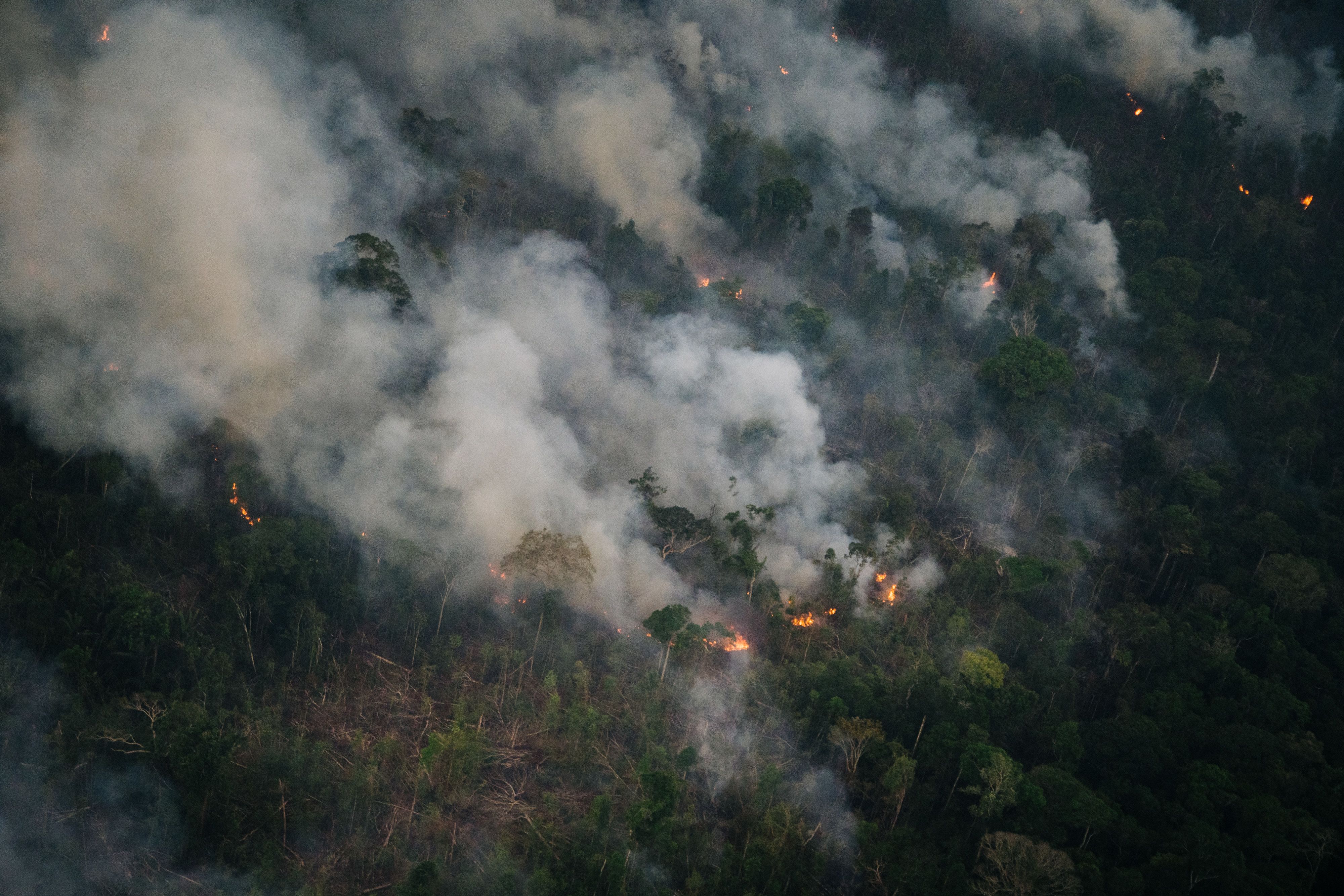
Understanding illegality
This story contains important lessons for efforts to address the ongoing destruction of Brazil's forests, and the devastating impacts that destruction is having on both people and the planet.
The world faces a climate emergency, deforestation has a big role in driving it, and the Amazon may be approaching a point of no return where it becomes a source rather than a sink for carbon. There is no longer any time for mistakes, so it is more essential than ever that lessons are learned.
Elections are pending in Brazil, which may herald a new administration, and with it new hope. Meanwhile, the US government has announced a series of fresh commitments to helping address deforestation in Brazil and has new legislation under consideration which aims to address its role in driving that deforestation by banning imports of agricultural commodities produced on illegally cleared land.
Understanding the true nature of illegality in Brazil's forests is key to addressing the problems facing them
But renewed effort and commitment by a fresh Brazilian government, and expanded action by the US, will both come to nought if they do not address the real nature of the problems Brazil's forests face.
Illegality is central to this. Ninety-five per cent of the clearing of forests for agribusiness in Brazil during 2013-2019 is reckoned to have been illegal.129 A recent study found that at least 55 per cent of all logging (which is selective and so does not directly cause deforestation) in the Brazilian Amazon state of Pará is illegal, and that the area illegally logged is increasing at the rate of 20 per cent a year.130 These numbers are likely to be typical of the situation elsewhere in Brazil. Even these shocking figures are only able to assess some forms of illegality and can be certain to underestimate the true extent of the problem. Policy actions to rein in legal logging and forest clearance, aside from threatening livelihoods and economic development, are also pointless in such a lawless environment, since they cannot be expected to be complied with.
There is a persistent misunderstanding, however, especially in consuming countries, about what 'illegal' means when used to refer to what is happening in the world’s biggest forested countries.
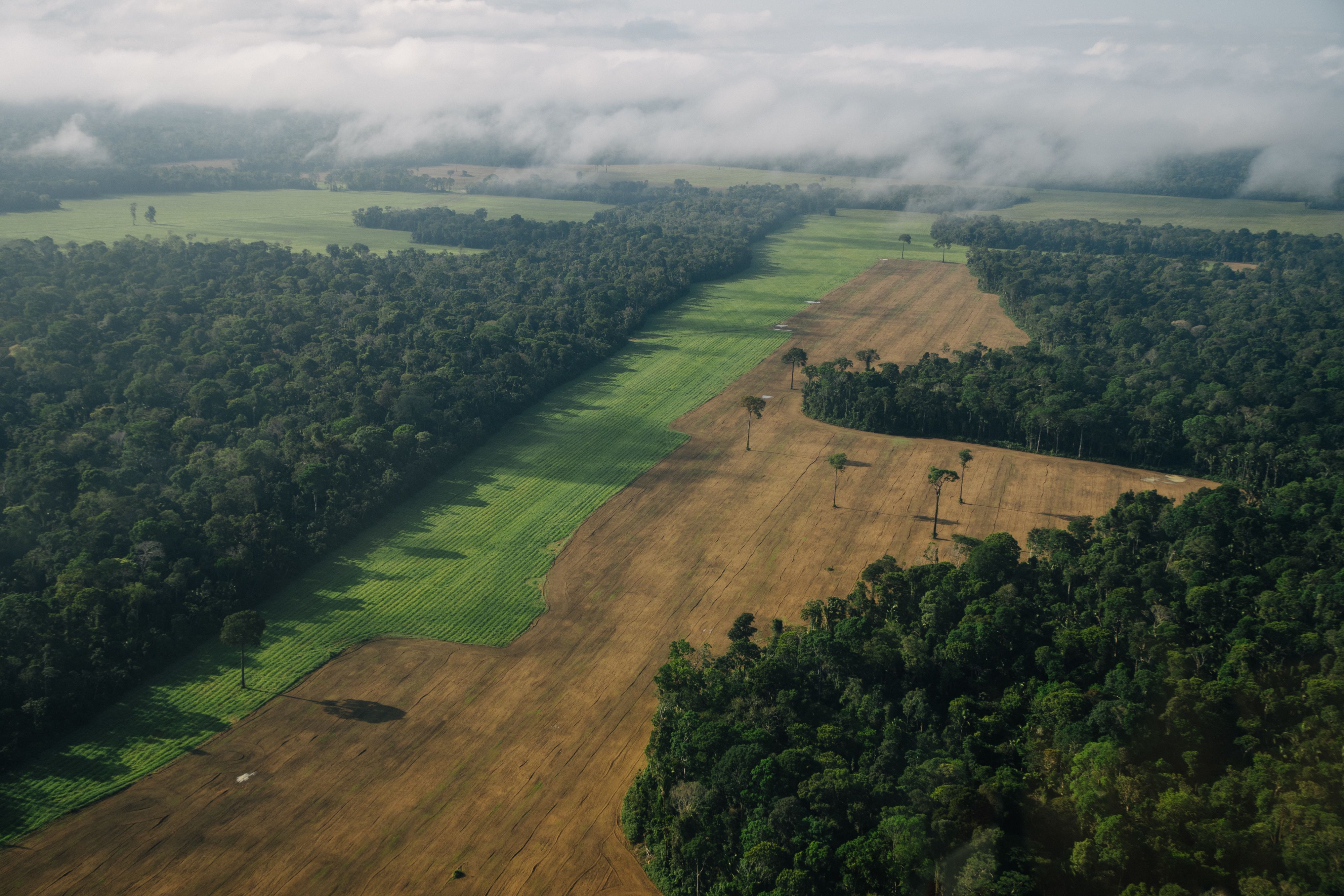
Deforestation in the Amazon. Source: ClimaInfo
Deforestation in the Amazon. Source: ClimaInfo
It is commonly assumed that most 'illegal' logging or deforestation is clandestine in nature, conducted by criminals entirely outside of normal channels, the goods smuggled to market, much like drugs. The reality could not be more different.
Almost all illegal deforestation and illegal logging which takes place worldwide happens under some kind of government authority, and nearly all the goods produced as a result are traded entirely openly and accompanied by genuine paperwork. The problem is that permissions to cut or clear are illegally granted, corruptly or otherwise, and their conditions systematically breached. Government-mandated traceability systems, where they exist, are flawed and open to rampant abuse. In many cases, the people at the very top of government don't even want the country's laws followed. Everywhere, the goods are considered legal by relevant authorities at the point at which they are exported. It all gets mysteriously 'fixed'. The 'Fixers' come in various shapes and sizes, from low-level officials right up to the president. Their paymasters are always the same though: the agribusiness and timber industries.
The 'fixers' come in various shapes and sizes, from low-level officials right up to the president. Their paymasters are always the same though: the agribusiness and timber industries
This happens because of wider failures of governance, failures which the cases involving Indusparquet illustrate.
Individual officials are corrupted. Where wrongdoing is detected, inexplicable decisions by judges see wrongdoers walk free, while the honest officials who brought the cases have their efforts rewarded with demotions. Politicians in hock to the powerful agriculture and timber industries actively undermine enforcement, by gutting relevant agencies, inserting untrained place-men to run them, and even interfering in individual cases at the behest of the industries they are supposed to be regulating. Poor systems and procedures, clearly open to abuse, are allowed to remain unreformed.
Lessons from timber
As other drivers of the destruction of Brazil's forests, like beef and soy – and the fires lit to clear land for them – have taken centre stage, the role of logging has been somewhat forgotten.
But it is extremely important. Though it does not lead directly to deforestation, it thins the forest, making it more susceptible to fire131, and the roads and trails built to access the high value trees provide an entry point for the ranchers and soy farmers, enabling them to clear the remaining forest. For every commercial tree removed, 27 other trees more than 10cm in diameter are damaged, 40 metres of road are created and 600 square metres of canopy opened.132 This logging is one of the reasons why recent studies suggest that large tracts of the depleted Brazilian Amazon are now emitting more carbon than they absorb.133
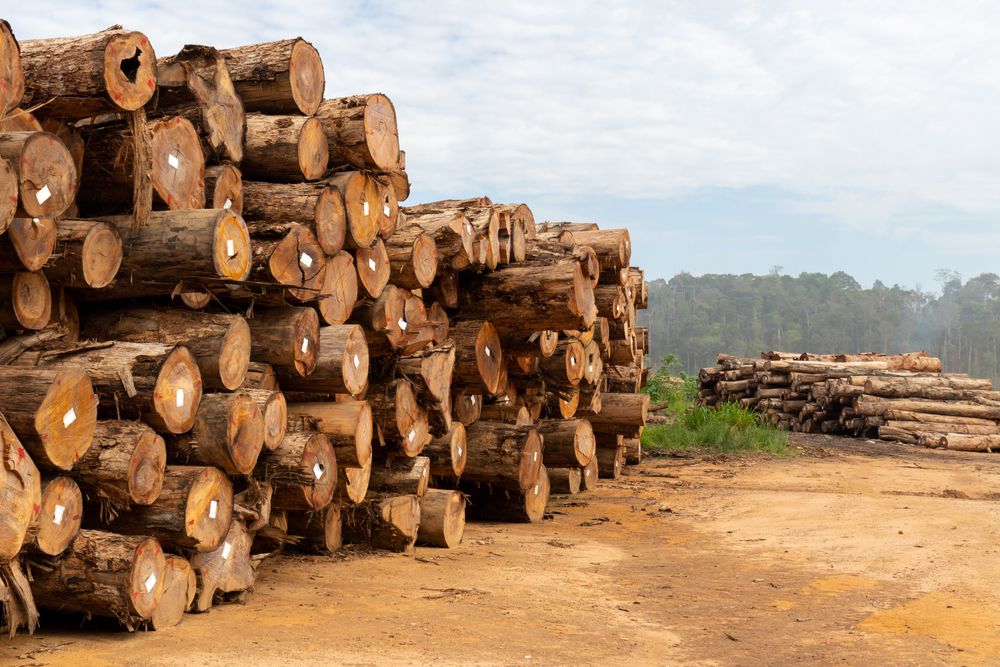
Log piles in the Brazilian Amazon. Source: Tarcisio Schnaider / Shutterstock
Log piles in the Brazilian Amazon. Source: Tarcisio Schnaider / Shutterstock
But logging and the timber industry in Brazil is even more important for the lessons it holds on how to tackle deforestation for other commodities. Efforts to address illegality in the timber sector in Brazil go much farther back in time, as do efforts to tackle the role of consuming countries in driving it. Those efforts have failed, and so will efforts on the other 'forest-risk commodities' if those lessons are not learned.
Such actions must start in Brazil itself. It has been demonstrated that a previous dramatic decline in deforestation in the country occurred in large part because of actions to improve governance. These actions must be redoubled. Ill-starred place-men in hock to industry must be removed from the positions of power into which they have been placed by the Bolsonaro administration. Other actions taken by that administration to gut relevant authorities, including the Brazilian environment agency Ibama, must be urgently reversed. But the problems documented in this report pre-date that administration, and additional action is also demanded.
Brazil's logging and timber trades hold important lessons on how to tackle deforestation for other commodities
One such urgent action is to address the fundamental flaws in Brazil's systems for licensing logging and tracing the goods produced to market. Those flaws have been amply demonstrated in previous reports by Brazilian environmental groups, and specific recommendations made by which they could be fixed. Those same groups have also called for action to address another long-standing forest governance weakness in the country, which is to ensure that companies convicted of illegal logging and illegal deforestation are actually punished. In the past, as little as one per cent of all such fines were ever actually paid. Under the Bolsonaro administration, the fashion has been not to fine them at all.134
Efforts are also needed to address the electoral influence of the agriculture and timber lobby in Brazil, and its impact on forest policy. Despite strict campaign finance laws, a connection between election cycles and deforestation persists. One recent study, for example, showed a "significant rise" in forest loss detected across 2,253 municipalities in Brazil's Atlantic Forest region during federal and state election years.135
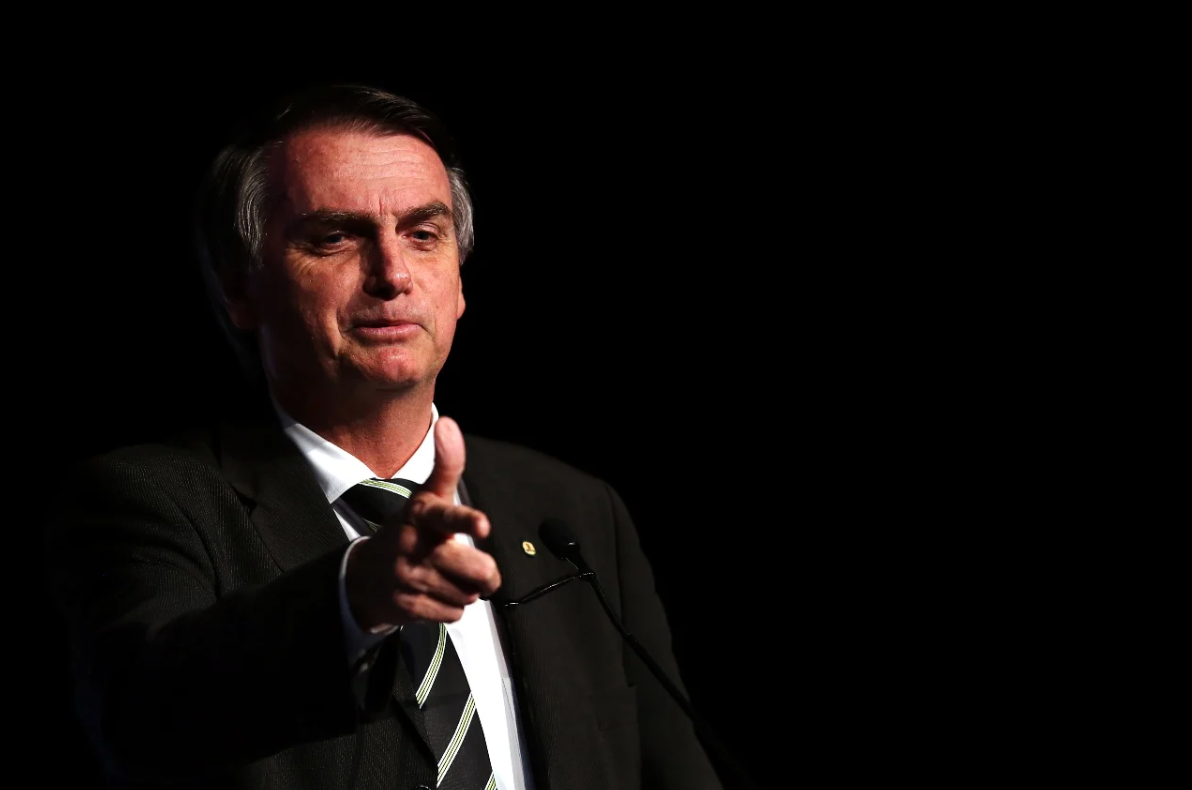
Brazilian President Jair Bolsonaro has scaled back efforts to fight illegal logging. Source: Marcelo Chello / Shutterstock
Brazilian President Jair Bolsonaro has scaled back efforts to fight illegal logging. Source: Marcelo Chello / Shutterstock
The burden of proof
The rich Western nations like the US must encourage and support these actions in Brazil. But they must also get their own house in order.
The volumes of wood imported from Indusparquet proves beyond any doubt that the US's pioneering illegal timber ban of 2008 is failing.
This was a case which should have been easy. These were obviously high-risk tropical wood species, coming from an obviously high-risk country. There were warning flags aplenty about the supplier for years. The seizure and fines against Indusparquet were well-publicised. One of the US importers buying the Brazilian firm's flooring was a known offender, the subject of the biggest Lacey fine in history. That firm's imports from Indusparquet occurred in spite of its probation placing its every purchase under an unprecedented level of monitoring by independent auditors and the Department of Justice, something which is not mandated by the law itself and not applicable to any other importer. It is reasonable to ask: if the US illegal timber law cannot be made to work in these circumstances, when will it work?
If the US illegal timber law cannot be made to work in these circumstances, when will it work?
There is a growing recognition that the US's feted illegal timber law isn't working. In April 2022, a group of American environmental NGOs and timber industry representatives published a joint letter calling for urgent action by the US government to fix it. The signatories recommended additional funding for enforcement, backed by a fresh political commitment from the White House to prioritising its improved implementation.
It is a welcome sign that the green groups in the US are aware of the need to improve the law. Their recommendations must be acted on urgently. But even if they are, this will have a limited effect unless a deeper problem is also recognised and addressed. This is that the Lacey Act as it stands is based on a fundamental misunderstanding of the nature of the problem it was meant to solve.
As it stands, US authorities will only act where it can be proven beyond reasonable doubt that laws were broken in the country of origin, and that those legal breaches applied to the specific products in a given shipment. Because of the nature of illegal logging and associated trade, this standard is almost impossible to meet.
Only a very small number of illegalities can be readily proven by US authorities
As explained above, almost all timber which is illegally harvested is laundered into legal supplies long before it is exported. Sometimes it is laundered before the tree even hits the ground. It is almost unheard of for a supplier country government to recognise wood for export as having been illegally procured, and in such instances authorities would normally swoop before it left, making action in the US unnecessary. Only a very small number of kinds of illegality can be readily proven by US authorities, such as the misdeclaration of species. But such misdeclarations do not occur in the vast majority of instances where illegally sourced wood enters the country. There is no evidence that Indusparquet mis-declared any of the wood it sells.
This problem has been recognised and addressed elsewhere. Illegal wood import bans in the EU and UK are coupled with a separate, parallel requirement for importers to practice 'due diligence', reducing the risk of obtaining illegally sourced wood to a negligible level. Breaches of this requirement are an order of magnitude easier for authorities to prove. Crucially, it reverses the burden of proof. For high-risk supplier countries and species, the onus is on the importer to demonstrate that the wood is legal. Though equivalent 'due care' is mentioned in the Lacey Act, it is only in relation to the level of penalties a company might expect, if – and only if – it is first proven to have imported illegal wood.
The same lesson also appears to have been learned by lawmakers behind the new FOREST Act currently before Congress. In seeking to halt the import of agricultural commodities like beef and soy linked to illegal deforestation, the law differs crucially from Lacey, by including a due care and traceability requirement which is separate from and in addition to the ban itself. This is vital to any such law's potential effectiveness and must be supported when it reaches a vote. But the law, if passed, will create a double standard. For agricultural commodities, for high-risk source countries the burden of proof will lie on the companies. For timber, it will remain on the US authorities. They will continue to have not one, but both hands tied behind their backs in their efforts to make the law effective.
The FOREST Act would reverse the burden of proof, placing it on companies instead
US lawmakers must act to address this inconsistency.
This isn't to say that action isn't also needed in other consuming markets. While the EU is better able to act because of the design of its own illegal timber law, it is failing to implement it, as its continued imports from Indusparquet demonstrate.
Companies involved in the relevant industries, meanwhile, including importers but also financiers, must in the meantime consider not only the legal implications of their activities, but also the moral ones. They must refuse to accept wood from Brazil unless independent evidence and their own field and supply chain audits can truly eliminate the risk associated with it. They cannot rely on Brazilian government documents to do this for them, less still the promises made by firms like Indusparquet. Anything less and they will be mere 'fixers' themselves, complicit like the other 'fixers' outlined in this report in the destruction of Brazil's forests and the horrifying global implications that brings.
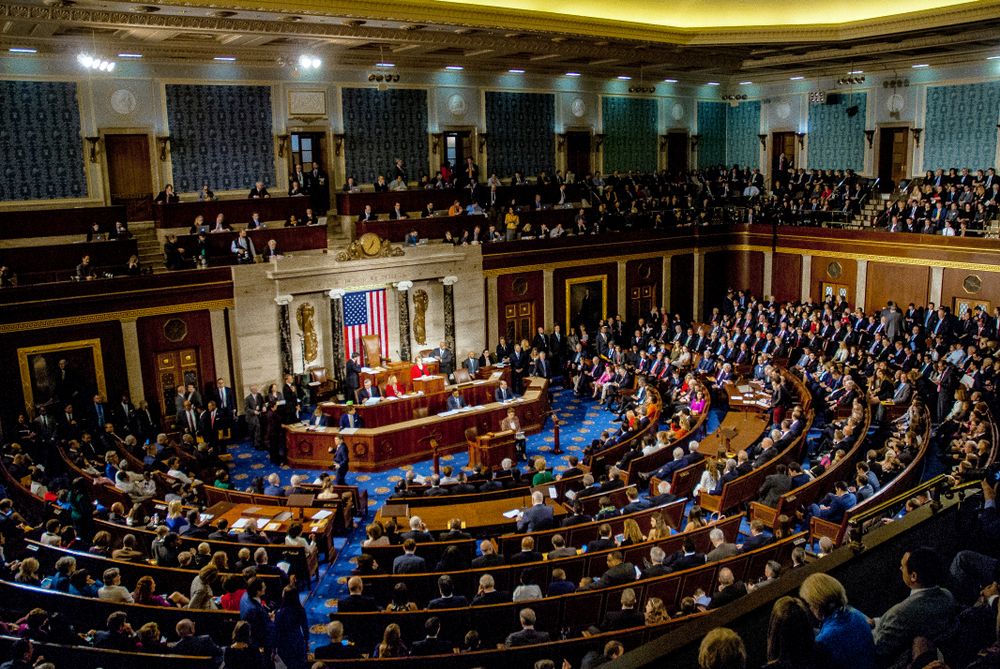

September 2022
Credits
Research: Earthsight / Mongabay
Cover art and chapter illustrations: Samuel Bono
Drone footage of Indusparquet's headquarters in Tietê, São Paulo: Earthsight
Maps: @FlavitoReis
Paraná court case testimonials montage. Pictured in descending order: Aleixo, Baggio, Puzyna, Granatyr, and Faria. Source: Paraná State Justice
Paraná court case video testimonials. Source: Paraná State Justice
Christ the Redeemer illustration: RVLT's Dirk Wright for Earthsight
Brazil's Supreme Court in session photo: Agência Brasil (licensed under CC BY 3.0 BR)
Satellite images: Landsat / Copernicus
United States Congress in session photo: Mark Reinstein / Shutterstock

